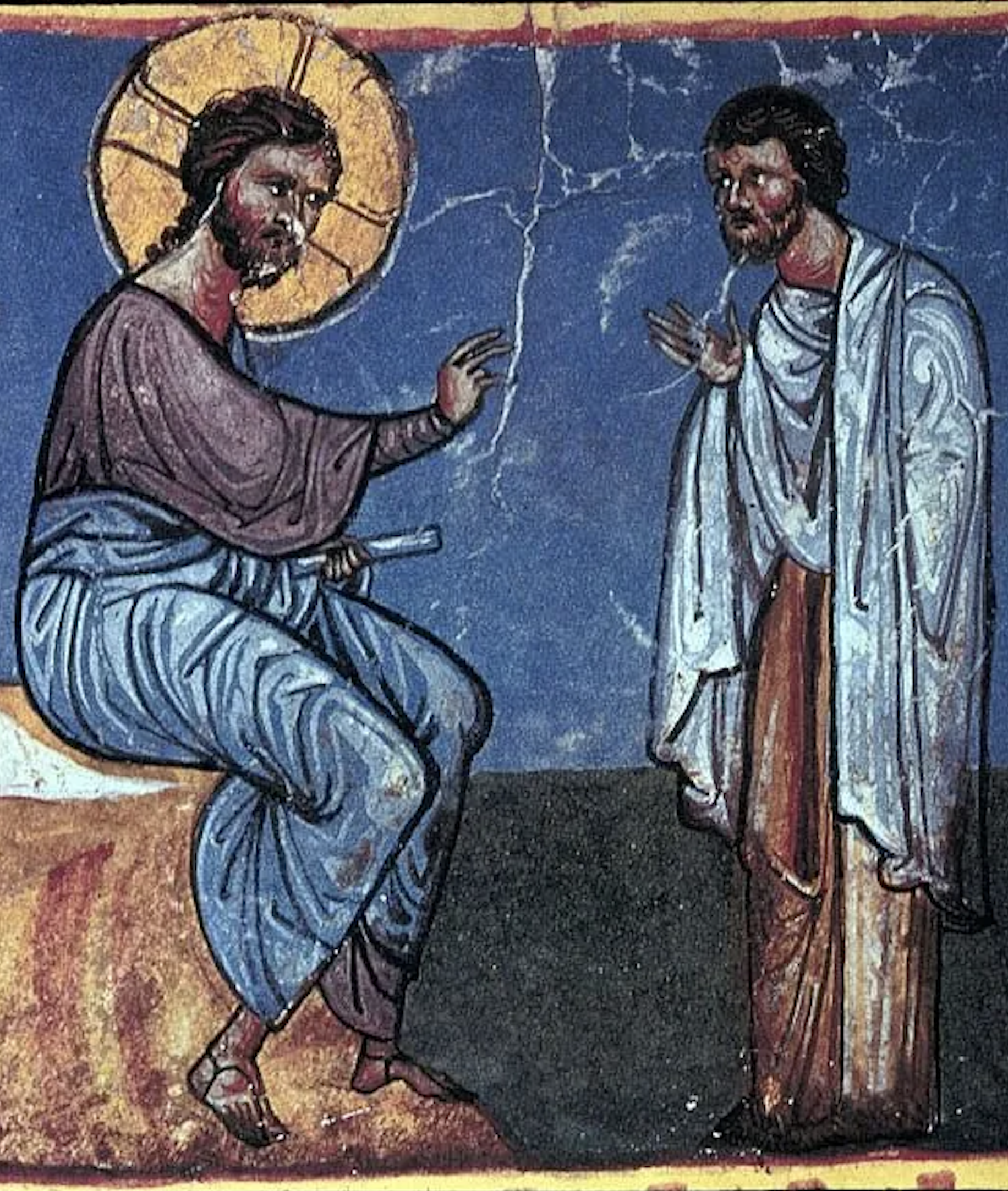

"Easier for a camel to the pass through the eye of a needle?!" the Disciples cry out in shock. "Then who can be saved?!" Jesus replies dryly. "But nothing shall be impossible with God." Imagine that this is your own preliminary assessment concerning salvation. Imagine Jesus telling you, "Well, with God we can't say that anything shall be impossible." Cold comfort, but for two thousand years — following Jesus' instructions to the young ruler to "sell what you have, give to the poor, and follow Me — wealthy Christians have lived in this anxious space.
What is intentional poverty about, anyway? What is its function in the economy of salvation? Why can't we sail into Heaven sitting on the deck of a rich man's yacht?
Please join the Hermitage as we continue to follow the Son of Man Who had nowhere to lay His head, puzzling over (along with the Twelve) His troubling words.
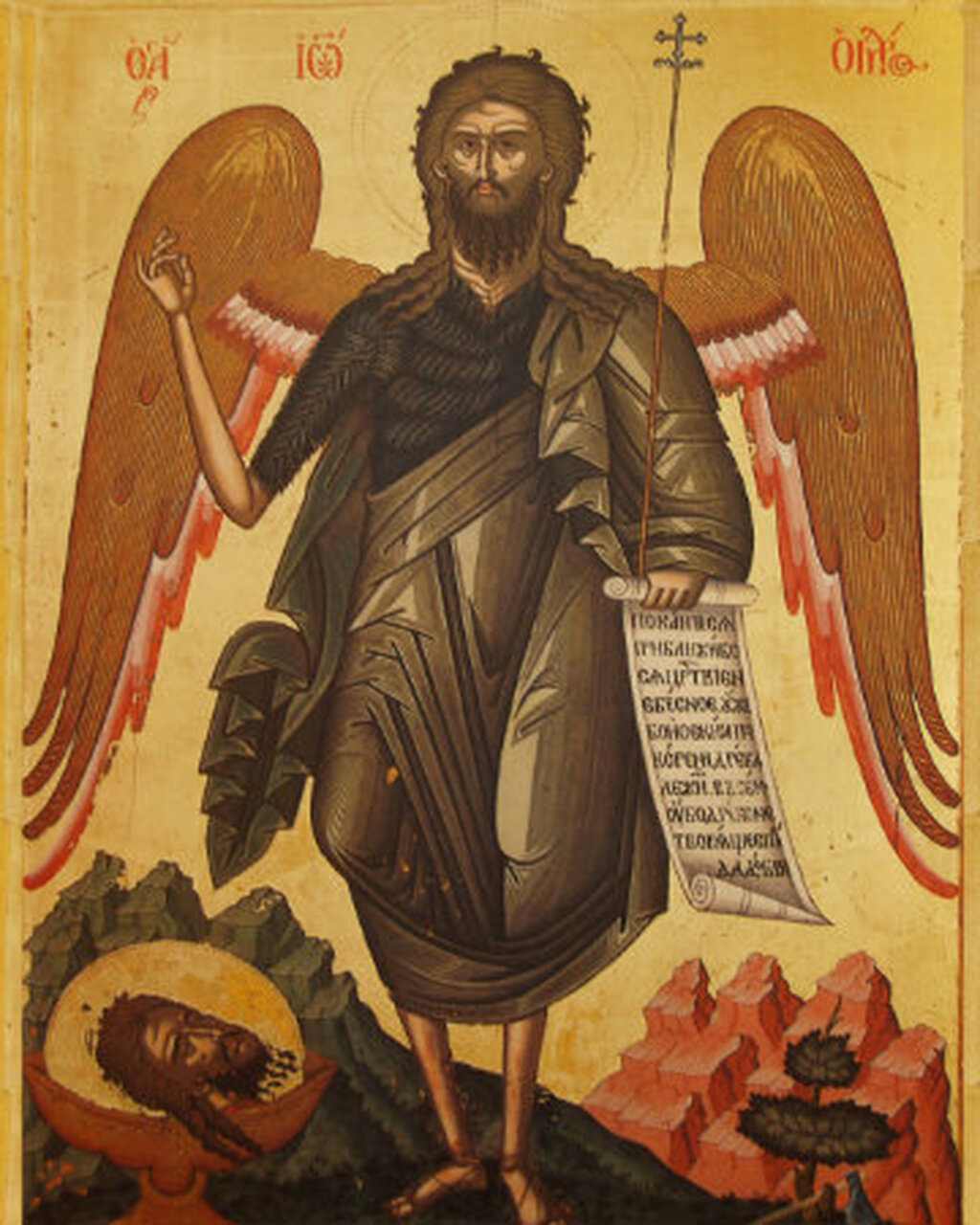
August 29, 2021 (Holy Calendar), The Beheading of St. John the Baptist
What is this rage and this urge to disfigure holiness? The setting of all purity, Eden, is disfigured by insolence and self-indulgence. The scene of All Holiness, Mt. Sinai, is disfigured by orgies and idolatry. God Himself is vilified, disfigured on a Cross, and murdered. And the Forerunner He sent, the Man of Eden, whose ministry was purity, is disfigured by a gyrating temptress, a worshipped "goddess" of the impure.
What is this echo of the War in Heaven, this rebellion that finds constant refuge in the human breast? Do we not see it everywhere in a general contempt for chastity and for the holiness of marriage? Do we not find it commonly practiced in the neglect of holy children? Is it not now the style to mock God and His holy things? What is this rage?
Remember that with every modest motion of your own chaste person, with every goodly restraint in a world of excess, with every act of reverence before purity, with every movement of your heart toward All-Pure God, and with every act of prayer and worship that you take your stand in a vast struggle against evil. Let us honor the marriage bed. Let us nurture our children in the Orthodox faith. Let us be true to our vows. And let the world see what the children of God look like. For we must never forget that we ourselves were lost as a race of men and women, but God sent His Son to renew us and to show us what we were created to be and how we are to live .... unto Eternal Life.
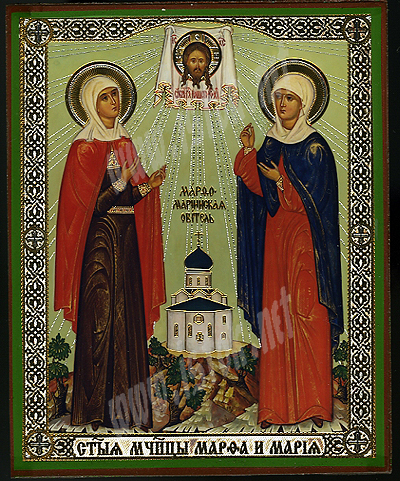
We read at Luke 10:42,
| "One thing is needed, and Mary has chosen that good part, ...." |
What is "the one thing that is needful"? What is "that good part, which cannot be take away"? It turns out that it is not simply a style of prayer life or of worship. It is not a trait of the personality or a turn of mind. After all, the Lord Jesus plainly says that it is the one thing that is needful. Just as plainly, we must countenance this passage from St. Luke's Gospel to be a crux — an all-important burst of light, which cannot be ignored. And we shall discover the world revolves around this revelation including the holiness, or unholiness, of the churches in our communities, the true character of priests and bishops, and the state of our own relationship with God. Indeed, the Church Father's teach that the renovation of the world set into motion at Jesus' Incarnation depends upon this one thing in order to be completed and fulfilled. What is this one needful thing? Please join the Hermitage as we together climb this holy mountain and find what its summit reveals.
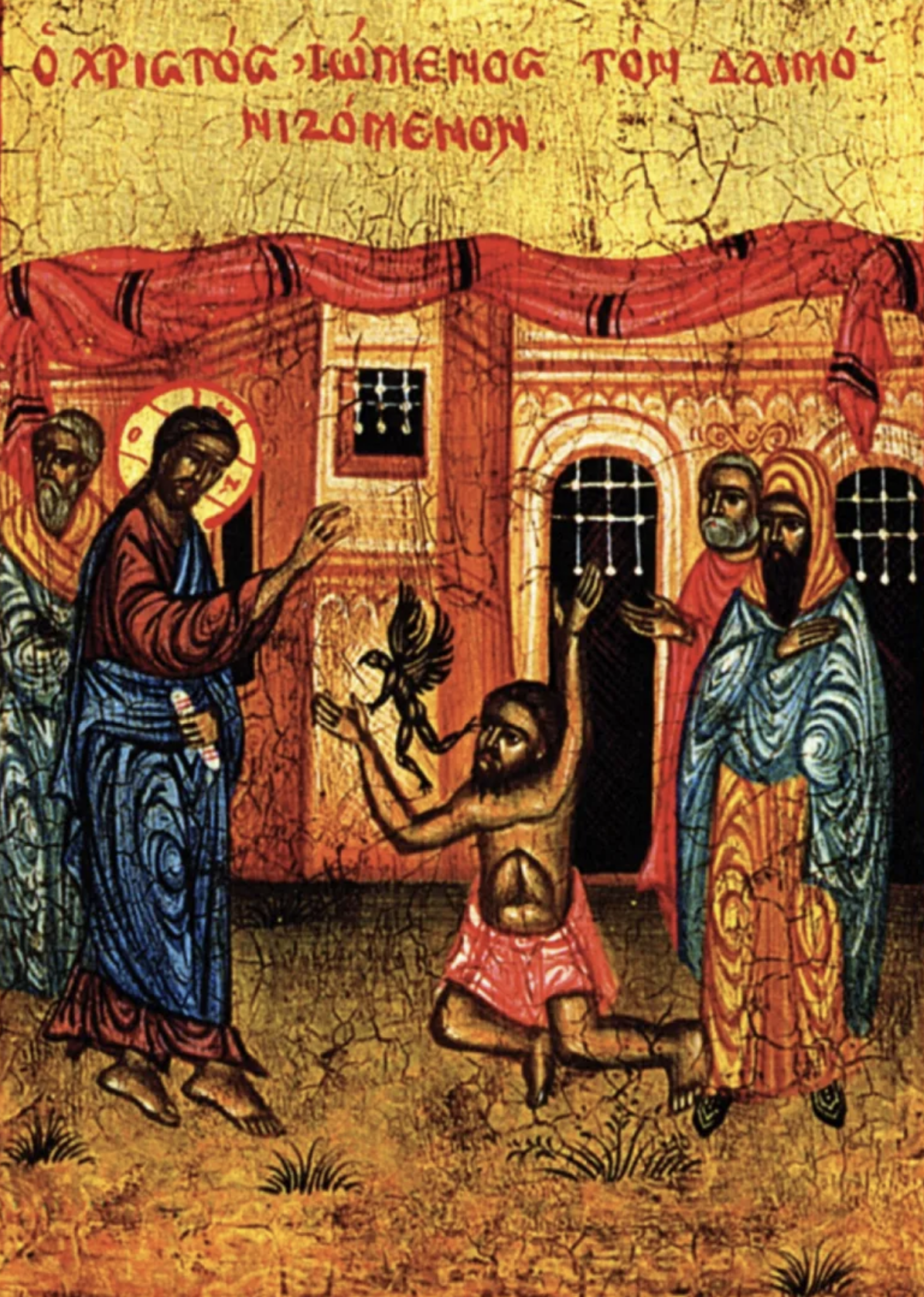
Did you know that the phrase Our Father does not appear in the Gospels at all, at least, not in the Greek original. Yet, our Father does appear in Jewish prayers of the first and previous centuries. What Jesus actually says is "your Father and My Father .... your God and My God." In fact, the phrase your Father, spoken by Jesus, occurs in the Gospels more than twenty times. In the same vein, Jesus implores us to avoid corporate prayer when opening our hearts to God. Indeed, the Orthodox Church teaches us not to pray such intimate prayers at church but to bring them to a "secret place where your Father hears them in secret."
Something very great happens in our prayer life as God enters history in the person of His Son, Jesus of Nazareth. He teaches us real and earnest spiritual life. He teaches us to knit our heart and soul with those of the Father. And He teaches us to acquire spiritual maturity and powers that will put to flight the evil around us. Until we begin here, understanding ourselves to be singular sons or daughters of God, then we have not begun at all.
Please join the Hermitage as each of us alone finds a most secret place, there to meet with "your Father," for He is waiting, and each of us has so many important things to say.
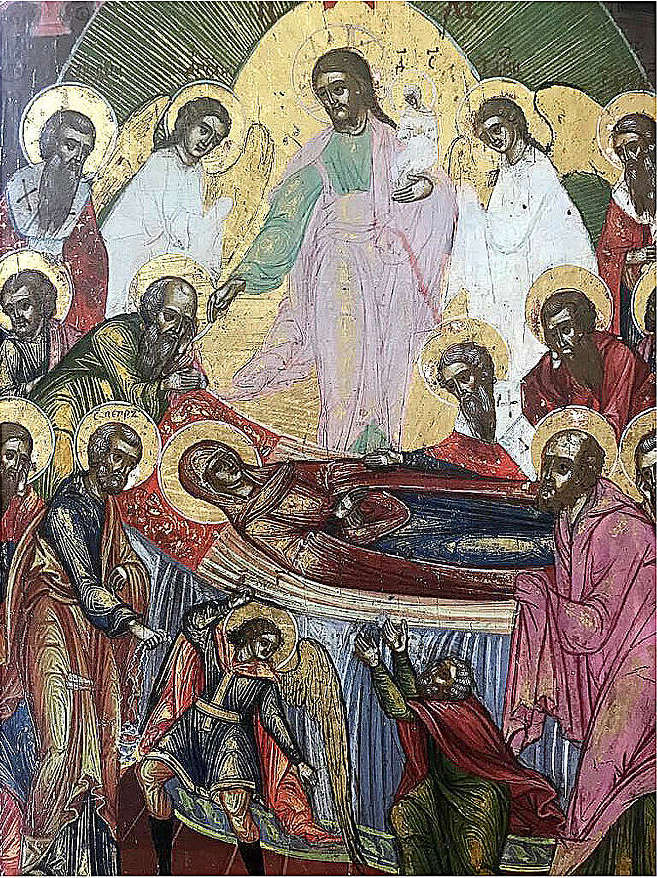
At no stage or moment of life can we say, "There! This is what I am about!" For the state of our soul is a mystery known only to God. It is at the end of life when the great revelation we have awaited is disclosed: "Who am I? What was my life really about?" Even with the Mother of God, whose faithfulness lay in her sinless life, a conclusion could not yet be drawn. Only at the end of life are we past every temptation and every occasion for sin. That she was faithful to the end is part of the bedrock of our Christian faith. What then do we call her end? For crossing that line is understood to be the outcome of sin, the disease which sin introduces into our soul. St. John of Damascus called it "the Deathless Death."
This reflection, offered at the Hermitage last year, was selected by Wonderworker magazine for publication. We follow suit by posting it again.
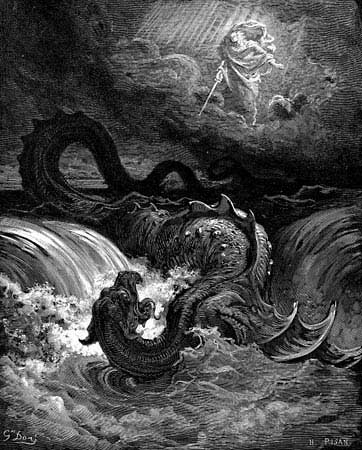
During the Sundays following Pentecost, we have followed the Lord throughout the Levant — silent onlookers within earshot of the Master, His Disciples, and the multitudes. We are with them in the vast spaces of the wilderness and we are unseen stow-aways on their small boat. We have watched the Lord Jesus reveal His powers, His authority, and His Divine Identity. Only this past Thursday, we heard that Empyreal Fiat of God the Father: "This is my Son. Hear Him!" What more is left? we might ask. What greater or higher or deeper revelation remains? What could be greater than to be God's Son? These are incommensurables. The words great and greater stumble and fail midst this subject matter. Yet a new and startling revelation remains: that the Lord Jesus is Master over the elements, which is to say, Ruler over the Creation itself. He alone might wrestle primordial chaos and bring out of it a world ordered to Heaven and subject to His Sovereignty. Across the centuries, and certainly during the Iron Age, Bronze Age, and Classical Antiquity, this is what distinguishes God from lesser idols or kings: mastery over the dark powers of chaos, whose primary manifestation in the ancient imagination was the unconquerable sea.
Please join the Hermitage as we plumb the restless and indomitable sea witnessing Jesus' dominion over it and pondering in our hearts what all these things might mean (Lu 2:19).
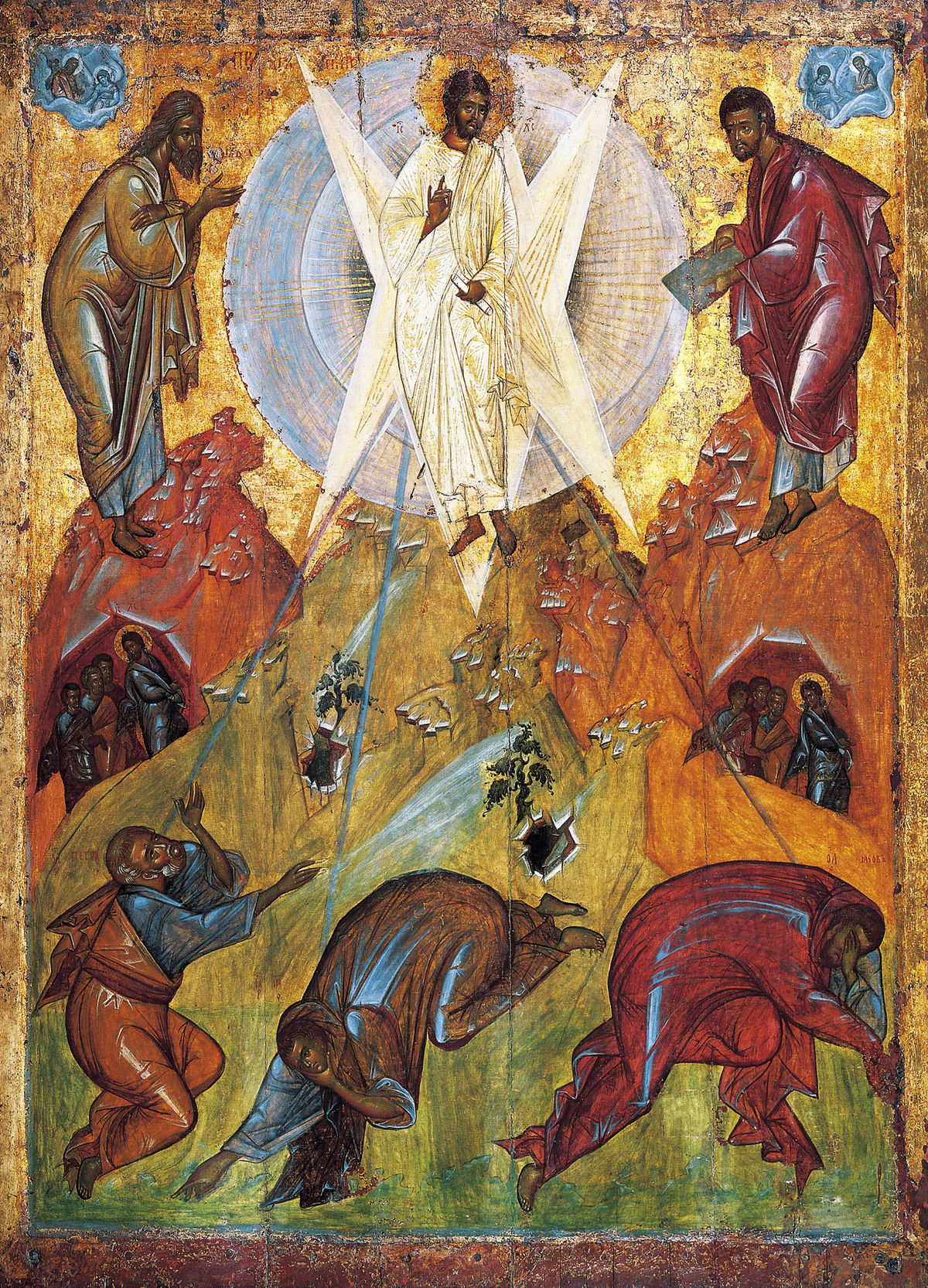
We understand what the word transfiguration means — that the Lord Jesus is utterly changed in appearance. But is it not curious that we could say with equal meaning that He is made manifest, that He is revealed, that a Theophany has occurred, and an Epiphany? In that sense, He is not changed. We cannot even say that His Identity has lain hidden. His true Nature and Essence have always been evident, shining like the sun .... to those who could see and also perceive. His nature and essence have not been hidden, nor does He hesitate to act and live in the fullness of His Authority and Power, raising the dead, healing the lame, mastering the primordial elements. In all of these things, is it not more correct to say that He is as He is and has been all along .... yesterday, today, and always? Is it not we who have changed as we near His Divine Identity? This is the nature of true identity even with us. It has been there all along. It has never been hid from us. But it is we who have failed to perceive it.
The Lord face is revealed, and with it our own. Finally, our restless seeking after identity — in surgeons' operating rooms, on psychiatrists' couches, laying claims to identity on Facebook and Instagram — our restless seeking comes to an end. And we are given peace, even unto our souls. For our identity, our destination, and the meaning of our lives have been restored .... if only we will receive this incommensurable gift.
Please join the Hermitage as behold His Identity and our own on this Holy Feast of the Transfiguration.
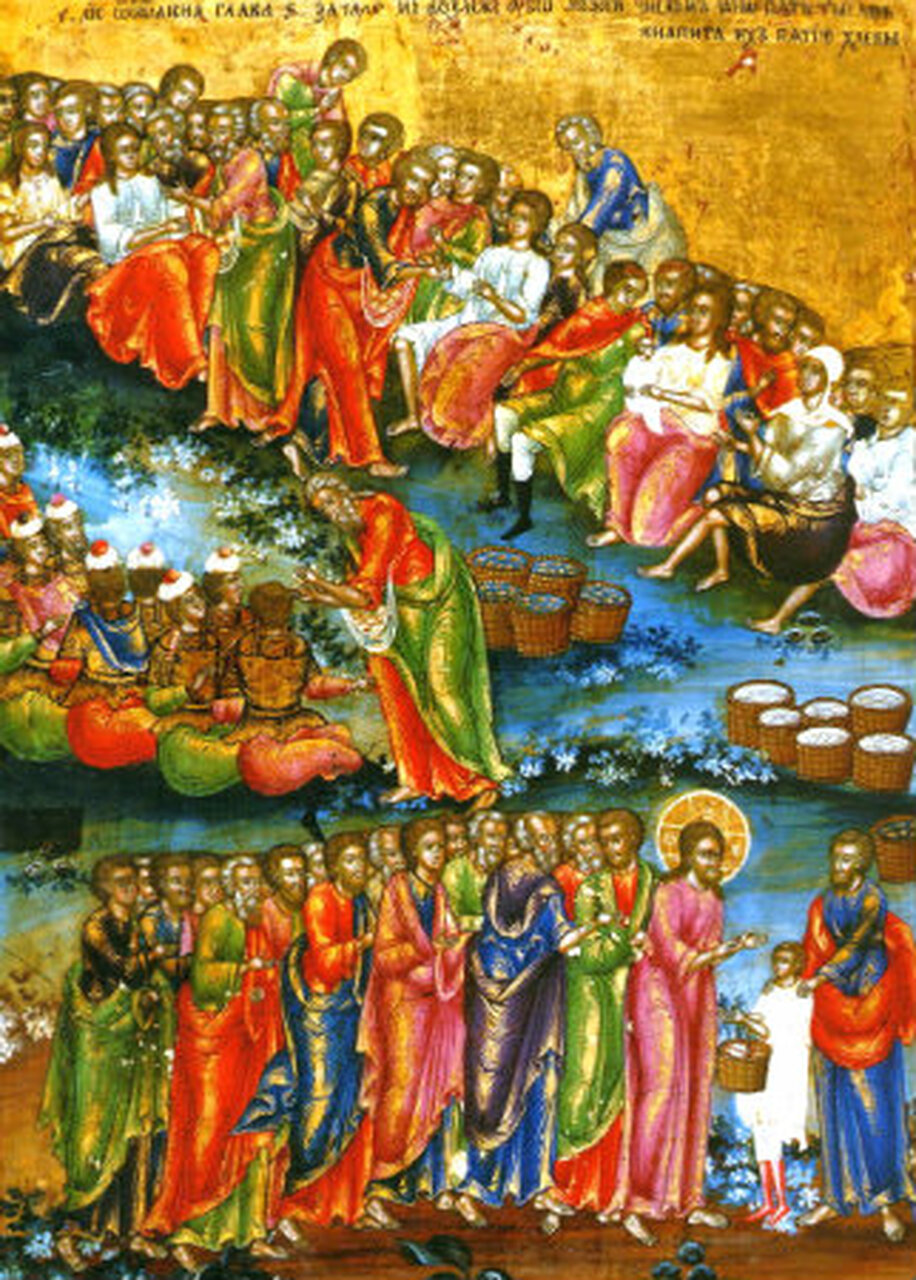
Growing to adulthood and leaving behind hero worship, we come to recognize the all-too-human features of the Disciples. We see their insolence to Jesus standing in a crowd: "You see the multitude thronging You, and You say, 'Who touched Me?'" (Mk 5:31) We see them engineering back-room deals in a bid for power (Mt 10:35ff). And today, we witness their arrogation to authority: "Send them away!" they command Jesus (using the imperative mood in Greek). And when the Lord performs a vast miracle — indeed, one of the hallmark miracles of Hebrew national history, the Descent of Manna in the Wilderness where multitudes are given all the bread they can eat virtually ex nihilo — the Disciples don't get it. And the people are indifferent. They do not marvel. They do not raise their hands toward Heaven glorifying God. They do .... nothing.
Seeing miracle after miracle proceed from the hand of God, perhaps they have become jaded. After all, the historical record is clear: they failed to see God Who stood right before them. Is this not the most human of responses toward God? And are we not also to be counted in their number? Manifestly, the human inclination is to take and to take and to take and rarely to give .... thanks or anything else, much less to give of ourselves or, like God, to suffer for the sake of others .... or for His sake. And is this not the sure and enduring trait of sons and daughters? We have been washed and fed and schooled and tears have rained down upon us in love and caring .... though we never paid them any mind.
Look around you now. What do you see? Are we not surrounded by miracles and on the only planet in the universe whose nature is life? And is this life not beautiful, even miraculous? Look in your heart and your soul. Do you not see God standing right before you?
He waits. He waits for our response: each of us and all of us. Please join the Hermitage as we ponder God and our debt of thanks which we shall have neither the capacity nor the time to repay.
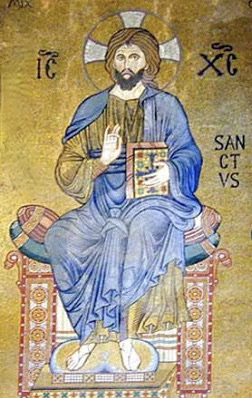
Let us tell our children their own and true story. It often is passed over as being too complicated and full of deep theology. But any child can understand it. Long ago, our ancestors lived in a wonderful Kingdom. They were not guests there, but rather it was their home. They ruled over it, for they had dominion over all things (Gen 1:26). So wonderful was this Kingdom that disease and suffering, and even death, were never to be seen within its walls. Our ancestors were given everything in the world — the only people ever to have literally everything in the world. But eventually they wanted more, more than everything. They became fixed on what lay beyond the Kingdom's walls. The High King over them, who had given them all that they had, said, "No. What is beyond those walls is not what you want. Put that domain out of your minds." In time, they rebelled against the High King, their kindly Father Who had given all these gifts. They might have looked around themselves to see that He alone could be trusted, but they chose not to trust Him. And they moved to overthrow His Authority.
For these crimes, they were banished from the Kingdom. They received precisely what they had demanded: the chaos which lay beyond the Kingdom's walls, which the High King had conquered from the dawn of their world and walled out for man's good and safety. Because our ancestors were not created to breathe the poisonous air of chaos, they became sick. And a whole new lifeworld descended upon them soaked through with its toxins. As humans had been given the vocation to name all things (Gen 2:20), they now had to devise words to describe these things they had never seen before. They called them, suffering, disease, and death.
Yet the King does not forget them. It is a long story but riveting and certainly not complex or difficult to grasp. Please join the Hermitage as we sit back and once more to hear the royal story of .... ourselves, our family, our ancestors, and the High King who started it all.
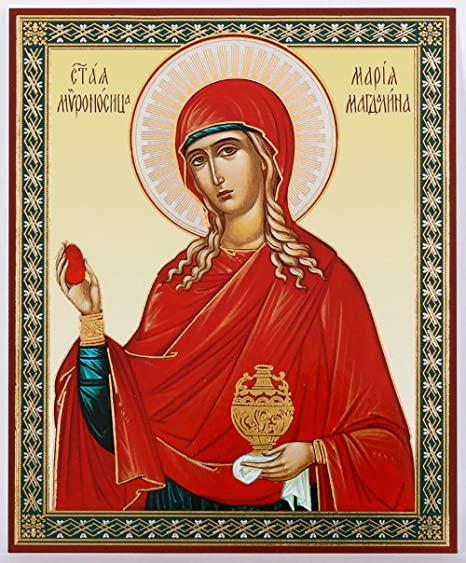
July 22, 2021 (Holy Calendar), Holy Myrrh-bearer and Equal-to-the-Apostles Mary Magdalene (1st c.)
The West has so enthusiastically embraced the cannard that Mary Magdalene was "a woman of the streets," we must say immediately that this is based on an outlandish etymology of "Magdalene." In the Babylonian Talmud, central to Judaism following the Captivity, Magdalene is related to the Aramaic word megadlella or "hairdresser," slang for "prostitute." As the Talmud was an "open document" until the fifth century A.D., it included commentary on Mary Magdalene, who was depicted there as a whore. Pope St. Gregory I advanced this thesis in a series of Easter sermons (591) conflating Mary Magdalene, Mary of Bethany, and the woman who washed Jesus' feet with her hair. It was Pope Gregory who interpreted the seven demons associated with Mary Magdalene (Mk 16:9) as being specifically sexual sins (Homily 33) though there is no evidence for this.
The Orthodox Church rejects all of these associations with Mary Magdalene. The term Magdalene simply means that Mary is from Magdala, a village on the western shore of the Sea of Galilee, just as Nazarene means that Jesus is from Nazareth. The Orthodox Church traces Mary Magalene's steps as a companion to the Most Holy Theotokos in the Community of St. John the Theologian. She is venerated as a Μυροφορος (Murophoros), or Myrrh-bearer. That is, like the Mother of God, she was a most faithful disciple of the Lord never counting the cost for her public devotion. She is Equal-to-the-Apostles as she used her position of wealth and influence to advance the Kingdom of God. According to one tradition, she was invited to a banquet in the imperial household of Tiberius Caesar that happened to coincide with Paschaltide. Holding an egg in her hand, signifying new life, she offered Tiberius the traditional Paschal greeting: Christos anesti! The Emperor laughed and said, "A man has no more chance of rising from the dead than the egg in your hand has of turning red." At that moment, the egg turned from white to bright red. To the present time (of course) eggs dyed bright red are a fixture of Paschaltide.
Pray for us, O mighty Myrrh-bearer, that we may boldly proclaim Christ not counting the cost.
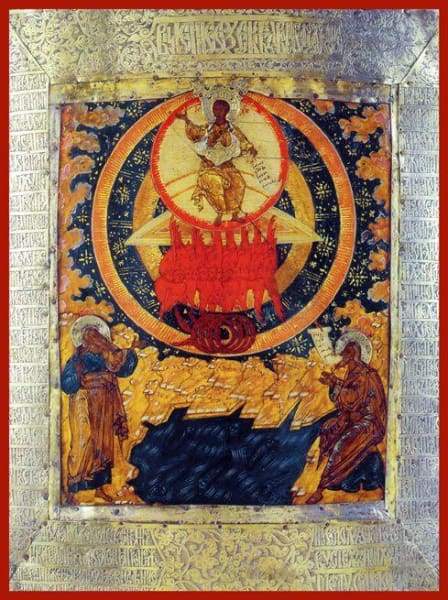
July 21, 2021 (Holy Calendar), Holy Glorious Prophet Ezekiel (6th c. B.C.)
The Holy Glorious Prophet Ezekiel stands upon a great boundary: between Hebrew religion and Solomon's Temple, on one side, and Jewish religion with its Temple designed and built under Babylonian governance, on the other. When the Hebrew people returned from Babylon to Jerusalem, they were much changed: speaking not Hebrew but the Babylonian language (Aramaic), governed not by the Kings of Judah but as a satrapy (a semi-autonomous province of Babylon), and answerable to a priestly elite in Babylon, whose "blueprints" decided ideals for religion and worship. In effect, the returning "Israelites" had become something of a "little Babylon." It should not be overlooked that a primary feature of Babylonian religion was animal sacrifice. In particular, the Babylonian King Nebuchadnezzar II, who had subjugated the Hebrew people, distinguished himself as a great "defender of the faith," devoted to the god Marduk and overseeing the restoration of Marduk's temple. He would boast that under his reign, "Marduk has never eaten so well!" As Israel-Judah had suffered through seventeen generations of kings and queens worshiping both YHWH and Ba'al among other deities, so the role of animal sacrifice in the Temple was controverted as the Psalter attests. We recall that Jesus' fury displayed in the Second Temple, beating men with a whip and overturning animal cages, was tied to animal sacrifice. This is of particular importance to the Holy Orthodox Catholic Church, whose patterns of worship echo the spirituality and ritual of Solomon's Temple, whose destruction Ezekiel had prophesied and lived to witness.
Truly, we are a wilderness people, seeking intimacy with God and ridding ourselves of any unworthiness within that might muddy those most-pure waters. Our religion, centered on theosis, is our sure and right way. The Holy of Holies, where men rise to the dignity of the Divine, remains our goal. And what could be more clear or manifest? We are made in God's Image. He calls us His children. We cherish the Family resemblance, for He has sent His Son to remind us, as the Early Fathers attest, of what we were created to look like and what we are intended to be. Pray for us, O Holy Father Ezekiel, for we long to return to the Temple restored according to God's own blueprints.
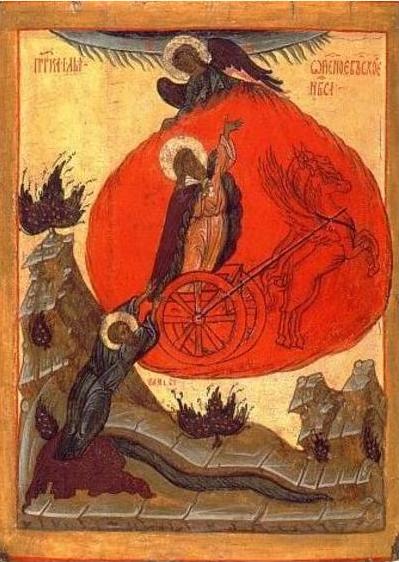
July 20, 2021 (Holy Calendar), Holy Glorious Prophet Elias (Elijah) (9th c. B.C.)
Devout Jews set an extra place at the table expecting always a most beloved figure: Elijah. For Elijah was never seen to taste death ascending into the sky astride a flaming chariot. This is a basis for Herod Antipas wondering whether John the Baptist were Elijah ..... or whether Jesus was. Few have been accorded this most high honor granted to the sons of men: assumption. We think of Enoch who walked with God, and he was not, for God took him (Gen 5:24) and of Moses, who left no grave (though graves of the other Patriarchs and Matriarchs are conspicuously venerated). Both Elijah and Moses, the deathless ones, greet Jesus on the Mount of Transfiguration foreshadowing His own triumph over death.
Let us ask, exactly what was the vocation of most-esteemed and glorious Elijah? His name indicates that he placed no other gods before YHWH. In particular, he pursued a most unpopular path during his time on Earth, which was to oppose the great idol of his age: Baal. Like social idols hateful to God in our own age, Baal enjoyed nearly universal, and we might say legal, sanction and support. The king and queen of Israel were devoted to Baal. Speaking out in opposition was not for the faint-hearted. But it turns out that our faith is not for the faint-hearted, either. God singles us out for trial. He tries us .... sometimes in fire. And keeping our heads down, attempting to elude His notice, before too long becomes and offense against Heaven. Lukewarm will not do (Rev 3:16).
Pray for us, O bold Father Elijah, for we seek God as you did, and we do not fear your mantle, which you throw upon .... we know not whom next.
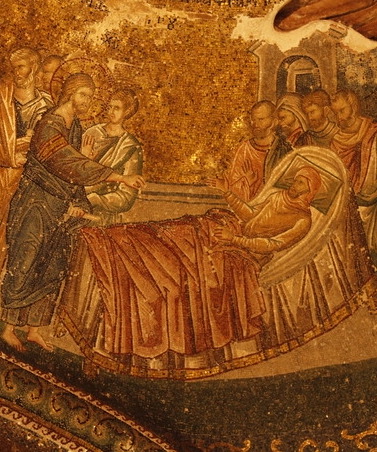
A recent report coming out of Fordham University and the University of Exeter describes the advance of "sexual diversity" within Holy Orthodoxy with 62% of all Orthodox Christians in the U.S. advocating for the acceptance of homosexuality as a norm of life and 50% in Greece. Central to related debates is the premise that the Greek and Latin Fathers are not relevant. On this day when we honor the Fathers who have vouchsafed godly life for us, we reply, "Jesus Christ the same yesterday, and today, and forever" (Heb 13:8). And God's ways and holy commandments were not given as a gift to merely a few, thousands of years ago, but as a light to enlighten the nations now and forever. The Fathers of the first Six Ecumenical Councils also heard lies and addressed them head on. Let us follow their bold example and not shrink from our responsibilities.
Our children are being raised in a culture that pressures them to seek out their sexual identities even from early grade school. What is never said is that identity is the one thing of which we shall never be certain as billions of dollars in counseling and psychotherapy bills pile up the world over. What we experience over our lifetimes is a succession of feelings and searching thoughts: "Who am I?" "What is my purpose in life?" Shall we now tear the fabric of our society to shreds in search of these unknowable answers? .... at least unknowable in earthly terms.
The Cappadocian Father Gregory of Nyssa wrote that God, in Whose Image we are made, is inscrutable and unknowable. It follows that we also are inscrutable and unknowable. The only peace we shall ever know is loving Him and embracing His Book of Life. Here is our only stable identity. We at the Hermitage counsel every child in every school on Earth to look inside and discover this truth. This identity will never hurt them. It will never tear their world apart. And it will open to them an inner garden surrounded by God's protecting arms and His holy angels.
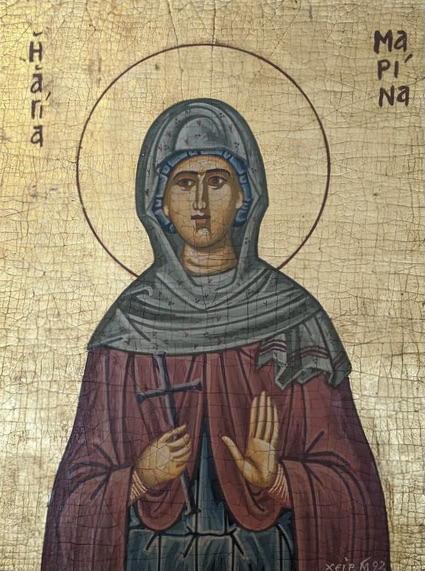
July 17, 2021 (Holy Calendar), St. Marina of Antioch, the Great Martyr (d. c. 304 )
The Hermitage, of course, is named for the Chaste One. As the Community of St. John the Theologian had done, we look to the Most Holy Theotokos to inspire us, to guide us, and to intercede for us. Among our cherished icons is another guardian of our all-important chastity: St. Marina of Antioch the Great Martyr. (The icon we post today is our own.) Embracing the Christianity of her nurse (her mother died soon after giving birth), Marina was disowned by her father. She consecrated her virginity to God and lived as a shepherdess among Christian friends in what is today Turkey. Her radiant purity mesmerized the Roman Governor of the Diocese of the East, Olybrius, who proposed marriage demanding that she renounce Christianity. Refusing him, Marina was ordered tortured. The Golden Legend records that she was swallowed by Satan in the form of a dragon, but he could not hold her on account of the cross she carried. The legend intrigues, for it presents an interesting variation on unchastity. People obsessed with sex invite an indwelling demon, who comes to possess them. As their ultimate destination is demonic, we may view all possessed people, certainly all lost people, as swallowed by Satan.
The seventh-century Father, St. Isaac of Syria, comes to mind, who wrote that the two fiercest struggles of Christian life are protecting one's chastity and resisting the feeling of abandonment and its follow-on of cynicism and depression. We see the connection: casual sex always means abandonment (which the soul unfailingly feels), and cynicism sets the stage for more casual sex as the heart seeks meaning where there is no meaning. We at the Hermitage ask, "Which do you want? Sex without love or love without sex?" Protect us, Holy Marina, for your pure love points us to the only meaning we shall ever know. Pray for us, O guardian of chastity, and guide us!
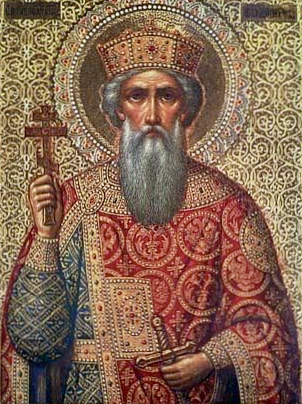
July 15, 2021 (Holy Calendar), Holy Equal-to-the-Apostles Great Prince Vladimir
Grandson of Holy Princess Olga, Equal-to-the-Apostles (feast day on July 11), Great Prince Vladimir was a child of six when his storied grandmother fell asleep in the Lord. He was the youngest son of Prince Svyatoslav of Kiev, born (958) into Christian surroundings in Rus' (Kiev) but surrounded by pagan war lords. Ruling Novgorod as prince, he was forced to flee at age eighteen to ancestral Scandinavia when his brother Yaropolk murdered his older brother Oleg taking control of Rus'. With the aid of his relative Ladejarl Hakon Sigurdsson (Hakon the Powerful), ruler of Norway, Vladimir amassed a Viking invasion force re-conquering Novgorod and, at age twenty-two, consolidating Rus' into a united realm — from modern-day Belarus, Russia, and the Ukraine to the Baltic Sea. Up until this time these peoples had followed various Slavic pagan beliefs. Under Great Prince Vladimir they would be united in one religion. Following extensive consultation with the boyars (decentralized local aristocracies), the Orthodox Catholic faith was settled upon as being the true worship of God. As Vladimir's grandmother had done, his envoys visited Constantinople relating their experiences of the Divine Liturgy at Hagia Sophia by courier: "We no longer knew whether we were in heaven or on earth, nor such beauty, and we know not how to tell of it." Convicted by the Holy Spirit upon receiving these words, Vladimir would set down a sure foundation for Holy Orthodoxy in Russia that in future centuries would stretch from the Baltic Sea to the Pacific Ocean: Holy Rus'. We pray, Great Prince Vladimir, Equal-to-the-Apostles, that your holy labors have not ceased, for the shining ideal of Holy Rus' may well become the sure defense and redoubt where humanity will make its last stand against the enemies of God.
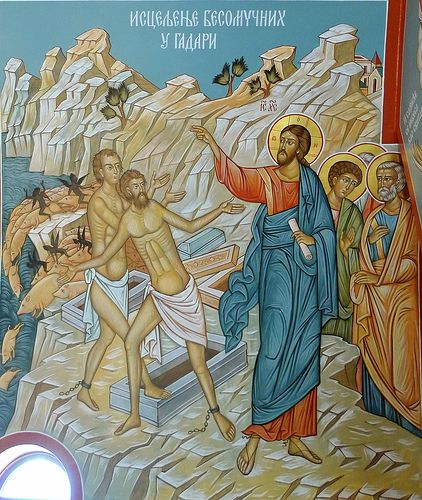
A tempest arose at sea so great that the Disciples plead with Jesus:
| "Lord, save us! We are perishing!" (Mt 8:25) |
From here they sail as if through a "worm hole" into a lost land, an impossible geography. The third-century philosopher Porphyry of Tyre commented (Against the Christians) that there are no cemeteries on the shores of Lake Gennesaret; there are no tombs you could live in along the shore; there are no cliffs from which swine could leap into the sea. This controversy has continued down to our own time.
The world they have arrived to in its moral essentials is one that resembles our own. Is our world not separated from God? Do people not commonly shoo God away even at the mention of His Name? And do we not suffer from demon possession? Like theirs, our land, is a "culture of death," camped out, so to speak, around tombs. This is the crux of our Gospel lesson this morning: Jesus lands on a distant planet, as it were. It is the "Lost Planet," a world without God. And it holds a mirror up to our own world in a haunting, even menacing, image.
Please join the Hermitage as we explore a lost world .... perhaps to discover that it is our own.
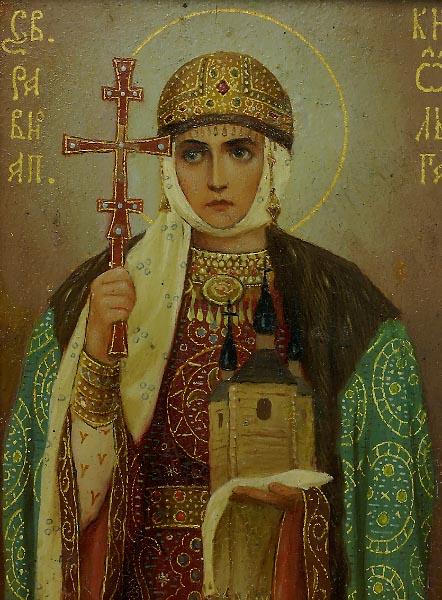
July 11, 2021 (Holy Calendar), St. Olga of Kiev, Equal-to-the-Apostles (d. 969)
Probably a Viking at birth, Olga was a valiant warrior-ruler of her age and a Regent of Kievan Rus' — widow of Prince Igor I of Kiev. She wreaked a vengeance upon the Drevalians who assassinated her husband on a scale and quality rivaling Greek tragedy, marching even into the Drevalian kingdom and slaughtering its prince and his court in the hundreds. But then something happened. Nine years later (954), she visited Constantinople, the heart of Christianity in the East. She was dazzled by "golden Byzantium." She had never seen the like of its glistening palaces and soaring churches. Nor had she ever beheld the Heaven-on-Earth which is the Divine Liturgy. She was overwhelmed as the Holy Spirit flooded into her heart and mind, and she sought Holy Baptism, taking for her saint-name "Elena," mother of the fourth-century Emperor Constantine. She returned to Kievan Rus' with priests and deacons, icons and chapel furnishings, books and liturgies, committed to bringing the light of Christ into Viking and pagan darkness. But the Kievan nobles laughed at the prospect of worshiping a King who did not resist his own arrest, much less His execution. Yet did Olga-Elena win the pledge that no Christian would be persecuted in her kingdom. And she would spend the remainder of her life building churches, laying the sure foundation that would become the bedrock beneath Holy Rus'. Pray for us, O St. Olga-Elena, Equal-to-the Apostles, for in you we see our own vocation of being despised yet undaunted.
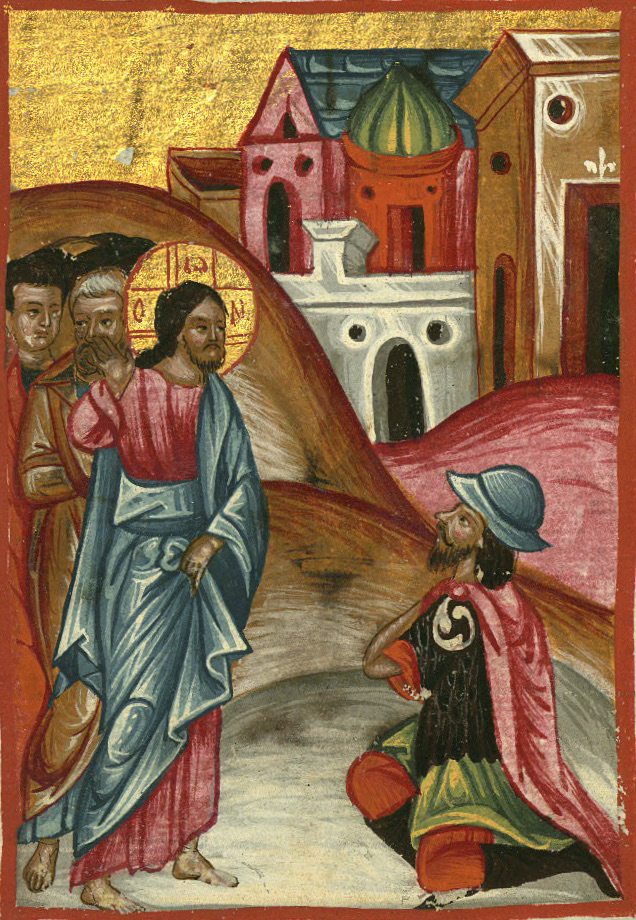
A great King roams His domains disguised as an itinerant teacher living in poverty. He observes His people — their ways, their thoughts, their conduct of life. Finally, He encounters one man whose pattern of life and personal qualities evince what He has long hoped for in His people. This man is an exemplar, a paragon, a role model. And He praises him:
|
He marveled, and said to those who followed, "Assuredly, I say to you,
I have not found such great faith, not even in Israel!" (Mt 8:10) |
We must pause here and take stock. For here is the example we must emulate. We are in awe of this singularity and clarity. "Who is this?" we ask in all earnestness. "Which man has attained this perfection? And what is he like?"
The answer will take us into the Courts of Heaven amongst the Heavenly Host and back to the Bronze Age on Earth and prehistory. Most important, it will reveal our proper relationship to God and what He expects in us.
Please join the Hermitage as we ponder these basics of Christian life.
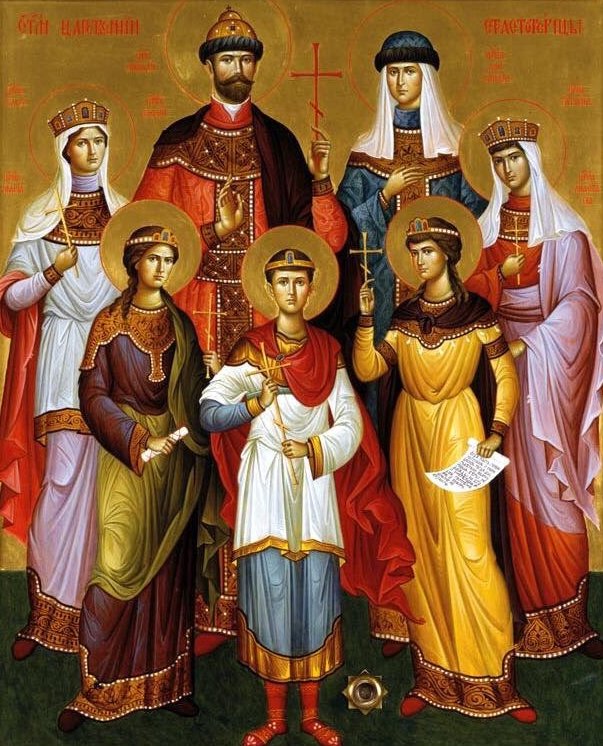
July 4, 2021 (Holy Calendar), Holy Royal Martyrs of Russian (d. 1918)
We observe the solemn feast today of the Holy Royal Martyrs Tsar Nicholas II, Tsarit-sa Alexandra, Crown Prince Alexis, and Grand-duchesses Olga, Tatiana, Maria, and Anastasia, and those martyred with them. At the highest levels of Russian civic life, they were guardians of Holy Rus' — "the Kingdom of Heaven, the eternal Tsardom of God in the Heaven and on the Earth." Begun in Russia's ancient principality, Kievan Rus (modern-day Ukraine), this great seed of Christian faith would bloom into a brilliant lifeworld transforming billions of lives over a period of more than a thousand years. In the words of our own Primate and First Hierarch, Metropolitan Hilarion (Kapral),
| As sons and daughters of the Russian Orthodox Church, we are all citizens of Holy Russia. When we speak of Holy Russia, we are not talking about the Russian Federation or any civil society on earth; rather, it is a way of life that has been passed down to us through the centuries by such great saints of the Russian Land as the Holy Great Prince Vladimir and Great Princess Olga, Venerable Sergius of Radonezh, Job of Pochaev, Seraphim of Sarov, and more recently, the countless New Martyrs and Confessors of the twentieth century. These saints are our ancestors, and we must look to them for instruction on how to bravely confess the Faith, even when facing persecution. There is no achievement in simply calling oneself "Russian": in order to be a genuine Russian, one must first become Orthodox and live a life in the Church, as did our forebears, the founders of Holy Russia!" |
We at the Hermitage are humbled to be received into the Russian Orthodox Church standing, therefore, among these holy saints especially now as U.S. culture begins to manifest signs of Bolshevism: atheism (about one-fourth of all Americans), secular humanism, statism, communism, police-state manipulation of media, censure of public discourse, and a hatred of Christianity (<50% in the U.S. are Christian).
Pray for us, O Holy Royal Martyrs, that we too may stand fast in godly dignity and immovable faithfulness as you did in the face of reckless and merciless killers.
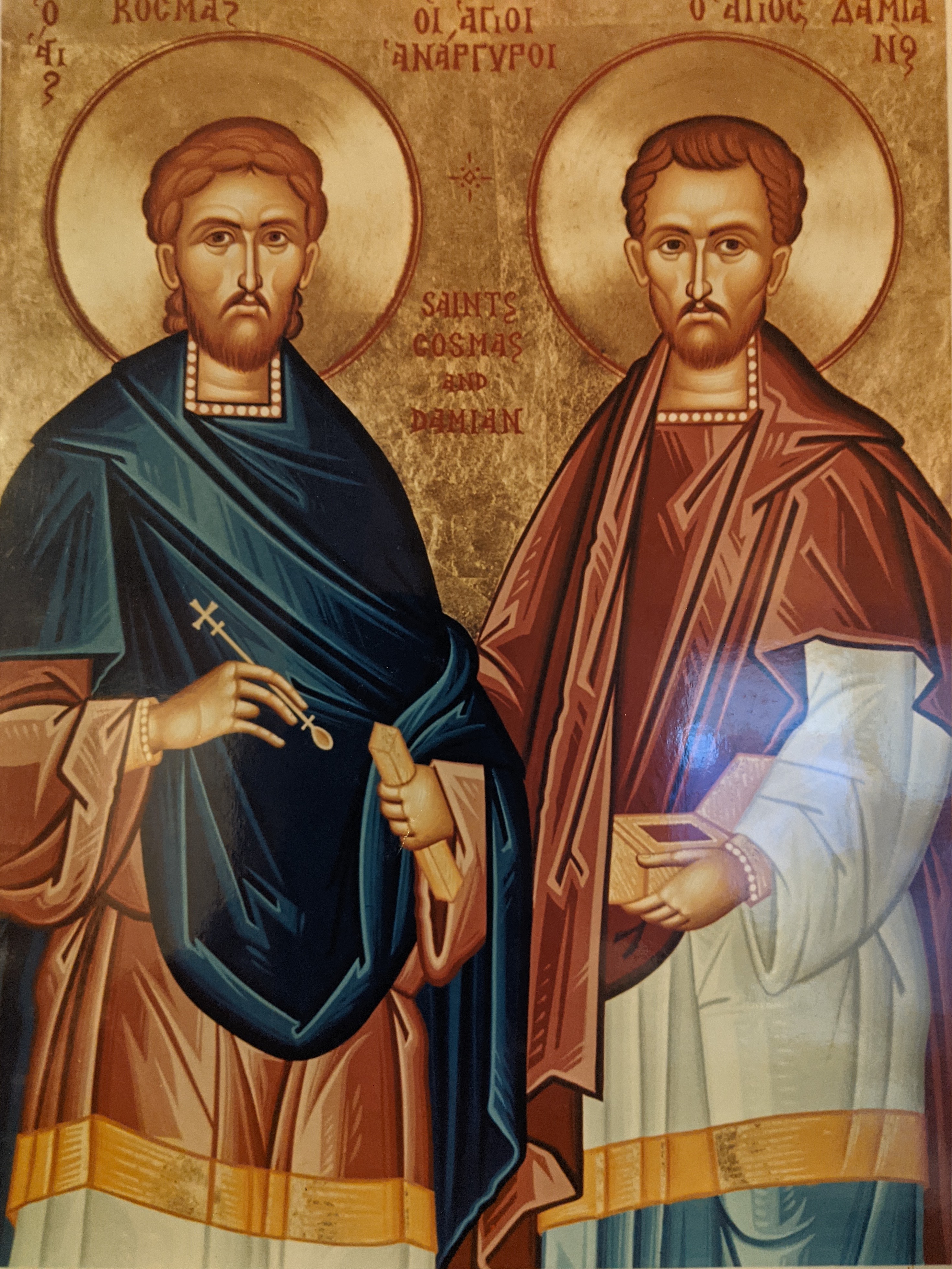
July 1, 2021 (Holy Calendar), Holy and Wonderworking Unmercenaries Cosmos and Damian (d. 287)
Born in Arabia, the twin brothers Qozma wa Demyaan practiced the medical arts of the East. They became renown in the northern reaches of the Levant (modern-day Yumurtalik, Turkey) and then in Rome itself. Many praised them for their mastery of medicine but even more so for their intentional poverty. For they laid their services at the feet of humanity accepting no fee. They were known as the Αναργυροι, (Anarguroi) "the silverless."
When the Hermitage was received into the Russian Orthodox Church Abroad, one of the Western Rite parishes (St. Cuthbert's in Pawtucket, Rhode Island) presented a beautiful gift to the Sisters: an icon of Ss. Cosmos and Damian. Fr. David Kinghorn had done his homework. As former Franciscans, the Sisters, both Registered Nurses, had offered their medical arts to the people of Haiti for decades, Sr. Mary Ann for twenty-five years, receiving no compensation of any kind, save a cell in the dormitory and a seat in the refectory. Offering herself at age eighteen in religious vows as a servant — serving the poor of Taiwan, lepers in India, and the poorest of the poor in Fourth World of Haiti — she continues those same vows today, always cheerful and always faithful. Yes, the Sisters are silverless, but I can say as their humbled chaplain-witness that they are golden. Who can receive greater blessing on Earth than to work and pray among the saints?
We ask the prayers of the Holy Unmercenaries Ss. Cosmos and Damian, martyrs of Christ, to intercede for us in thanksgivings to have followed the Master and to follow Him still.
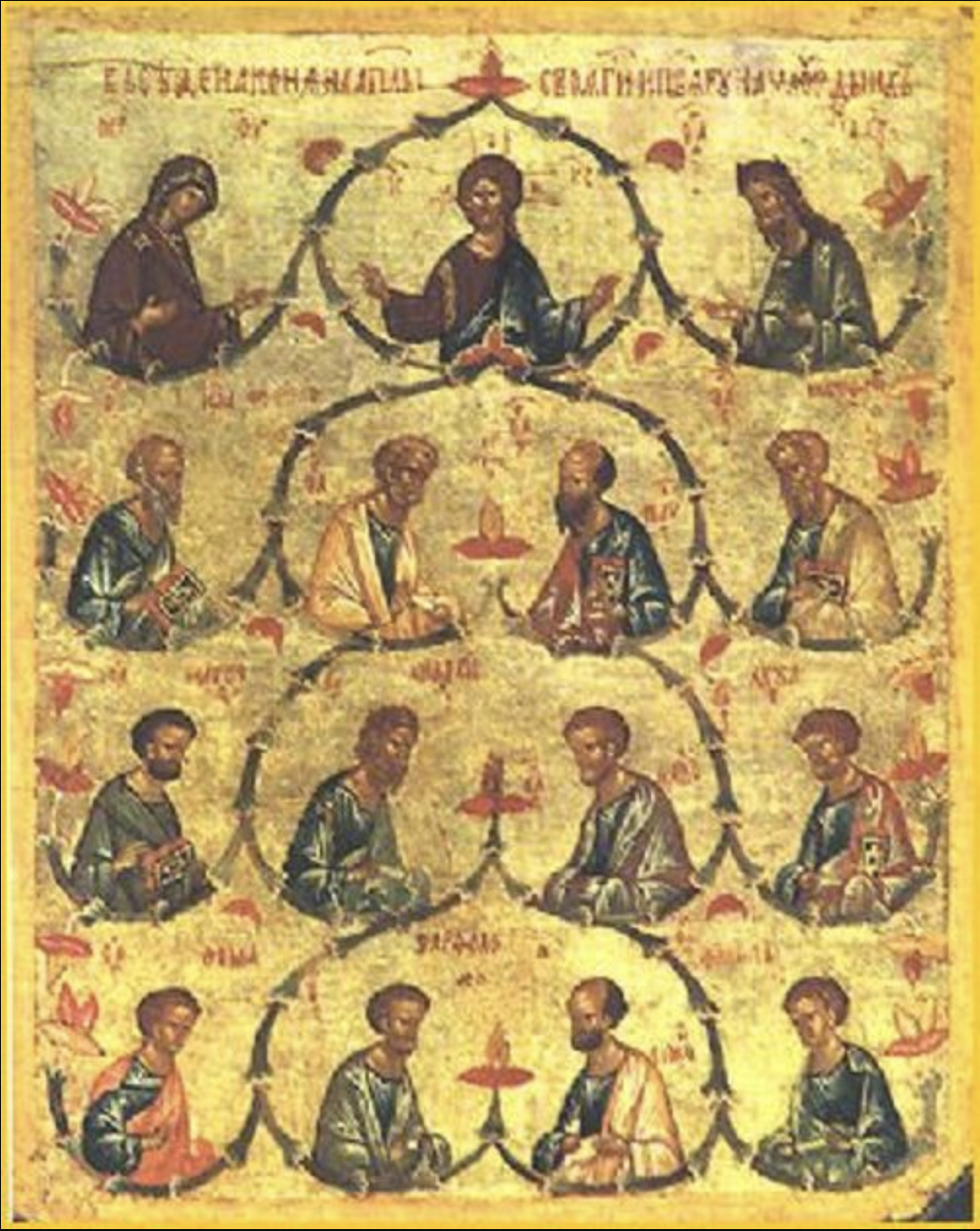
June 30, 2021 (Holy Calendar), Synaxis of the Twelve Apostles
What happened? What happened to these opaque and bumptious men? When Jesus stops and asks, "Who touched me, for I feel virtue go out of me?" (Mk 5:31), they answer archly, "Who touched you?! You stand in a throng that presses in on all sides, and you ask who touched you?!" On other important subjects, the Master asks again and again, "Do you still not understand?!" (Mk 8:17) and admonishes them: "O ye of little faith!" (Mt 14:31, 16:8). In the end, their insolence and inattention was crowned with treachery: they ran and disowned Him and then hid in a locked room while the women among them continued to circulate in public.
It has been said that no single fact emerging from the Gospels more reliably attests the accuracy of these accounts nor attests the Divinity of Jesus more reliably than this unflattering picture of the Twelve Apostles. Otherwise, their embarrassing conduct would have been edited out, for they composed these stories.
What could have transformed nervous and scared "rabbits" among men into courageous, surefooted, and devoted heroes, even giants? What happened .... if not the Resurrection, Dominical teachings, and Ascension of our Lord Jesus Christ? Could anything less than this explain it?
Yes, they were unsteady. In this, they were like us. One was named "Judah" (var. Judas) meaning "every Jew" or "Everyman." The one who replaced him was named "Matthias," close enough to the Greek word "Matthetes" ("Disciple") to repeat the same point. Are not the Apostles assembled in such a way, fallible and human, such that they invite us into their blessed number? Do we not look at these men and say, "Yes, they made mistakes, too. I might find my own humble place among them." Let us, then, ask for their prayers. They know their own former faults well enough, and they also know what can happen when we open our hearts to God. Pray for us, O Holy Apostles, that we too many be counted among your number!
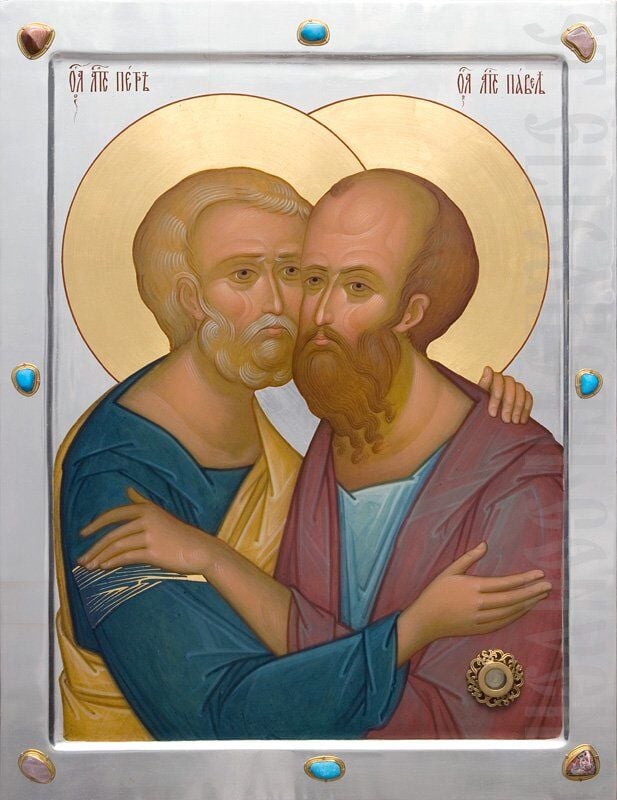
This year the Hermitage chose to offer a reflection on the Holy Glorious "High Kings" among the Royal Apostles, Ss. Peter and Paul, on American Independence Day. (Spoken reflection is found here.) The question posed to us by the Holy Spirit is this: since democracy was well known to the lifeworld of Jesus — even prized, as Roman citizens were willing to die in order to restore the Roman Republic — why does the Son of God hold up royal thrones as an ideal of governance?
Today, on the Feast day proper of the Holy Apostles Ss. Peter and Paul, the Hermitage offers another, different meditation, reflecting on the importance of unity among foremost leaders of the One and True Church, even between these two very different Apostles, whom we might characterize as opposites, "oil and water."
Please join the Hermitage as we consider the challenge of unity within the sphere of the One Holy Catholic and Apostolic Church. (We acknowledge the Convent of St. Elizabeth, Minsk, from whom the Hermitage purchases icons and from where we have borrowed a picture of this icon of Ss. Peter and Paul expressing brotherly affection.)
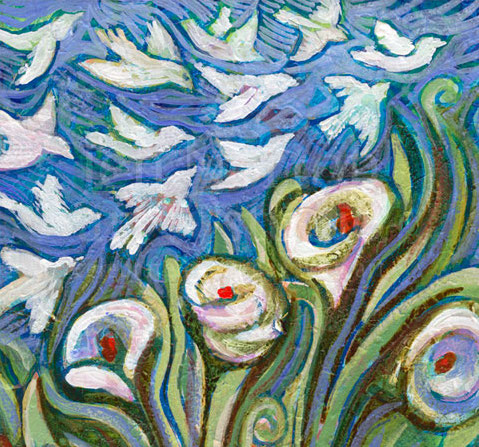
"If the light inside you is darkness, how great is that darkness!" Jesus declares. "It all depends," He says, "on the soundness of your eye: how you look upon the world, what your view of life is." "Consider the lilies of the field ....." He continues, inviting us into an extended meditation. It is a meditation that begins in Eden, where God has set the now of Heaven all around us, inviting us into His ideal of love, which is our complete dependence upon Him and our trust. He picks up this thread in the second gathering of His people around Him, set apart in the Sinai Wilderness. All of this is on Jesus' mind as He looks out at God's people gathered in a little valley on the north shore of the Sea of Galilee. For it does not matter where we gather. Wherever we go, we are inescapably in the palm of God's hand. He alone is life. And the sacred breath within us is a short tether .... and of His designing.
This morning's Gospel lesson, on the eve of the Feast of the Holy, Glorious, and All-praised Leaders and Apostles Ss Peter and Paul, invites us into a reflection on saintly life, which is complete dependence on God. Any stirring beyond this form of devotion and life smacks of pridefulness. For to say we are self-sufficient is to say that we no longer need Him. This morning's message then is this: "Need Him with all your heart!" For then you will find yourself deep in the palm of God's Hand.
Please join the Hermitage as we humbly seek to find our way into this most safe and holy place.
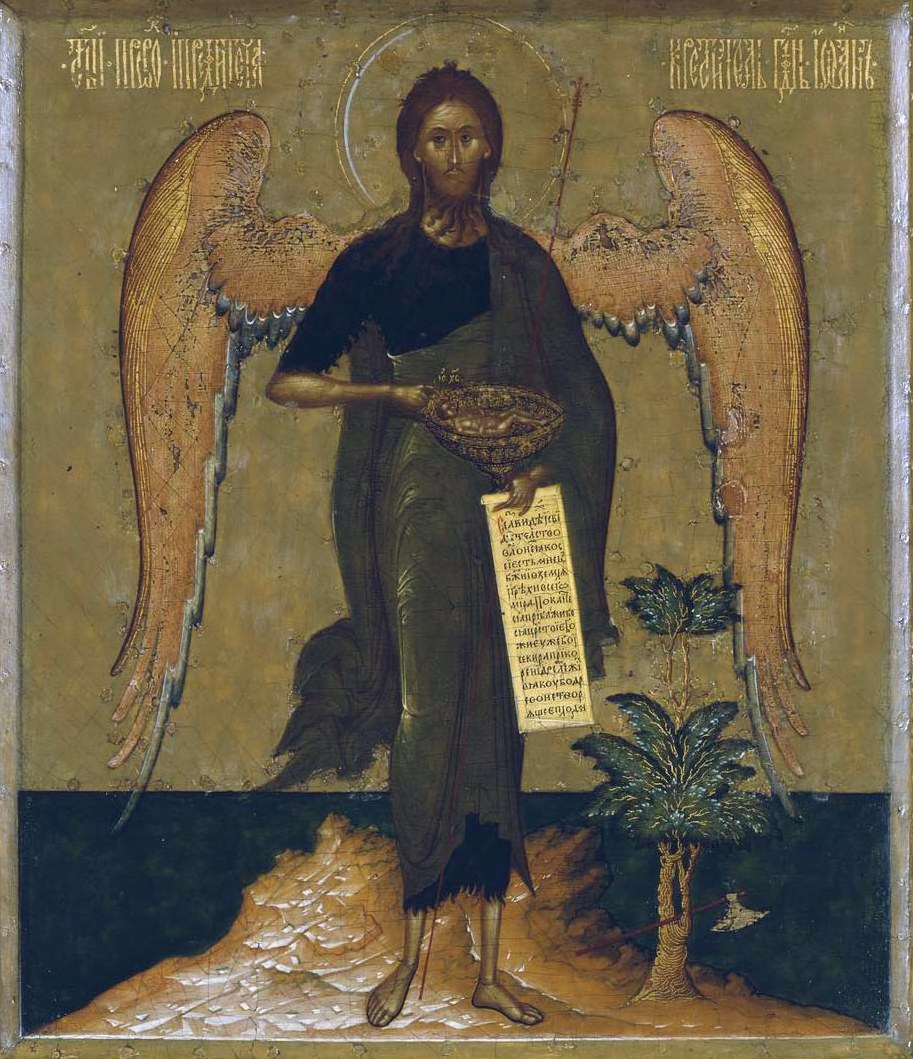
Above all else, St. John the Baptist is holy. Of men-born-of-women, the Master comments, none has arisen greater than John. He stands midway between Heaven and Earth preparing men and women, cleansing them, opening their hearts and souls to godliness, in his unique ministry of ushering them forward into Presence of God, Whom he pictures to be a Spotless Lamb, the Agnus Dei. How is it then that we have been handed the ridiculous depiction of him as a wild and rude mountain man, as a burly cave man, as the earthiest of creatures?
Certainly, this inhospitable image has been appropriated by liberal clergy who wish to make John Baptist a meme for cruel and merciless theology. But I do not mean today's situation only. For thousands of years, our image of St. John the Forerunner has been eclipsed by these misconceptions. One reason for this skewing of our historical imagination is indeed an error — an error in translation .... of a tiny phoneme. But the result has been decisive, dominating our pictorial imaginations ever after.
Please join the Hermitage as we attempt to remove years of dirt and grime that have obscured the pristine icon of the one who was chosen to herald the approach of God Most Holy.
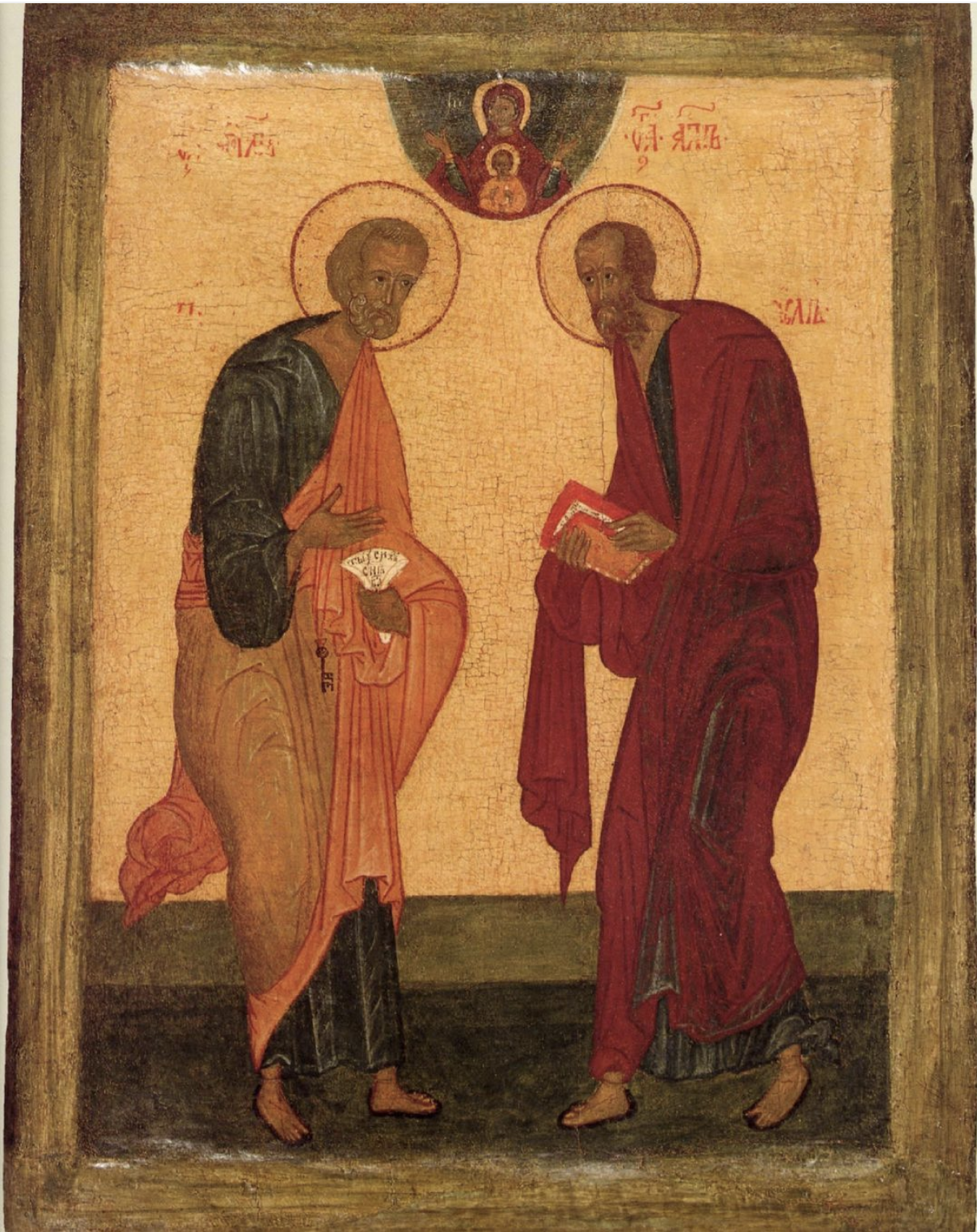
On this Independence Day weekend in the United States, on which democracy is accorded a sacred status, we Christians celebrate, not democracy, but its opposite: Kingship. The Lord Jesus is "King of kings and Lord of lords" (Rev 17:14). And He has set upon the Earth royal thrones that are to rule over us. In this season of saints, we celebrate the annual feast of the High King, St. Peter. Moreover, the Lord articulated plainly and clearly that Twelve Thrones would rule over God's people, Israel. Rising as Chief Shepherd over other sheep, of another fold (Jn 10:16), is the other High King, St. Paul. He is known to history simply as "the Apostle," for his shepherd's crook has exerted extraordinary sway over most of us who call ourselves Christians — that is, "the Gentiles."
How do we respond? Christian life is not ours to revise, much less to fashion out of whole-cloth. Putting a sharper point on it, the Russian saint, John of Kronstadt (who died before the Bolshevik Revolution), has written, "Hell is a democracy. But in Heaven there is a Kingdom." What does all this mean? What does it mean for us? Are the Four Gospels anti-democratic? Certainly, democracy was well know to Jesus' time. The example of Athenian democracy dates to the sixth century B.C. And the Roman Republic, which inspired the American republic, was still revered during Jesus' lifetime.
What do we say? What do we do? How shall we respond? Please join the Hermitage as we ponder these serious questions.
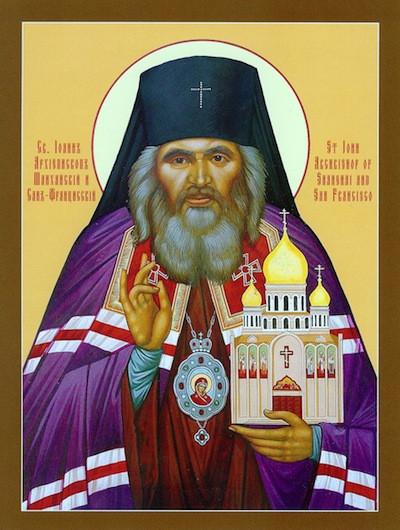
June 19, 2021 (Holy Calendar), St. John the Wonderworker, of Shanghai and San Francisco (b. 1896)
In the Russian Church Abroad we say, "Our Father Among the Saints." St. John the Wonderworker was the first Primate of the Russian Orthodox Church Outside of Russia. As one who poured himself out freely as a balm to heal disunity and strife, he is surely Father to us all. Being a healing presence in an attitude of patient and understanding love, St. John said, is in the nature of holiness:
| Sanctity is not just a virtue. It is an attainment of such spiritual heights, that the abundance of God's grace which fills the saint overflows on all who associate with him. Great is the saint's state of bliss in which they dwell contemplating the Glory of God. Being filled with love for God and man, they are responsive to man's needs, interceding before God and helping those who turn to them. |
The universally beloved Metropolitan Anthony of Belgrade (recognized leader of the Russian Church Abroad following the Bolshevik Revolution) would say of him, "If you wish to see a living saint, go to Bitol to Father John." His humility was well known among his students and parishioners. Upon being called to Belgrade, he met a woman he knew on a streetcar. He told her that there had been a mix-up: that the Holy Synod had summoned the wrong "Hiermonk John," whom they planned to elevate to the episcopacy. When he saw her again the next day, he told her the situation was worse than he thought: they wanted to make him a bishop. "Impossible!" he said. Why, he could not even speak with out stammering. She replied, "Moses had the same problem."
So near to God in his essence was St. John that he exhibited Divine powers, both during his life and in the lives who have prayed to him for intercession. Pray for us, St. John of Shanghai and of San Francisco, for the divisions that you sought to heal afflict us today.
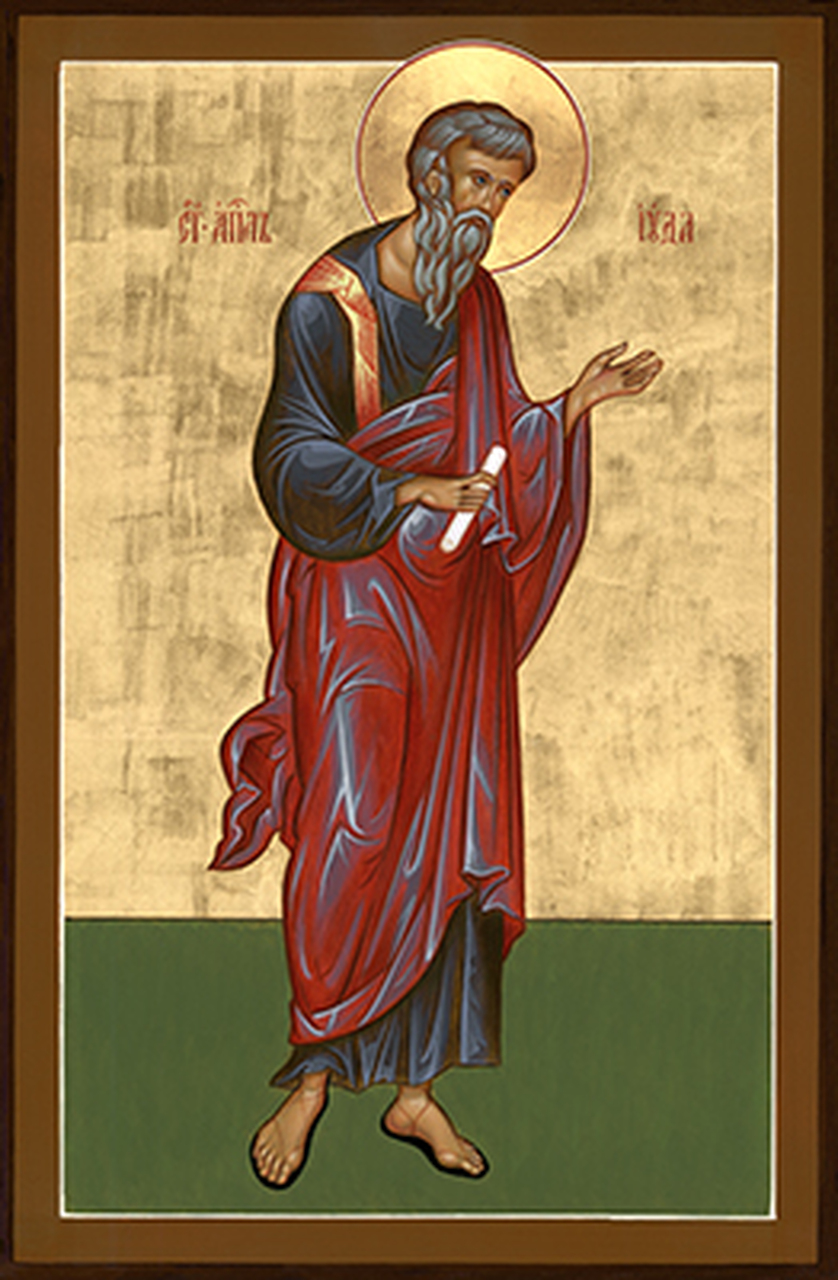
June 19, 2021 (Holy Calendar), Holy Apostle Jude, Brother of the Lord (d. 65)
The Evangelion of St. James (brother of the Lord) tells of devout widowers gathered at the Zion Temple. One would be chosen as guardian of Mary of Nazareth, who had lived in the Temple since age three but who could not remain beyond the age of twelve. When a dove emerged from Joseph's staff, marking him to become her chaste spouse, he refused. Uppermost in his mind were the jibes he would hear from his sons. But in the end one son, the author of the Evangelion, would accompany his father and the Most Holy Theotokos in the Flight to Egypt, later becoming proto-Patriarch of Jerusalem. Another of Joseph's sons we celebrate today: Jude, an Apostle, one of the Twelve. St. John the Theologian wrote that their faith in their stepbrother would develop slowly: "For even His brothers did not believe in Him" (Jn 7:5). St. Jude was martyred in Beirut — beheaded along with Simon the Zealot in 65 A.D.
In his Catholic Letter, written in Persia according to Tradition, Jude plumbs the deepest depths sometime writing in mysterious phrases. His subjects include the Holy Trinity, the Incarnation of God in the Lord Jesus, the War in Heaven, the realm of Hell, the Assumption of Moses, and, joining his brother James, the imperative of faith and good works. Pray for us, St. Jude, for we seek to follow you into these same mysterious depths.
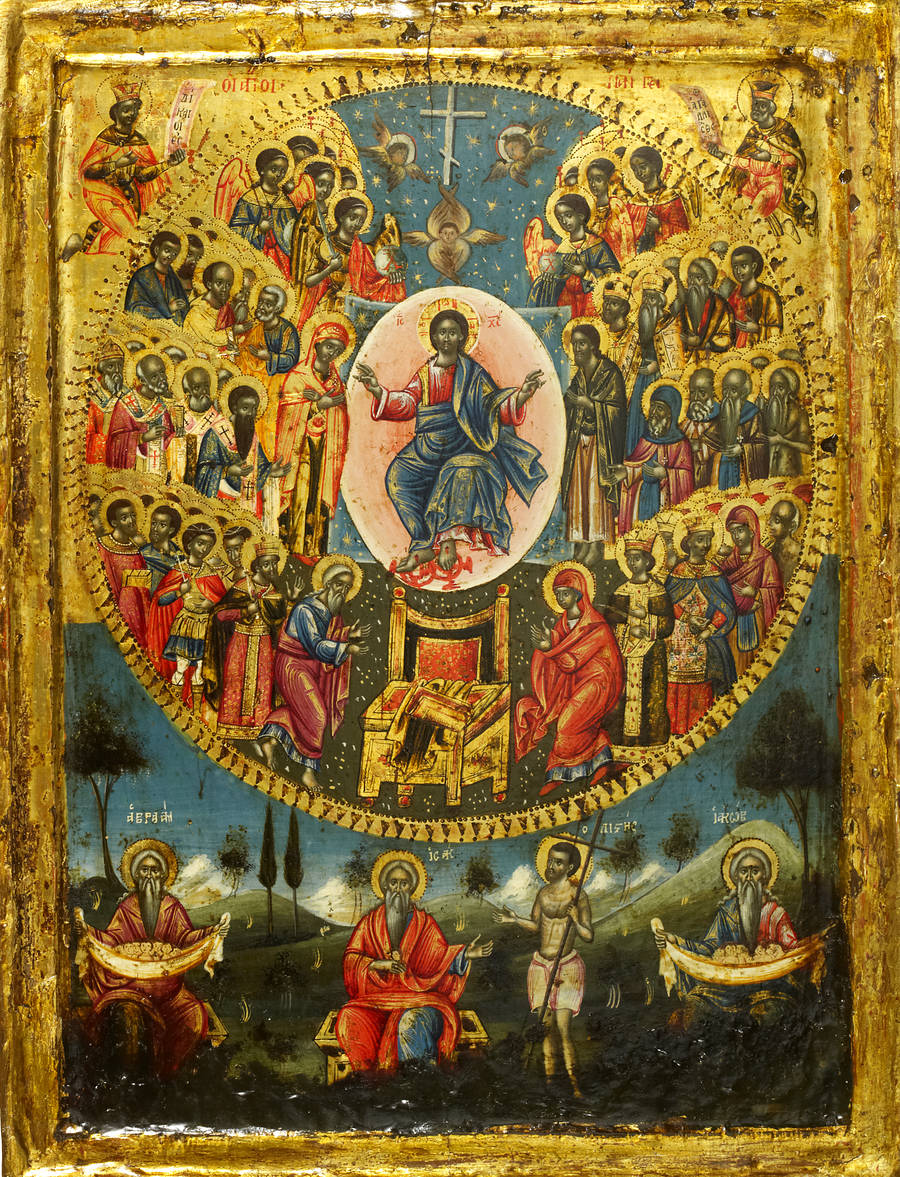
Who are the saints? What is it that marks them off as a group? Were they theologians? Were they seminary professors? Were they Church administrators? What is the golden thread that runs through each and every life among the saints in light?
They were, and are, men and women who encountered God and then responded. They responded in like measure. Encountering Almighty God, our Creator, the source and destination of the human lifeworld, they responded proportionately. This does not mean that they offered themselves in superhuman dimensions. God called them where He found them: simple men and simple women, living ordinary lives. It is not dimension or magnitude that God seeks in us. It is faithfulness. It is to receive perfect love, perfect understanding, and perfect wisdom and to requite that love with all the love within us — not the same love, for we are not perfect. But with all of our love and all of our lives. And soon we will discover that we have become much more than we thought we could ever be. But isn't this the nature of love?
Please join the Hermitage as we seek to offer our simple lives and our simple love to the One Who loves us perfectly and completely, all of us.
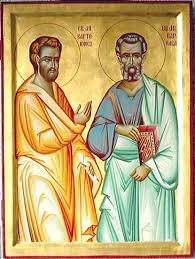
June 11, 2021 (Holy Calendar), Ss. Bartholomew and Barnabas, Apostles (1st century)
On the Feast of the Holy Apostles Ss. Bartholomew and Barnabas, we celebrate the whole early Church in its diverse parts: the Church of Galilee and Judea, of the Twelve Apostles and the Seventy, the Church of the Pillars and of the Mission to the Gentiles, of the Gospels and of the Pauline Correspondence.
St. Bartholomew was born in Cana of Galilee. Following the Descent of the Holy Spirit, he went out into the world preaching the Gospel with fellow Apostle Philip. They met with the Beloved Disciple and joined him in his journey to Phrygia, performing many miracles, exorcising many demons, and bringing many souls into the Kingdom. Seeing that the people were departing from the gods of their ancestors, Bartholomew and Philip were condemned and ordered to be crucified. But our God, Who loves His saints (Ps 37:28), caused an earthquake to open a fissure beneath the ground on which the prefect and pagan priests in authority stood. Philip had died but Bartholomew was taken down.
St. Bartholomew later traveled to India, to Armenia, and into present-day Iraq. In present-day Azerbaijan, he was crucified upside-down (like his companion St. Philip) as pagan authorities sought to humiliate him and put a stop to his mighty preaching. Yet, St. Bartholomew continued his heart-moving sermons from the cross. He was then taken down, flayed, and beheaded. Efforts to suppress his relics, throwing his lead-lined coffin into the sea, also failed as the heavy box later arrived on the shores of the Island of Lipari.
The Holy Fathers, Ss. John Chrysostom, Cyril of Alexandria among them, believed Bartholomew and Nathaniel (Jn 1:45-51) to be one and the same.
St. Barnabas, born Joseph of Cyprus, was educated at the feet of Gamaliel with his fellow student and friend, Saul of Tarsus. Being present to hear the Lord Jesus' teachings in the Temple, his heart was touched and knew Him to be the Christ. The Lord would choose him to be one of the Seventy Apostles, at which time he took the religious name Barnabas, or "Son of Consolation." He would sell all that he had and laid it at the feet of the Twelve (Acts 4:36-37).
Later, when Saul arrived to Jerusalem seeking to join the Church, he was feared and suspected as a spy. But Barnabas would intercede and relate the story of St. Paul's conversion on the Road to Damascus. Barnabas joined St. Paul in Antioch and thence on other missions enduring imprisonment, beatings, and many privations together. But a parting of the ways would separate them with St. Paul's refusal to accept Barnabas' friend John-Mark, the likely author of the first Gospel and St. Peter's amanuensis.
Barnabas would found the great see of Milan and was perhaps first to preach Christ in Rome. At age 76 (c. 62) he was stoned at the place of his birth, Cyprus, with his body thrown on a fire. The Evangelist St. Mark placed his body in a cave, still unharmed, and honoring St. Bartholomew's last wish, laid upon his breast the Gospel According to St. Matthew which he had copied in his own hand. (94% of St. Mark's Gospel appears in the Gospel of St. Matthew.)
In 448 St. Barnabas appeared to the Archbishop of Cyprus in a vision indicating where his relics could be found. The faithful recovered his incorrupt body with the Evangelion still intact upon his breast. Around this time the Church of Cyprus began to be regarded as an Apostolic See.
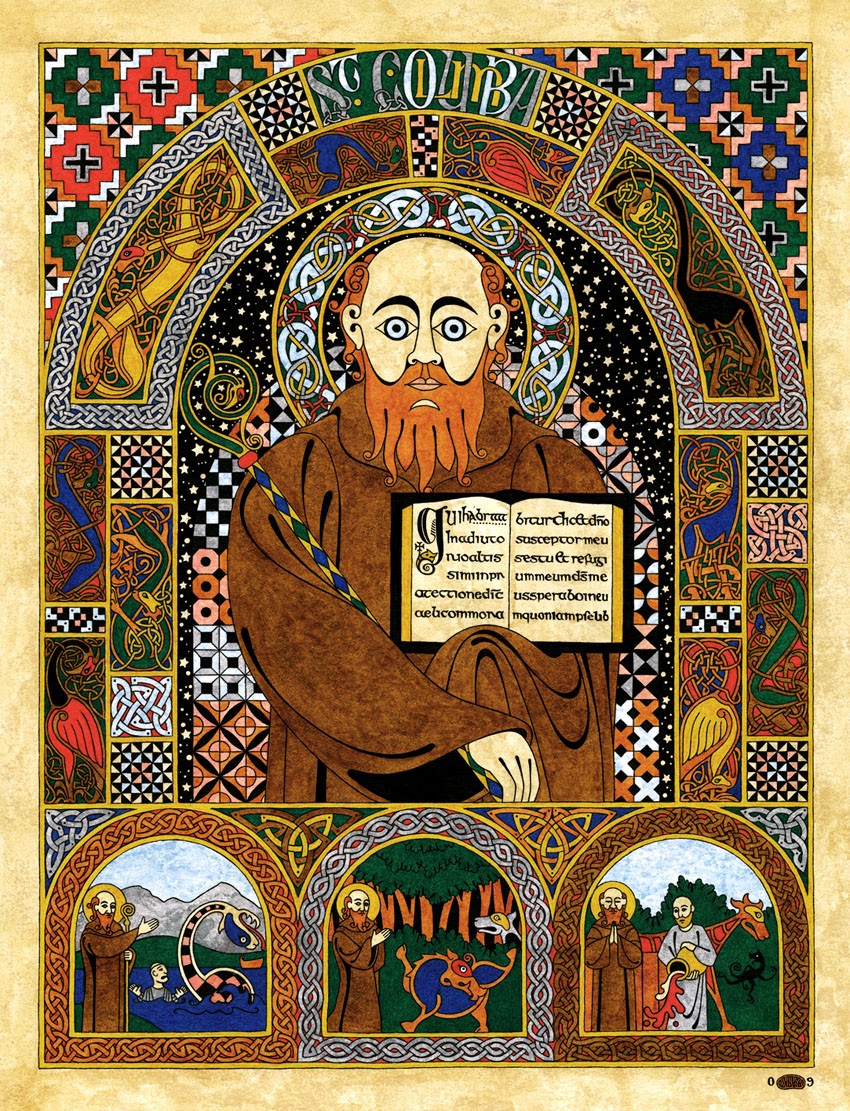
June 9, 2021 (Holy Calendar), St. Columba of Iona, Apostle of Ireland (b. c.521)
St. Colum ("dove"), later Columcille ("dove of the Church"), was born and educated in Ireland unlike the Roman-British missionary St. Patrick (the name means, patricius, or nobleman). St. Columba was a student of St. Finnian, founder of the great Monastery of Clonard, which at its peak saw a steady population of three to four thousand monks — among them the Twelve Apostles of Ireland, including St. Columba, and other future fathers of the Celtic Church. Columba was a monk, a priest, a poet, a scholar, a scribe, a founder of more than 300 churches, and the founder-abbot of the Abbey of Iona. To understand the mettle of this saint, we must also understand the culture of Celtic Ireland in which monks, clergy, and women were commonly seen to go to war. Monks and priests routinely carried swords. (St. Finnian's own sword could be seen on display at Clonard, a cherished symbol for centuries following the founder's death).
Columba had borrowed a Latin Psalter from a monk, Finnian of Moville (not of Clonard), in order to copy it for his own library and ministry. Later, the book lender demanded both his Psalter and the copy made by Columba, a claim enforced by the King of Meath ("To every cow belongs its calf; to every book belongs its copy"). The ensuing controversy, evidently disturbing old tribal fault lines, resulted in the Battle of Cùl Dreamhne (561), in which 3,000 of Columba's opponents were killed. As penance, St. Columba was exiled and charged with converting the Picts — a fierce, polytheistic, Druidic people scattered throughout the Goidelic-Celt homelands and thickly settled to the north of Ulster in what is now southwestern Scotland. His foundation of Iona, a most dominant center of religious life, education, political influence, and missions for centuries, would prove decisive. It was from Iona that St. Aidan was formed, who later reestablished Christianity in Northumbria, founding the great Monastery of Lindisfarne. According to Thomas Cahill, St. Columba and the holy men he trained "single-handedly refounded European civilization throughout the continent" following the sacking of Rome and the fall of the Dark Ages (How the Irish Saved Civilization, 1995, 4). Pray for us, St. Columba, that we may follow you in courage, strength, and perverence — traits that all disciples of Christ must practice if they are to rise to the horizons set for them by God.
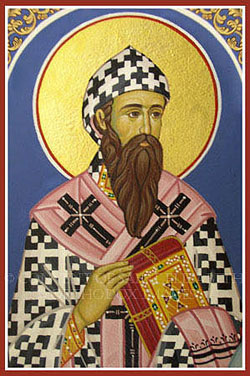
June 9, 2021 (Holy Calendar), St. Cyril of Alexandria, Pillar of the Faith (b. 376)
The first great schism of the One Holy Catholic and Apostolic Church occurred during the fifth century associated with Nestorius, Archbishop of Constantinople, flatly rejecting the title Theotokos. Mary of Nazareth, he said, certainly may be styled Christotokos, but Mother of God? That's going too far! His opponent and the Blessed Mother's champion was St. Cyril, Patriarch of Alexandria (412-444), who played a central role in the Third Ecumenical Council, of Ephesus (431). The decrees of that Council included Nestorius being deposed from his see at Constantinople and his theological followers condemned as heretics (Canons 1-5). No variance from the Creed of Nicaea-Constantinople (381) would be tolerated (Canon 7). Jesus was to be countenanced as fully God and fully man. His Mother, therefore, gave birth to God, not merely Christ. She was the undoubted and Most Holy God-bearer, Theo-tokos.
If St. Cyril was adamantine in his right judgments, executing their sentences faithfully, he was no stranger to tender mercy. He was an outspoken and tireless opponent of the heretical teachings of Novatian (b. c.200), which held that any Christian that had denied the Church during time of persecution (lapsi) could never again be received back. He forbade this teaching in Alexandria and drove its proponents out. For what is Christian life if not forgiveness to and compassion for the broken-hearted?
Pray for us, St. Cyril, that we too may be bold in our faith defending the dignity of Our Lord and His Mother at any and all times.
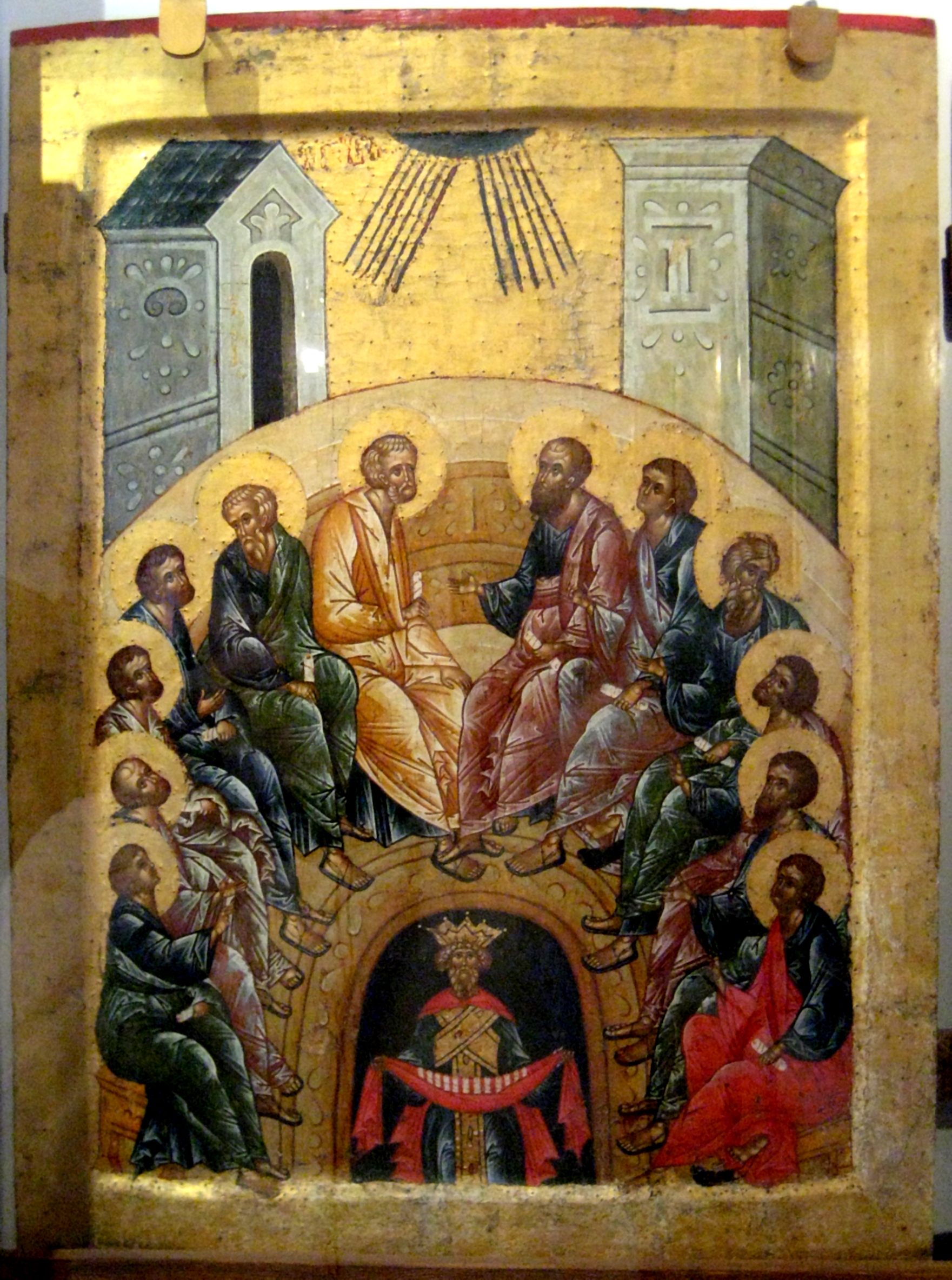
This year's high Feast of Pentecost, commemorating the Descent of the Holy Spirit, is like no other in the long history of the Church. We are living through unprecedented events. Yes, the Black Death wiped out one-third of Europe, 20 million people. But this plague was confined to Europe. Since the dawn of Creation, no human has seen nor heard of a universal plague, reaching every part of planet Earth, taking 178 million lives so far .... with new waves now decimating India and Brazil. This disease strangles our re-spiration, that is, our spiritus. Can we dismiss as coincidence, then, that it follows upon a spiritual plague that has strangled the pathways through which we breathe? Do you say I am taking a metaphor or symbol too far? Jesus would not say so. He breathed upon His Apostles, founding the Hierarchy of His Church, saying "Receive the Holy Spirit" (Jn 20:22). He breathed His Divine Breath upon the void with spritely life arising wherever the Spirit of God hovered (Gen 1:2). In God's meaning-bearing world, nothing is a coincidence. And God does not jest. Where the Holy Spirit hovers, where His precious children are being strangled, where we look out on a spiritual plague that shows now sign of abating, God does not jest. On this year's high Feast of Pentecost, let us look up stretching our lungs and souls wide in sincerity and earnest love, receiving the Holy Spirit. Let us turn away from every strangling toxin and particle. Let us remember that a plague of death also passed through Egypt, which was a spiritual bondage as well as a material one. God does not jest. And He does not send most sacred signs without utmost intention and having most serious consequences.
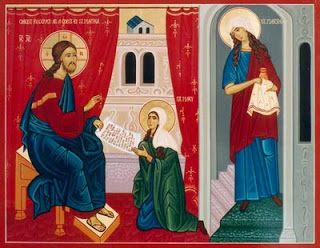
June 4, 2021 (Holy Calendar), Ss. Mary and Martha of Bethany (1st century)
In Ss. Mary and Martha of Bethany we see a perfection of monastic life: ora et labora. Our icon depicts Mary kneeling before the Lord as in prayer. She contemplates the Word of God, represented by the scroll. At the same time, Martha sets the house in good order and provides nourishment at table. Prayer and labor: each is holy and necessary. As the Ss. Mary, Martha, and Lazarus did not marry, carrying their holy life and ministry to the world following Lazarus' exile from Jerusalem (after the death of the Protomartyr St. Stephen), we see in all three a prototype of monastic life, living in chastity, leaving the world and worldly vocation, living under the obedience of disciples.
These were the ones Jesus loved — who loved Him before a show of miracles, who believed He was the Christ, who made their home and their hearts His own, and whose pure faith shone in Judea. Mary anointed Him with costly spikenard countenancing His Kingship and reverencing His foretold death. Martha was favored as the one who would receive His holy words, "I Am the Resurrection and the Life." Their home and family tomb would be the scene of the greatest miracle performed before Jesus' death and passion. Pray for us, Ss. Mary and Martha, that we might follow you in pure faith and in the high privilege of monastic life.

June 1, 2021 (Holy Calendar), St. Justin, Martyr (b. 100)
Do you believe that Jesus, the Man-God, is the Eternal Word of Creation? Do you believe that a true Image of God dwells within your ageless and immortal nous (soul)? Do you marvel that an immaterial instruction sequence lies at the heart of all life? (Yes, DNA is a molecule, but it is the idea — instruction set, the sequence — which is the point.) If you find these things to be compelling, then give thanks for the life of St. Justin, philosopher and martyr. With St. John the Theologian, Justin understood this sentence to stand at the center of the Holy Scriptures: "The seed is the Word of God" (Lu 5:11, Mk 4:14). His elaboration of the λογος σπερματικος (logos spermatikos), literally, the "seminal word," or "seed of reason," laying at the heart of all moving, sentient beings, being the spark that animates stirring life, touched a deep chord in the Hellenized world. His First Apology and Second Apology stand today as landmarks down to our time. Scholars have plausibly argued that he invented Christian Apologetics, transforming what had been a Roman administrative protocol (giving an account of yourself) into a theological genre. Jesus told His Disciples,
|
"To you it has been given to know the mysteries
of the kingdom of God, but to the rest it is given in parables, that 'Seeing they may not see, And hearing they may not understand.'" |
![]()
|
"I do not pray for the world but for those whom You have given Me,
for they are Yours. And all Mine are Yours, and Yours are Mine, and I am glorified in them." (Jn 17:9-10) |
At the point of His Ascension, Jesus presents one, last bold teaching: the Church, for whom He alone prays; the Church, in which He is glorified, for "right glorification" of God is her vocation. It is no use to seek God on one's own. It is no use to practice faith as a form of consumerism, trying this and trying that. It is no use to practice the ancient and true forms of religious life apart from her. Upon His departure, Jesus reveals something startling: "He does not pray for the world, but for the Church alone." Either we are in, or we are out. There is no middle ground, no neutral position, no "lukewarm" (Rev 3:16). Which Church? There is only One. There has always been only One. And there shall be only One until the end of the age, at which time He will receive the ones who are His. This is His promise.
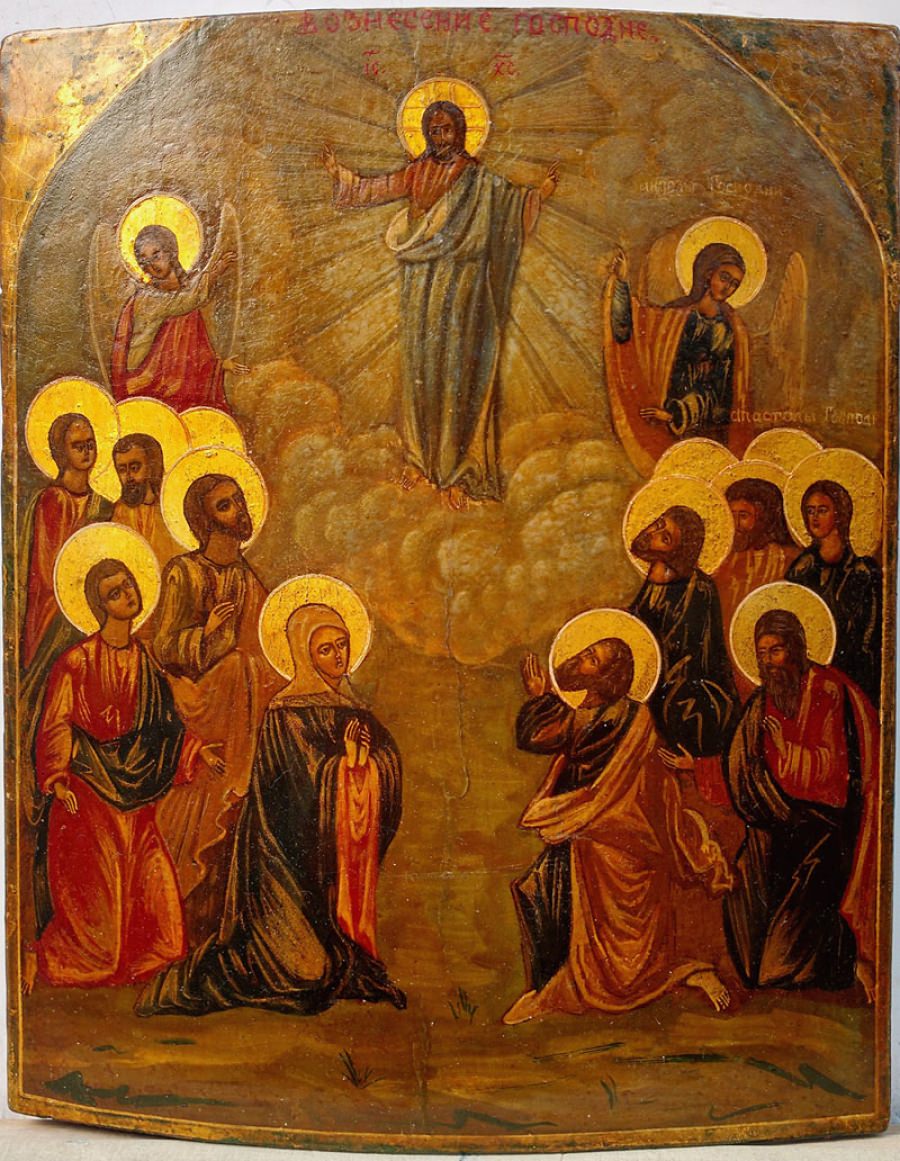
Today, we strain to imagine the hearts and minds of the Twelve during the events that have transpired over the past few weeks. The Breaking of Heaven's Bread and perfect concord in the upper room. Then, treachery and worse. Suddenly, the Master's arrest and torture. His heart-breaking steps down the Via Dolorosa. His Crucifixion at Golgotha and a final end in a sealed tomb. Then shock and awe with news of His Rising from the dead. Soon, a restoration of concord .... but much more, with Heaven and Earth being opened to them plainly and directly. We strain to imagine such deep valleys of shadowy death rising to the clear air at the highest mountain peaks and open sky then descending again into desolation: with this new revelation: the Master is leaving us. He must depart. We will see Him again .... someday.
Today, let us attempt to stand in their sandals, to think their thoughts and to feel their feelings. In this perhaps we might take a step closer to the One .... Whose love is all that matters.
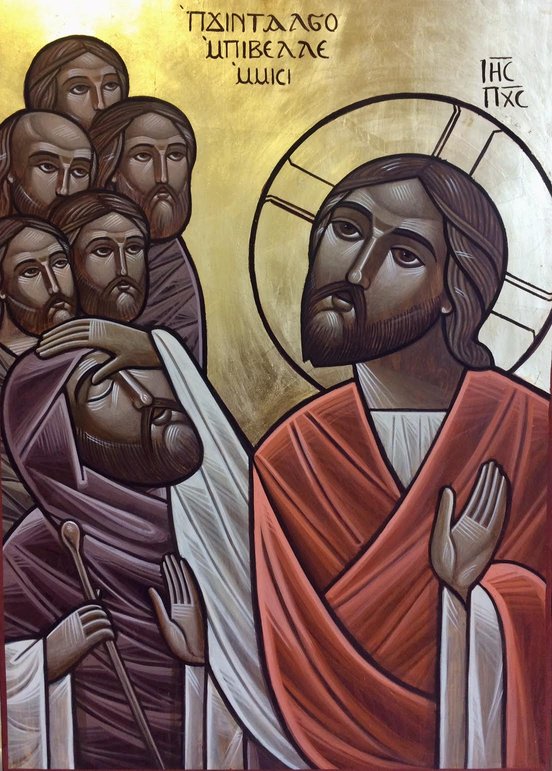
|
Jesus answered, "Neither this man nor his parents sinned,
but that the works of God should be revealed in him. I must work the works of Him who sent Me while it is day; the night is coming when no one can work." (Jn 9:3-4) |
Did the Son of God just say that when night comes, no one can work the works of the Father, not even God Himself? (Jesus says He must work while it is day.) These must be some of the most remarkable words in the Holy Gospels. We must stop and read no further, not until we have pondered this thoroughly.
What then is this night, which leaves all powerless to do God's works .... including Almighty God? And what are these works of God? The context for these questions is set: Jesus has said that the man born blind has not sinned, nor his parents. The occasion for his state of being is that God's glory be known, that is, that God, Who is intrinsically glorious, be known. Knowledge of God, then, is set in the foreground.
The moment of the blind man's vocation has come. This is his καιρος / kairos and the moment for which he was born. For it will be through Him that Jesus invites us into these most basic questions. Above all, this morning He sets before us a mysterious night. And it is this night that is given us to enter .... and know.
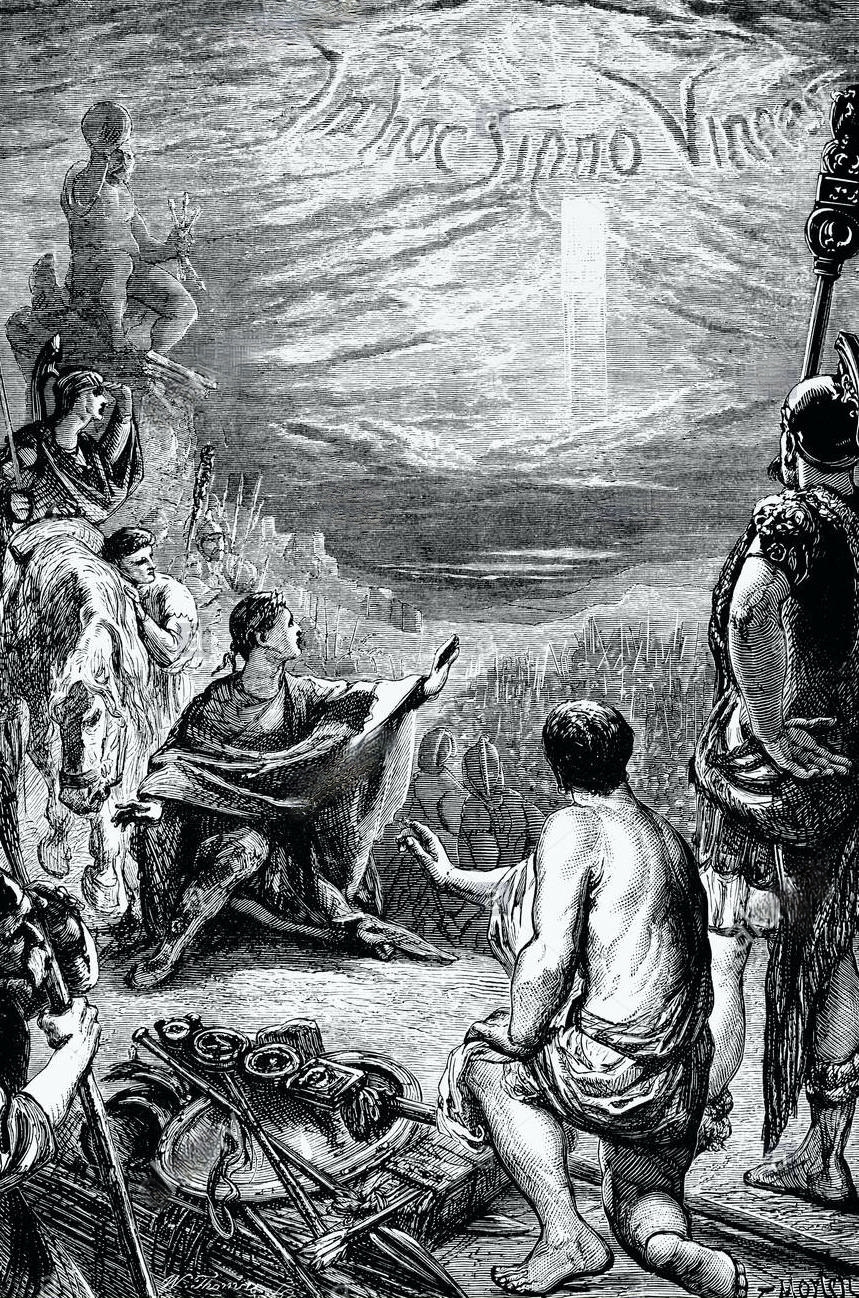
May 21, 2021 (Holy Calendar), Holy Equal-to-the-Apostles Emperor Constantine and Helena, Augusta
When Constantine was proclaimed Emperor over the far Western Empire by the armies at York in Britain in 306, he immediately granted liberty to practice the Christian faith openly. This enraged pagan co-rulers of the Western and Eastern Empires, who closed ranks in order to depose and kill him. They had been sympathetic to the view of Diocletian (284-305) that Rome's problems arose from "atheism," that is, refusal to worship the Graeco-Roman gods. Facing battle after battle against his pagan rivals in which Constantine's armies were granted victory, the sainted Emperor prayed to God to bestow a sign that would inspire his armies to continue through their valiant but exhausting trials. Soon, an enormous and radiant Sign of the Cross appeared in the Heavens bearing an inscription:
|
Εν τουτω νικα
En toutw nika |
Soon thereafter St. Constantine issued the Edict of Milan (313) granting religious toleration in the Western Empire. Ten years later, upon consolidating his rule over the entire Roman Empire, he expanded these same tolerations to all his subjects (323). Think of the date, which is very close to three centuries following the Crucifixion of our Lord: three hundred years of persecution and, many times, martyrdom. As Jonah had passed three days in the great fish, as the Lord Jesus Christ had passed three days from death to Resurrection, so the Body of Christ underwent a three-century ordeal through blood and fire.
Constantine's ascent would also signify unprecedented honors for his mother, St. Helena. She had been a cast-off, suffering divorce from Constantine's father who sought marriage to a noble pagan. Now, she was to be styled Augusta, a title recalling the Empire's ideal of highest rule under Octavian, Augustus Caesar. Both Ss. Constantine and Helena understood the purging and Life-giving properties of the Holy Cross. So the Emperor asked his mother to find the True Cross. With the help of Patriarch Macarios of Jerusalem, it was discovered miraculously together with the crosses of the two thieves.
Equals-to-the-Apostles Constantine and Helena understood the importance of embracing the Cross. Even today, we must seek our crosses: the quality of cleansing and purgation, which by its nature will rearrange our lives causing us to suffer. For only in a basic shake-up can real change occur. This is the path toward conversion and freedom and love for and of God. Let us make their motto our own: "By this Sign, conquer!" Through our crosses, we conquer our passions, our lesser and unworthy thoughts and impulses, and every thing in this world that separates us from the radiant Sign of God's agape shining brightly and burning off the dross from our souls.
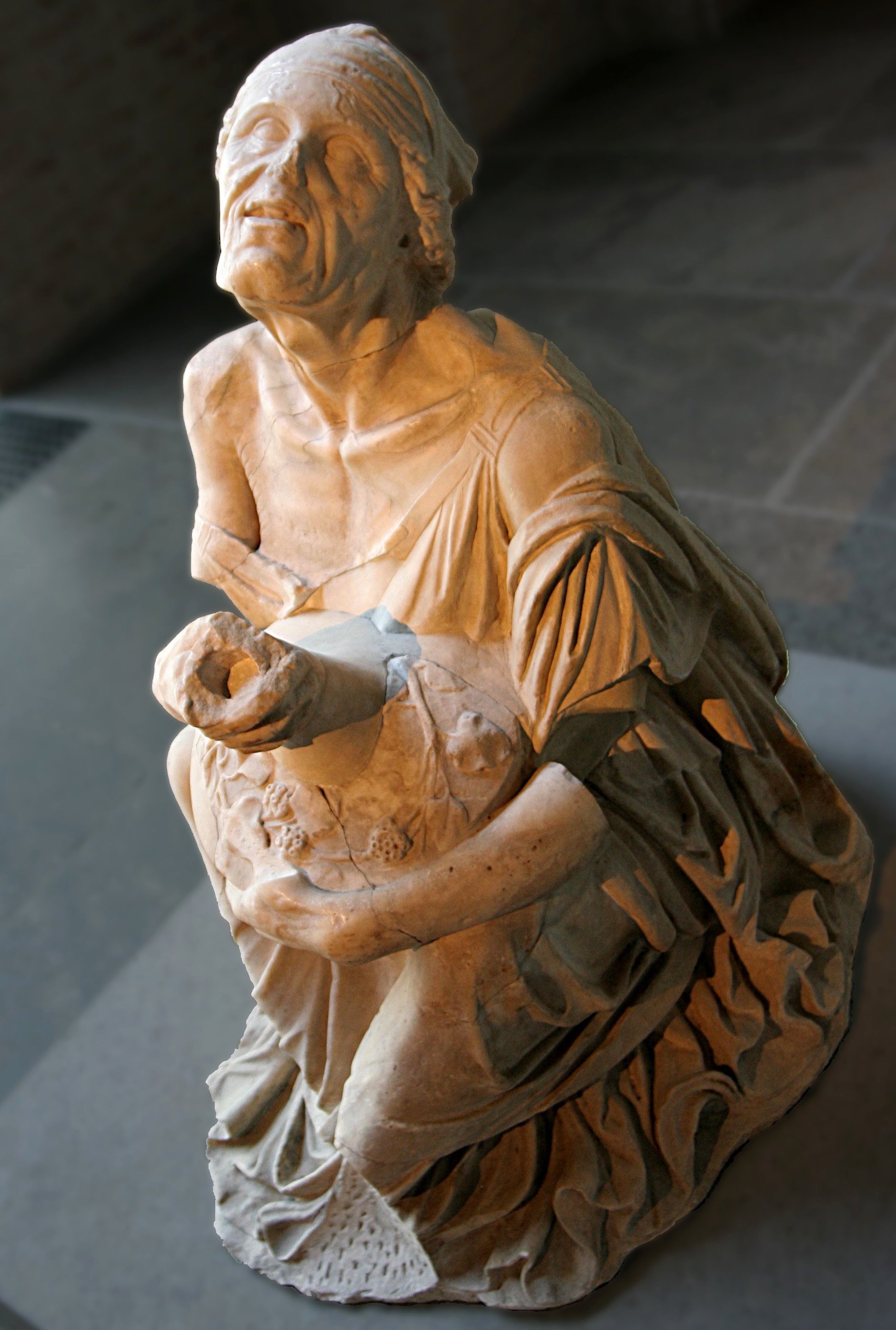
St. John the Theologian relates the story of a Samaritan woman which tells of two lives. The first is a life of aging and trudging clay. Water, signifying life, leaks from her jar and slips through her hands, for she must return to the well again and again, but in vain. She is nameless. The story also tells of a second life. This second woman overflows with energy and hope, of a transformed woman who will be styled the "first apostle" — first to proclaim Christ to the world. She is a vessel of light (Mk 4:21), and she radiates light (Mt 5:15-16). She will be called Photini, after the Greek word for light, phos.
Her former guise we recognize to be the "Way of Death"; her latter, the "Way of Life," articulated in the first sentence of the Didache, compiled and taught by the Apostles and circulated during the first century.
The Apostle of Love concludes his soaring Gospel with a final narrative telling of two lives, defined by two different kinds of love. The first life is the Lord of Love, Who offers His eternal gift, agape, to Peter three times. The alternative life is the stubborn Peter, who three times offers undependable, human love (philia) in exchange. That is, as St. John's Gospel concludes, we see again "the two Ways." And Jesus replies to Peter's failure by pointing to the end of fallible, human love, which is disease, incapacity, and death (Jn 21:18). Cracked clay.
These are the final words of our most important Gospel. And this will be the first and foremost message of the Apostles' Teachings, circulated around the same time. As the Apostolate begins with the excited words of St. Photini and her townspeople, "This is indeed the Christ, the Savior of the world," let us also remember the Two Ways and set our gaze always upward toward eternal love, to which the Lord continues to call us.
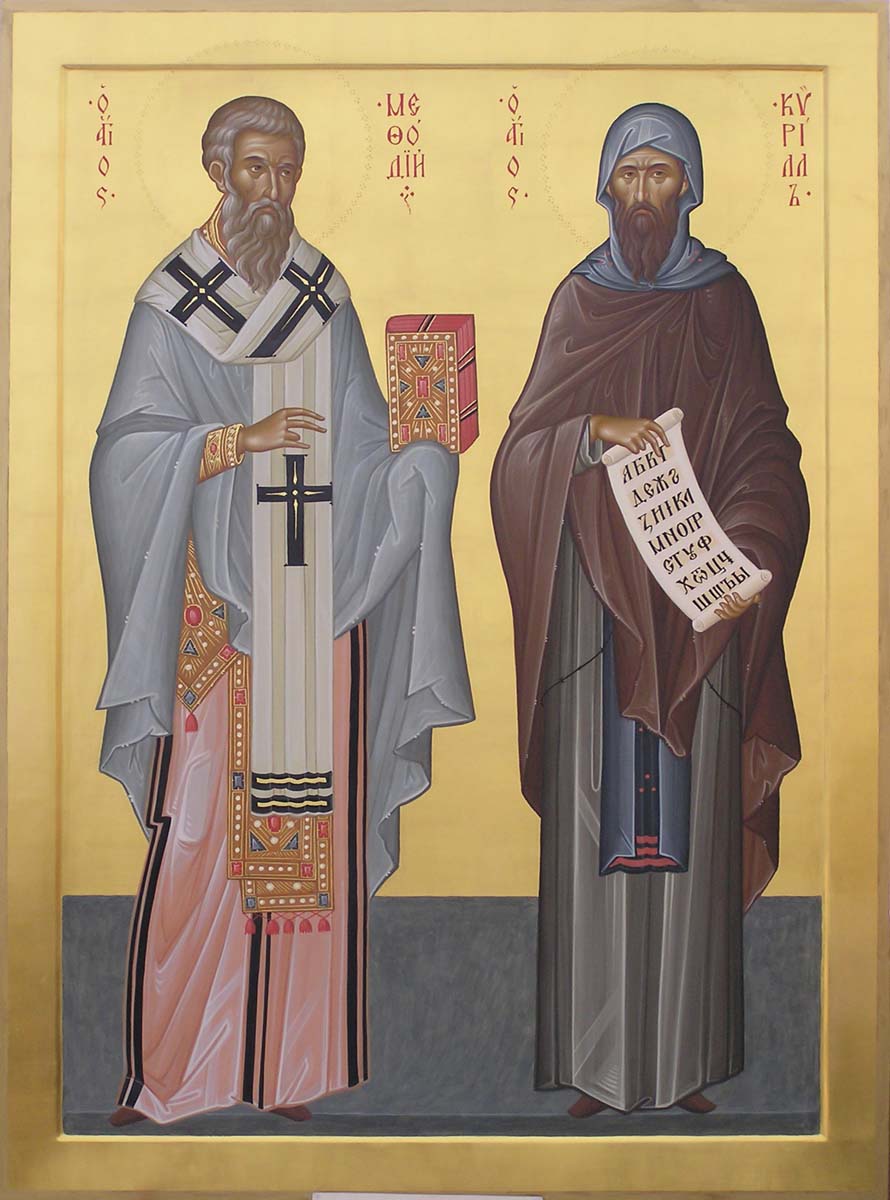
May 11, 2021 (Holy Calendar), Holy Equals-to-the-Apostles Cyril and Methodius, Enlighteners of the Slavs
The Slavic countries celebrate a national holiday today commemorating the Enlighteners, Ss. Cyril and Methodius, Equal-to-the-Apostles. Roughly half of Europe's Christian population is Orthodox (Orthodox Catholic Church officially), much more than half if you consider the Russian Federation as an integral whole. More than half of all Orthodox Christians worldwide give thanks to live in the care of the Moscow Patriarchate (including this humble Hermitage). The Slavic part of Holy Orthodoxy was made possible by two Byzantine scholars known as Apostles to the Slavs: St. Cyril (826-869) and his brother St. Methodius (815-885). In icons Cyril, a monastic, is seen holding a scroll of Cyrillic script named for him while Methodius, an archbishop, holds a service book representing his monumental landmark: worship in Old Church Slavonic (as we would say today). In general, the Orthodox Patriarchates of the second millennium, where the Holy Spirit burns so brightly in the present era, were made possible by these tireless and courageous apostles.
The Moscow Patriarchate has constructed three new temples in Russia every day presently totaling 30,000 (Moscow Times, May 27, 2019). The historian Andrew Walls famously pointed out that the Holy Spirit has completed His work with great bursts of fire in locales, that is within the hearts of individuals. First in Jerusalem, then throughout the Pentarchy, then throughout the Slavic nations, then to the New World, then to South America and Africa. The Holy Spirit once burned universally throughout the Ancient Patriarchates. Where would we be today if not for the Patriarchates that followed — Bulgarian, Serbia, Russia (Georgia and Romania through cultural-geographical influence) — where Ss. Cyril and Methodius had spread (and continue to spread) the Holy Fire?
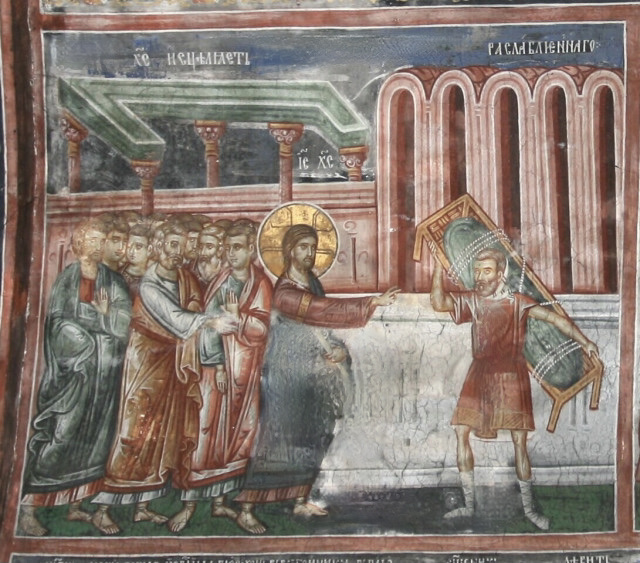
The modern mind recoils: "Sin no more lest anything worse happen to you!" Atheists pronounce mockingly, "So Jesus blames the victim for the crime he suffers!" But the waters at the Bethesda pool turn out to be deep waters. As a fourteen-century ceiling fresco from Pech, Serbia correctly identifies, the scene for the paralytic is a temple to the Greek (and later Roman) god Asclepius, where blood-sacrifice is offered in exchange for healing and long life. And the fifteen brief verses (Jn 5:1-15) of our Gospel lesson call us to plumb depths unto the destruction of the Zion Temple.
We must remember always, the Scriptures enjoin us to reflect, to go slow, to ponder, and to own a truth: when we enter them, we enter the Mysterium tremendum and that awe and reverence ought more to be our mind than unexamined skepticism.
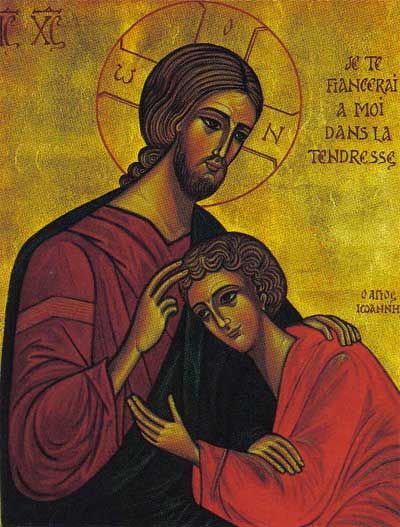
May 8, 2021 (Holy Calendar), St. John the Theologian, Apostle and Evangelist
St. John the Divine. The Apostle John. St. John the Evangelist. St. John the Theologian. The Beloved Disciple. Names pour out like crowns upon the "soaring eagle" as the greatest among the Apostles. He was the one who stood fast when the others ran. He was the first to venerate the Most Holy Theotokos as a son, keeping faithful vigil beside Her at the foot of the Cross and receiving Her as Mother of his life by Divine command: "Behold your Mother!" (Jn 19:27). He wrote our most important Gospel. He wrote our only Revelation of the Kosmos, disclosing its ultimate meaning and prophesying its fulfillment of time. His letters provide a window into Christian life having unmatched authority, for he writes from a Community whose membership includes the Queen of Heaven. He is deemed the greatest theologian by the Holy Catholic and Apostolic Church and manifestly the only Disciple who was not martyred, so he could fulfill that vocation. According to Tertullian (Prescription of Heretics), John survived being boiled in oil. And tradition teaches that attempts to poison him failed. By early accounts, he was carried on a litter from one Christian community to another in extreme old age, so children might touch the head that lay on the breast of our Lord. He fell asleep in the same Lord c. 100 A.D.
His Gospel leaves us with such riches as defies attempts to catalogue them. But let us conclude this brief reflection with one insight from the final verses of his Gospel in Chapter 21. Being a theologian and having a mind devoted to minute detail and deepest meaning, the Apostle of Love leaves us with a definition of love both by example and counter-example. In a final picture of Apostolic life, John narrates how the Risen Christ asks Peter three times to love Him. The noun form of the Greek word Jesus uses is agape, the highest form of love, self-sacrificing love, the laying down one's life for his friends: "greater love hath no man" (Jn 15:13). Each time Peter replies with the verb form of the weaker philia. Yes, it is a kind of devotion. We use the term today to describe those who are devoted to stamp-collecting: philatelics. In effect, Jesus says, You say you will be devoted to your job? Then do your job: "Feed my lambs .... Tend my sheep .... Feed my sheep" (Jn 21:15-17). Jesus departs from Peter with a final personal judgment: "When you were young, you pulled your own pants up and walked wherever you wanted. But when you reach the end of life, with all that prideful effervescence gone flat, another will have to change your diapers and carry you .... where you do not wish to go" (Jn 21:18, my colloquial translation). The Lord warns all with ears to hear: life is short. Do not trade the Kingdom of Heaven for a few, short years of prideful strutting and bluster. Pray for us, O Beloved Disciple, for we wish to love with your kind of love and become members of your Community in the Kingdom of Heaven!
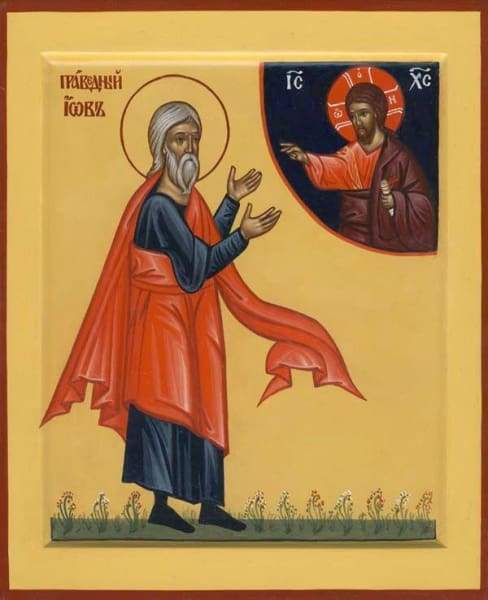
May 6, 2021 (Holy Calendar), Righteous Job the Long-suffering
Is it possible that in common life the Book of Job has been invoked more than any other book in the Bible? From the time it appeared perhaps 5,000 years ago, the story has spoken powerfully into the lives of all who have heard it (or even heard of it). Today, it continues to stand as a flat denial to what some Christians call "Properity Gospel" — the absurd premise that if we will be faithful to God and mind our moral manners, then God will bless us with financial prosperity and good health. Such a premise flies in the face of one of the greatest Gospel injunctions: "Follow me!" To follow the Man of Sorrows, to conform ours lives to His, does not equate to lounge chairs on yachts .... while most of the world lives in privation. Nor is Heaven a beach dotted with servants presenting an endless succession of frozen cocktails. If we pray to the saints in light, or those in the greater life in general, to intercede for us (as we do), then they must be privy to our sufferings and sorrows (and they are). Heaven then is not a place of carelessness but of caring, not a place of escape but of rescue, not a place of selfish pleasure but of a selfless giving away, following Him, Who emptied Himself of power and prerogative, so He could fill His boundless and majestic capacities with our cares and sorrows. And what is our part in this glorious transaction? To love Him come what may, to devote ourselves to Him in perfect trust, and to honor the great privilege of receiving His love. This is life. And so long as life breathes and has motion, the story of faithful Job will continue to be one of our crucial texts. Pray for us, O faithful and long-suffering Job, for we are but faint pictures of your suffering and long to be vivid pictures of your faithfulness.
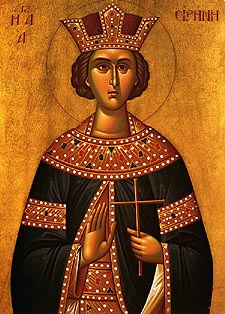
May 5, 2021 (Holy Calendar), Great Martyr Irene of Thessalonica
Born around the turn of the third-to-fourth century in the city of Magedon, Great-martyr Irene was one of the twelve Virgin Martyrs who appeared in a vision to St. Seraphim of Sarov and the Diveyevo nun Eupraxia on the Feast of the Annunciation in 1831. She was Princess Penelope, daughter to Persian king Licinius and his wife Licinia, who went to great lengths to insulate her from Christianity. Yet through her tutor Apellian, she learned of Jesus the Christ and of His Kingdom and received baptism from a priest Timothy. She took the religious name Irene (peace).
Being a marriageable age and facing a succession of suitors chosen by her parents, she resisted knowing that marriage to a pagan would be impossible. On a day, a dove bearing an olive branch flew through a window of the tower where she was being held captive. Then, an eagle flew through the room bearing a wreath of flowers. Finally, a raven flew in carrying a snake dropping it beside the olive branch and wreath. Apellian explained that the olive branch stood for the grace of God received in Baptism; the wreath signified victory in future life; the snake betokened suffering and sorrow. Apellian revealed that the Lord had chosen her for betrothal. He would be with her as she endured many trials and hardships.
Her story discloses an extreme resistance to the Christian faith (her own father sought to torture and kill her) and as well as insights into the way the faith was perceived during this crucial period of its reception. Again and again, Great-martyr Irene was subject to torture and death, yet again and again she was held harmless. She became a wonderworker bringing many thousands to the faith (including her parents on Christmas Day). She traveled throughout the ancient world with Apellian preaching and working miracles while also undergoing multiple tortures and deaths. Yet, she could not be killed. When the end of her earthly life came, her Bridegroom revealed the time and directed her to enter a tomb where she departed quietly.
Her story tells of God's sovereignty over all things. He alone is the Lord of Life. Our life on Earth will be marked by disappointments, trials, and sufferings. For who would deny suffering in a world where 900 million go to bed each night with an empty stomach? Her story tells the good news: God's dependability in a world that is not dependable and God's love in a world that does not love. Pray for us, O Betrothed of the Heavenly Bridegroom, that we may live lives of purpose like yours!
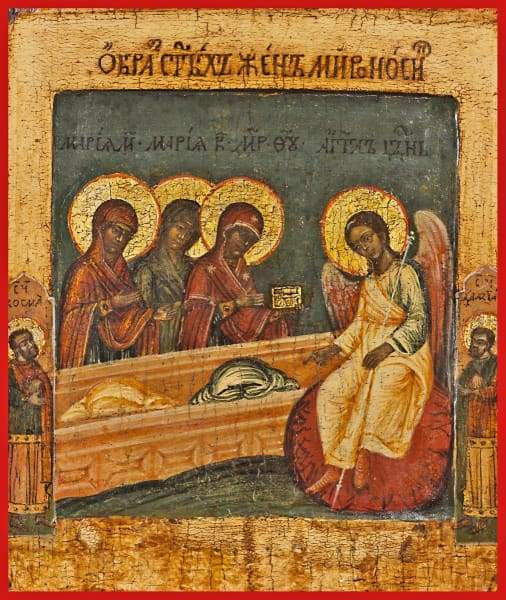
Though Simeon prophesied that the Lord Jesus would be a Sign of Contradiction and that Mary's heart would be pierced by a sword, "Joseph and His mother marveled" (Lu 2:33): they did not understand. His disciples did not understand the nature of His ministry. We read in John 6:66 that most abandoned Him "and walked with Him no more." So He taught an additional teaching:
|
".... unless a grain of wheat falls into the ground and dies, it remains alone;
but if it dies, it produces much grain." (Jn 12:24) |
In that spirit, I ask a question this morning. What is this myrrh flowing through the invisible cracks between Heaven and Earth? What is this empyreal essence arising from holy icons .... if not the tears of Heaven? "The burning point of life is love, and because love is sad, life is sad," wrote Joseph Campbell (The Hero with a Thousand Faces). The great question of our earthly journey is this sad love. "Christ did not come to explain human suffering or to eliminate it," wrote the modern saint Archpriest Gheorge Calciu. "Rather, He came to fill human suffering with His Presence."
Our vocation from God's hand is to bear myrrh after the example of our Holy Mothers. The thorns of the Myrrh Tree recall His Crown; its wood points to His Cross. Its resins attest to imperial estate and a dying to the world. Who hear His Truth and know His voice must suffer. The ones who practice Heaven's Proverbs must be exploited and crushed. But be of good cheer, for He Who suffered above all has overcome the world. And He still gives signs of His Love. Defying all worldly explanation and obeying no law of physics, myrrh pours into our lives. And we respond, in like fashion, by pouring our lives out as a holy libation (2 Tim 4:6, Phil 3:17). We pour our lives on to the broken ground. And there, in that place of twisting torsion and pain, where the Proverbs of Heaven are mocked and the other cheek is struck once more, we detect the unmistakable fragrance of holiness, of royal anointing and Presence.
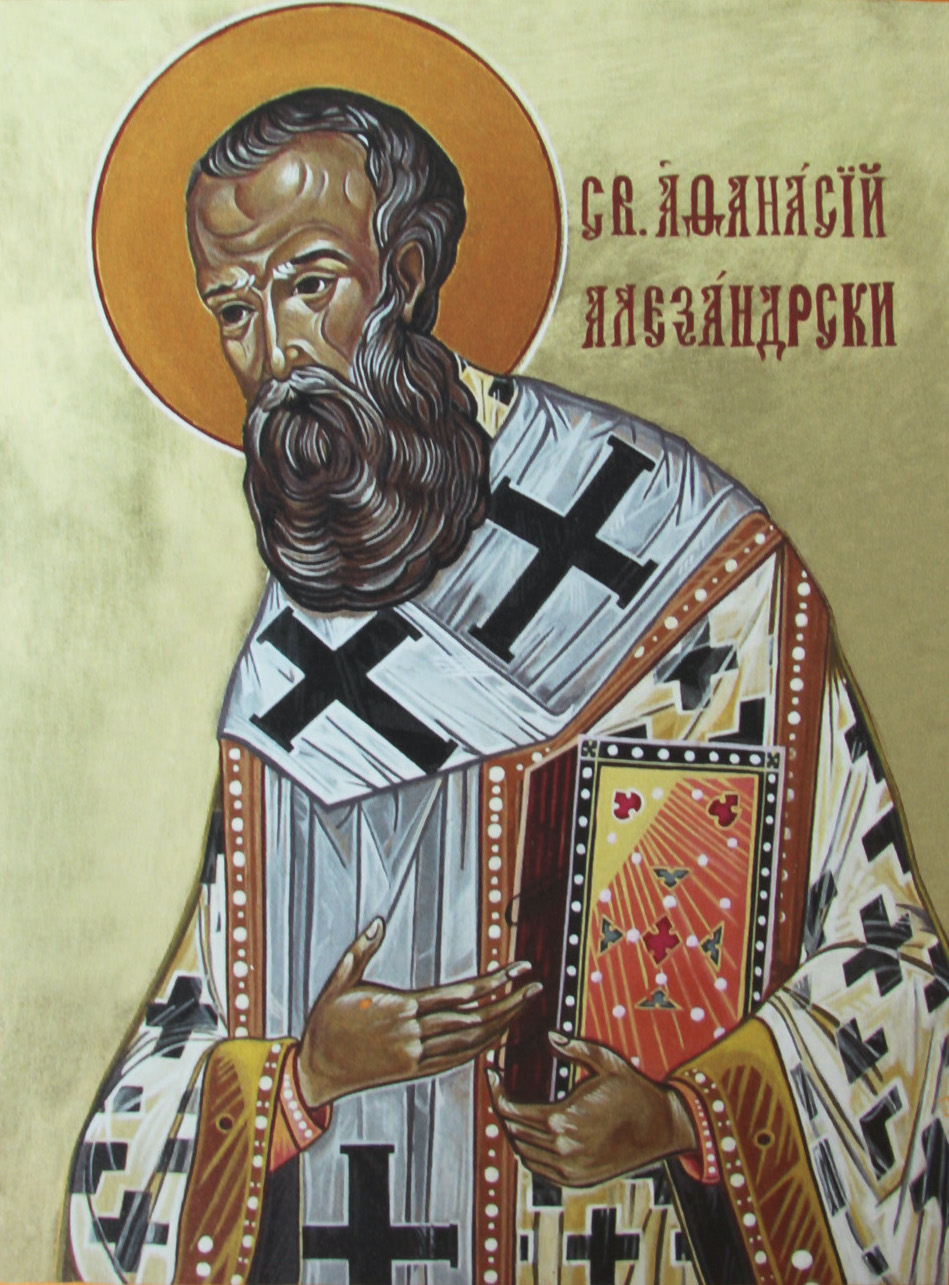
May 2, 2021 (Holy Calendar), St. Athanasius the Great, Patriarch of Alexandria
He was among the greatest of the Fathers, a Pillar of Orthodoxy, a Patriarch of the original Pentarchy. He is styled "the Canon" for his decisive role in settling the canon of Scripture. He is called "Contra Mundum" for his heroic resistance to a world gone mad from Arianism. We think of him nearly as a "Desert Father" as he endured five exiles from his great see and wrote the seminal biography of St. Anthony the Great, which became a bestseller spreading a new form of Christian life all over the world: monasticism.
As the West would make a cult out of the death of Jesus (Hilarion Alfeyev, Orthodox Christianity, II, 310), Athanasius would stand forever as the magisterial witness to the life-giving, salvation-endowing Life of God's Son. His De Incarnatione remains a towering theological landmark articulating this master principle: following the Fall from Grace, the telos, or blueprint, within each human life had been ordered to death; then, at God's Incarnation, the shock of an incomprehensible event, God's Person touching our lifeworld, flipped the telos of every human creature from death to life. Athanasius asked the question, "But how do we retain this Atonement effected by Jesus' Incarnation?" and replied, "By keeping our eyes ever-fastened upon Him" (paraphrase from De Incarnatione). We must fix our hearts, our souls, and all our love upon God. After all, is this not the Divine command from Sinai's mount?
His blend of uncompromising holiness, flinty heroism, humility at the feet of hermits, tender compassion for the faithful, ascetic rigor, intellectual brilliance, and Divine wisdom captures for us, here at the Hermitage, all that is meant by the word Orthodoxy. Pray for us, St. Athanasius, Patriarch, Desert Father, and Saint, for your device Contra Mundum, rapidly becomes our own resort and defense.
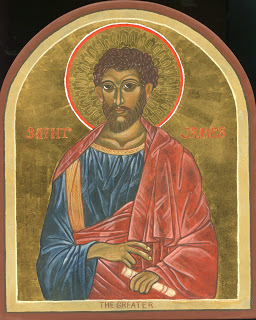
April 30, 2021 (Holy Calendar), St. James the Greater, Apostle
He was undoubtedly among the closest to the Lord Jesus — brother of the Beloved Disciple, John the Theologian; called among the first, with his luminous brother, to be numbered among the Twelve; invited to ascend a Sinai-like summit with John and Peter beholding the Only-begotten Son in His aspect of Divinity and hearing the voice of God the Father. These were honors rising to the level of Moses, whom they saw there.
He was bold and passionate. When the Lord Jesus was not duly received in a town of Samaria, he moved (with his brother John) to call fire "down from heaven and consume them" (Lu 9:54). Jesus named the brothers Boanerges, the sons of thunder. It was this bold character that drove James to traverse the Roman Empire from East to West and back again preaching in Spain and then being martyred in Jerusalem — the first among the Twelve to be martyred.
By a later, Western medieval tradition, James and John were held to be grandsons of St. Anna, mother of the Most Holy Theotokos (from a marriage following the death of Joachim). This invention was probably intended to place their mother, Mary Salome, who would then be cast as the blood sister of the Most Holy Theotokos, in a better light. Yes, she pressed her putative nephew to "grant that these two sons of mine may sit, one on Your right hand and the other on the left, in Your kingdom" (Mt 20:21), but she was family. This tradition was rejected by St. John of Damascus, who affirmed that St. Anna married once and bore one child: the Mother of God.
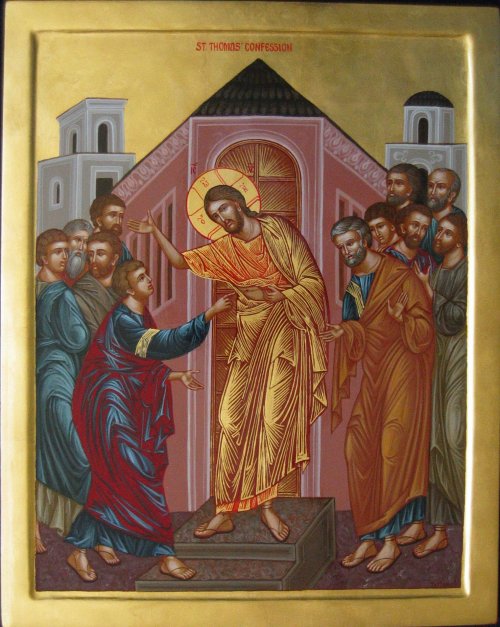
He raised the scope and scale of the Great Commission to epic proportions, founding the Church in India and thence to China .... and back again. He was the Odysseus among the Apostles. And he would die the death of a Hector or an Achilles. Which figure in Homer or any other source from Antiquity could rival him? How in the world, then, do we hang upon him the faint-hearted label, "Doubting Thomas"? Have we not tripped somewhere? Have we not missed something? The question we should ask is not of him, but rather who or what he is doubting. The Holy Spirit, Who guides us into all truth, has not yet come. The Church has not yet coalesced into a teaching authority. Let us revisit the upper room that first Sunday evening of the Age of Grace.
It is a pivotal moment in our history. And we must not get it wrong, for this is a story of our time when Christians cower in dark corners fearing to be cancelled, fearing to be shunned, fearing to lose upward mobility, fearing that their children will be "marked." Thomas is an epic hero of the faith — a Ulysses, a Hector, an Achilles. We must come to our feet when he enters the room. We must declare, "Hear, hear!" when he speaks. And we must remember his bold faithfulness. For without such as these, we shall all perish.
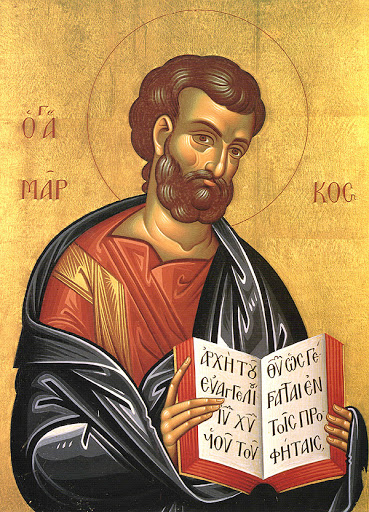
April 25, 2021 (Holy Calendar), St. Mark, Evangelist and Apostle
An unbroken tradition links the Evangelist of our earliest Gospel with John Mark, one of the Seventy (Lu 10:1ff). According to Eusebius of Caesarea (Ecclesiastical History, 15-16), St. Peter, following his escape from Herod Agrippa I through the agency of angels, met with Mark among his traveling companions. The younger man became his interpreter and amanuensis writing down the old Apostle's sermons as they journeyed together towards Rome. In this sense, the Gospel According to St. Mark can be said, at least in part, to be the Gospel of St. Peter. In the third year of the Emperor Claudius (43 AD), St. Mark departed for Alexandria founding one of the Five Patriarchates of the Holy Catholic and Apostolic Church, and certainly a see of great erudition and theological depth. Pray for us, St. Mark, Evangelist and Apostle, for you are the first Gospel witness to God-in-our-midst, and we continue to need the light and fire you have poured out on the Earth.
![]()
April 20, 2021 (Holy Calendar), Bright Monday.
By tradition the Russian Orthodox Church venerates the Sweet-kissing Icon of the Most Holy Theotokos here at the beginning of Bright Week. Venerated by a noblewoman of Constantinople, Victoria, during the iconoclast controversy of the ninth century, she threw the "Sweeting-kissing" icon into the sea in desperation to save it from the bon fire. It arrived safely to the Garden of the Theotokos at Mt. Athos, where it was found by monks.
Five centuries earlier, St. Nicholas of Myra had persuaded the Emperor Constantine to grant tax relief to his diocese. Fearing the Emperor would change his mind, he threw the signed imperial decree into the Mediterranean out of the reach of man, whence it was found by fisherman in Myra and safely preserved. Why the tradition of casting precious objects into the sea? Because the unconquerable sea is beyond the reach of man's goverance and control. The chaotic sea alone is God's province to rule. Of the great, demonic sea dragon, the Psalmist declared, "You have broken Rahab in pieces, as one who is slain" (Ps 89:10). "Are You not the arm that cut Rahab apart, And wounded the serpent?" (Isa 51:9), the prophet Isaiah asked in rhetorical question. God wrested order from the chaotic sea at the Creation, and His Son ruled the pounding tempest with a single word. To throw what is precious above the reach of men is to place it into the hands of God. May we go forward in this season of Great Pascha understanding that the greater the chaos around us, the more God will use our randomness to His Own purposes. Let us praise His Almighty Name, our only safety, goodness, and order!
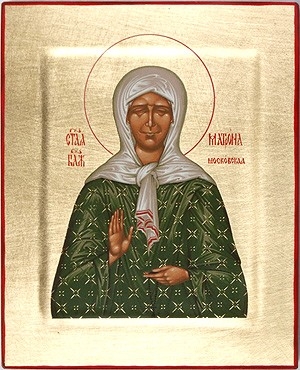
April 19, 2021 (Holy Calendar), St. Matrona of Moscow (1952).
Though nearly all were born with eyes, they could not see, persecuting the Church of God, murdering bishops and priests, burning temples and icons, crushing the faithful. She was born without eyes, but had Heavenly vision. Though her name Matrona suggested "Hostess," even "Benefactress," she had nowhere to lay her head, living in peoples basements, a transient amidst Moscow's frigid temperatures and shunned by her communist brothers who feared association with this living saint of Orthodoxy. Though she could scarcely supply her own needs, she was a wonderworker, a prophet, and a healer.
We who venerate the Apostles and kneel in profound devotion before the Lord Jesus, can sometimes forget that they were outcasts living in poverty. Of the Master, Bartholomew asked, "Can anything good from Nazareth?" skeptical that a Galilean, not "a real Jew," could be taken seriously. The "inner circle," the brothers John & James and Andrew & Peter were from Bethsaida in Gaulanitis, the Tetrarchy of Phillip. Matthew was a Levite and, therefore, held a placed of honor in Judea except that he was a tax collector, despised by the Jews. Judas Iscariot's name suggests that he was a true Judean, but who was false in real terms.
The Kingdom of Heaven is not of this world. Understanding this, composer Gian-Carlo Menotti placed the following words in the mouths of the Three Magi, also outlanders, a year before Matrona's death:
|
the Child we seek doesn't need our gold.
On love, on love alone He will build His Kingdom. His pierced hand will hold no scepter; His haloed head will wear no crown. His might will not be built on your toil. Swifter than lightning He will soon walk among us; He will bring us new life, and receive our death. And the keys to His city belong to the poor. |
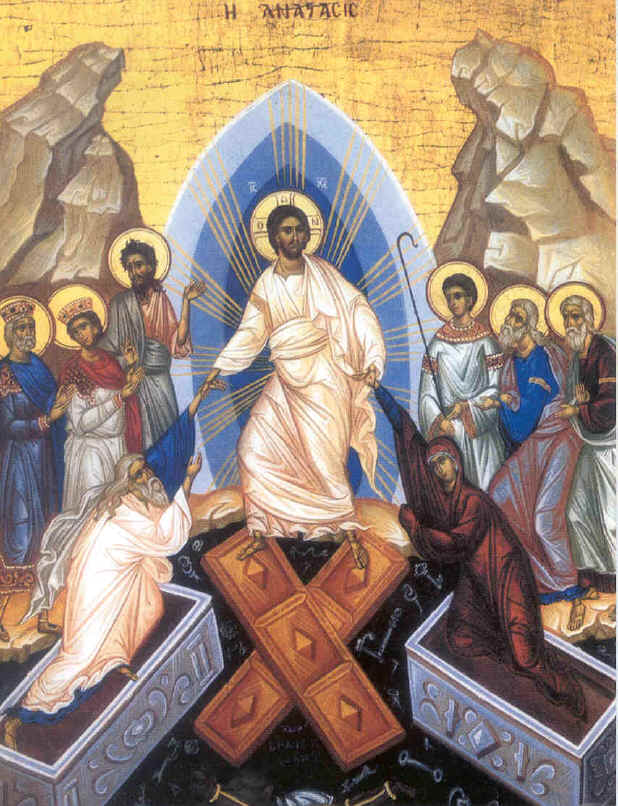
Christos anesti! Christos voskrese!
Christ is risen from the dead,
trampling down death with death,
and on those in the tombs bestowing life!
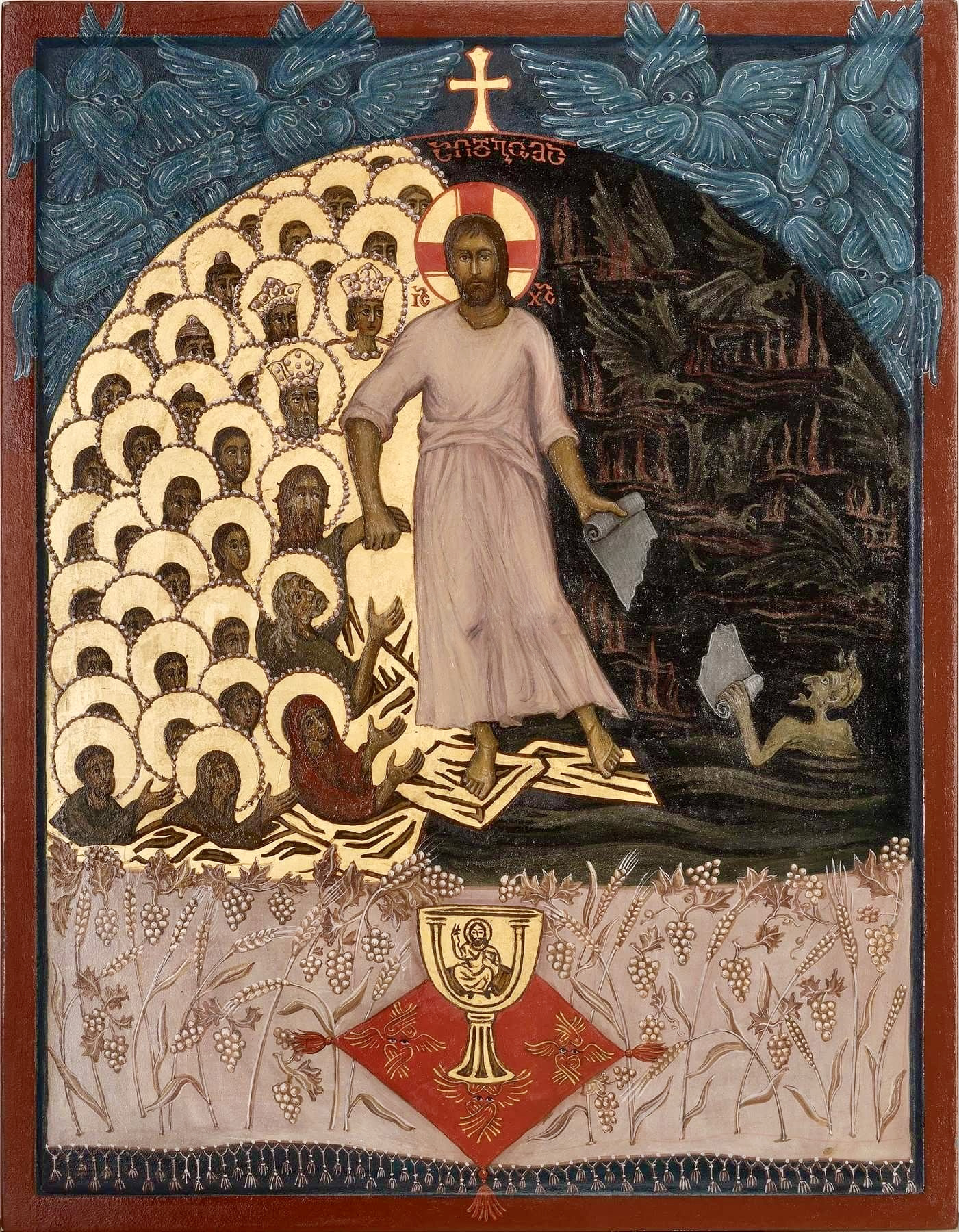
The Lord Jesus, Son of God, did not open Heaven's Gates with His death. He opened them with His Life. His death revealed His Divine Life to people who had eyes but could not see and ears but could not hear. Their brutishness could not eclipse His Divinity. Their hatred could not eclipse His love. Their lust for death could not erase His life. Their stony hearts were their stumbling block, not His. His death merely disclosed what had been true all along: His deathless Love and that Love's immeasurable, redemptive power.
And whose stony heart is harder than Satan's? This is the "keystone" that unlocks, or rather undoes, the devil's bargain: ransom, a word his ears could not hear and his faithless heart could not grasp.
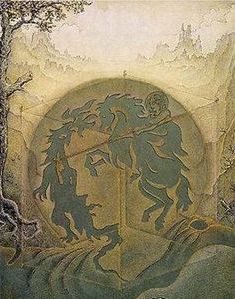
A depiction of three crosses upon a hill might be expected with today's posting. Instead we present an illusion: a human portrait but also a raging conflict against an inner dragon. For those who wonder at tears being shed on Good Friday or who are offended at the sight of disconsolate and mourning disciples in their midst, we call to mind a most powerful truth. The Crucifixion of our Lord Jesus Christ is not a distant memory. It is not a shadowy afternoon over and done with two thousand years ago. The murder of God is here and now and occurring every day. The hill where He is executed resides within each one of us. We are the beloved disciples or the betrayers. We are hearts overflowing with love for Him or the indifferent crowd paying Him no mind. We are true subjects kneeling before His Divine Royalty or the ones who ridicule the notion of an Almighty God. The hill where Christ is crucified is indelibly etched within each one of us. We are always the place where the Incarnate God appears and either is received or rejected. We are the turning point of history and the fateful place where the tide of battle turns. We, within ourselves, are always at the center of this all-important struggle. And the outcome of the ages of ages will depend on how courageously we battle the dragon. Each of us counts. Either we are for Him or against Him. There is no middle or neutral position (Rev 3:16). To say nothing is to speak, and to do nothing is to act (Bonhoffer). What will we say on Good Friday? What will we do?
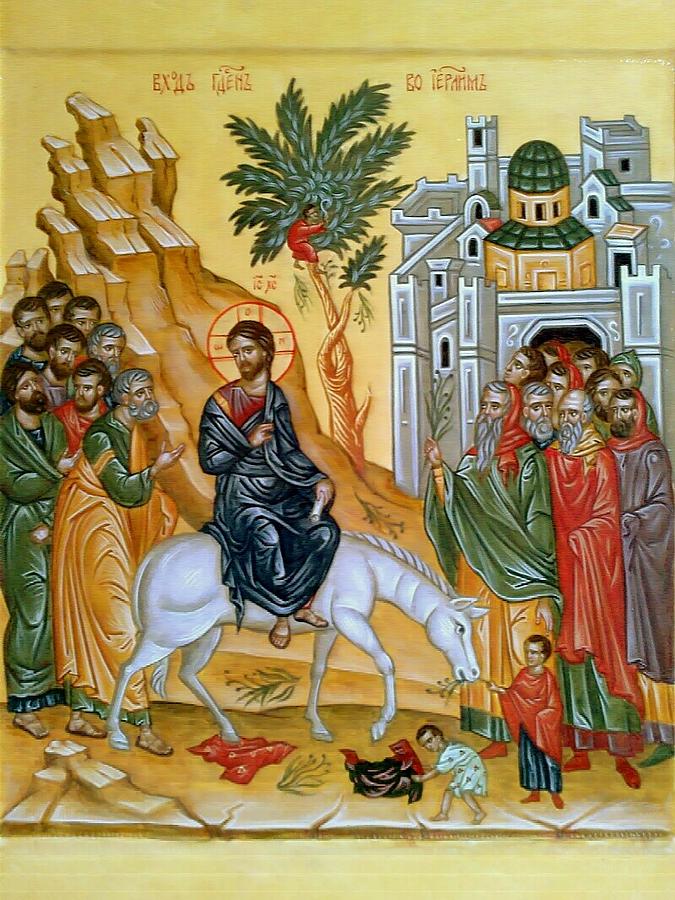
God has displayed His unbearable splendor and glory upon the highest summit mount. He has fed the multitude in the wilderness with the Bread of Heaven. He has raised the dead and healed the incurably lame and disfigured. He has tamed the winds and waves with the mere utterance of a word. But the people demand He dress in the petty baubles of a king.
So into the glittering and gaudy display of Roman power, King Jesus rides the beast that only God could ride: the little foal of the lowly donkey. Ride on in majesty, O King of realms beyond our reach. Ride on, ride on, O Lord and God, for we yearn for Your rule and mastery of the world! Ride on, O Sovereign Dread, for we are the sheep of Your hand and the lowly lambs of Your pastures. Ride on in majesty, Emperor of the Universe, for Yours alone is the Kingdom and the Power and the Glory unto the Ages of Ages. Amen.
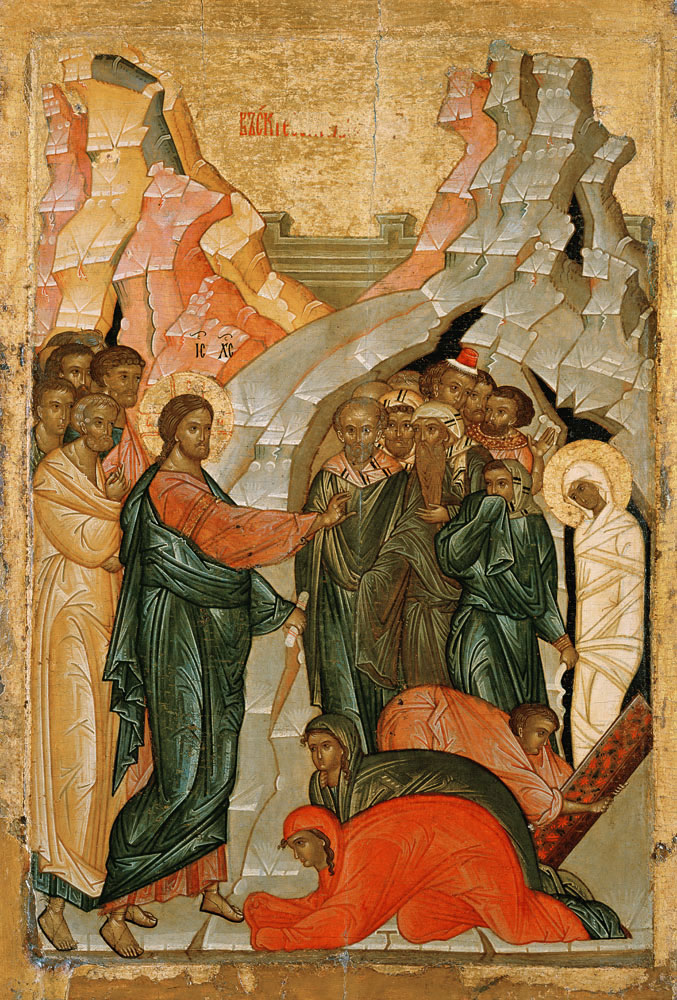
April 11, 2021 (Holy Calendar), Raising of Lazarus
|
Jesus wept. Then said the Jews, Behold how He loved him! ....
Jesus said, Take ye away the stone. Martha, the sister of him that was dead, saith unto Him, Lord, by this time he stinketh: for he hath been dead four days. (Jn 11:35,36,39) |
As He has done in revealing so many things, Jesus permits timing and setting to announce His royal proclamation:
|
"I AM the Bread of Life" (John 6:35, 41, 48, 51).
"I AM the Light of the World" (John 8:12). "I AM the True Vine" (Jn 15:1,5). "I AM the Resurrection and the Life" (John 11:25). |
We die into your Hands, O Lord of Life, for You are Worthy of all trust, Able to do all things, and Dependable in a world of ceaseless change, restlessness, and death. Above all, we love you.
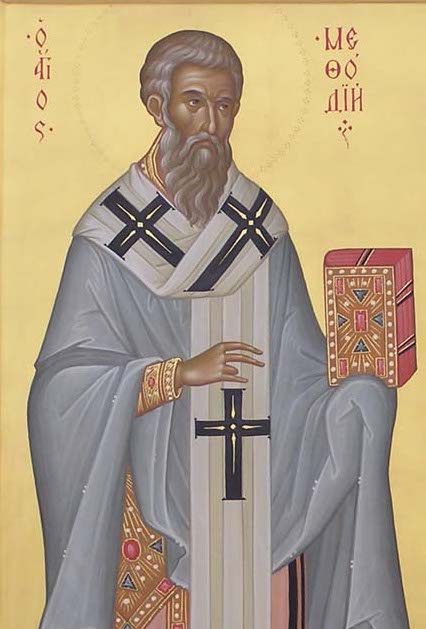
April 6, 2021 (Holy Calendar), St. Methodius, Equal to the Apostles
St. Methodius (815-885), with his brother St. Cyril, is venerated as Enlightener of the Slavs. In icons Cyril, a monastic, is seen holding a scroll of Cyrillic script named for him while Methodius, an archbishop, holds a service book representing his monumental landmark: worship in Old Church Slavonic (as we would say today). As Orthodox Christian communities of the West had done before the papal invasion of Britain (1066), Methodius fought a pitched battle to resist Rome's policy of forcing all liturgies everywhere to conform to its Latin missal and breviary. Through much suffering and many skirmishes fought against a succession of popes and secular leaders, he was able to establish Old Church Slavonic in all churches of Eastern Orthodox Slavic countries, which in turn (together with the Glagolitic / Cyrillic alphabet), paved the way for the spread of Christianity throughout the East. The brothers are known today as the Apostles to the Slavs.
![]()
As we are made in the Image of the God-man, we have been created to be time-bound & culture-bound, yet eternal, endowed with God's mind and ways. We gaze intently into the ancient world of the first-century Levant and into the early centuries of the Church realizing that we shall never understand them, not really. Yet with marvelous clarity do we apprehend moral truths and grasp spiritual mysteries vividly present then and now. What is this marvelous creature arising from God's creative art who lives both then and now, dwells both in Heaven and on earth?
|
What is man that You are mindful of him,
And the son of man that You visit him? For You have made him a little lower than the angels, And You have crowned him with glory and honor. |
The mind fails in its vain attempt to understand these truths which no one can deny. It falls to the soul, therefore, to commune with the holy ones of Antiquity, to claim with them the timeless and unbreakable bonds of family. Their story is our story. Their God is our God. And their Heavenly home is our birthright and destination. Pray for us, O Desert Mother Mary, for we are your spiritual children, and you are a mother of our salvation.
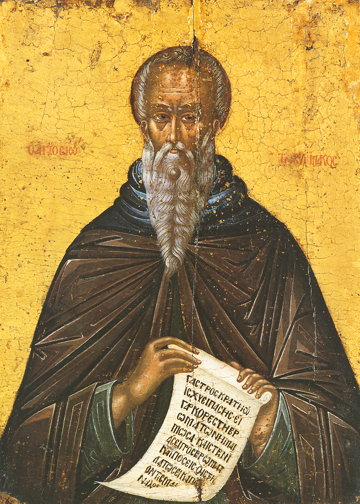
March 30, 2021 (Holy Calendar), St. John Climacus, Ladder of Ascent
On his feast day, hear the words of St. John of the Ladder. Wisdom! Attend!
|
1-4: Renunciation of the world & obedience
1. An ascetic 2. One detached from material things 3. Stranger in a strange land on pilgrimage 4. Devoted son under care of a spiritual father 5-7: Penitence 5. A slave (St. Paul) & prisoner in House of Death 6. A hermit awaiting departure from earthly life 7. A mourner in the night seeing joy in the morning 8-17: Defeat of vices and acquisition of virtue 8. One who is lowly and meek 9. One who regrets past wrongs 10. One who has slandered 11. One who has given tongue free reign 12. One who has lied 13. One despondent and egoistical 14. One who has given in to appetites 15. One who has polluted purity feeding on garbage 16. One who has loved material riches 17. One released from worldly things and connections 18-26: Avoidance of the traps of asceticism (laziness, pride, mental stagnation) 18. One awakened from listlessness and apathy 19. One who prays and sings with the congregation 20. One practicing physical and spiritual vigil 21. One overcoming childish fears & cowardice 22. One now seeing and rejecting vainglory 23. A master over filthy images & thoughts 24. One meek, simple, and sincere 25. One risen above the passions and nearing Heaven 26. One risen above earthbound life and struggle 27-29: Acquisition of hesychia (spiritual peace), prayer, and apatheia (dispassion) 27. One who is serene 28. One who is holy & well practiced in prayer 29. One resurrected, Godlike in dispassion & perfection 30. Union with the Most Holy Trinity |
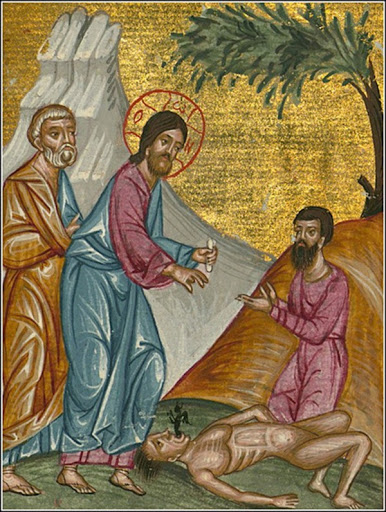
What does life without faith look like? Not so long ago, this would have been seen as an obscure question. For our entire lifeworld was soaked through with reverence for God, and worship was nearly universal. I know certain psalms by heart because we read them each morning before the Pledge of Allegiance at our public school. A town near to where I grew up placed chains across the streets entering from the main road on Sundays. Today, by contrast, "faithless generation" is not so hard to grasp, for it is faithlessness (and fear of morality) which drives nearly all public policy with news recently that the Biden administration wishes to restructure the Supreme Court because it fears godly decisions.
Today's Gospel lesson is a study in faithlessness. We are introduced to a world that patently disgusts Jesus .... for its faithlessness. Because it considers the nexus between disease and demon possession, it forces us to ask what claims the spiritual realm has on our lives. And what of materialism and science? What claims do they have on our reasonining and decision-making? The popular view would be to see science as opening things up for us, illuminating them. There is, of course, some truth to this, and we are grateful for medical breakthroughs, as one example. But we must also not lose sight of what science and materialism closes off. It insists on its own, narrow view of the world, which can be costly .... even at the price of our eternal lives.
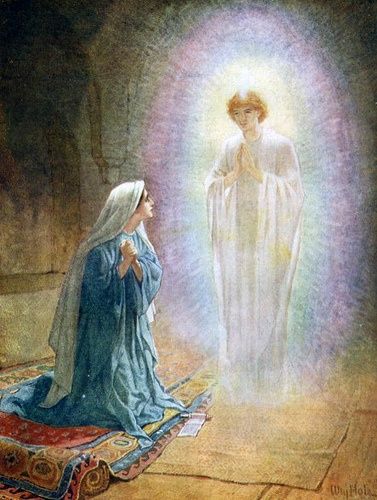
March 26, 2021 (Holy Calendar), Synaxis of the Archangel Gabriel
Angels are imposing figures. They inspire awe. Ask anyone who has encountered an angel. Or you may perceive this by reading the Holy Scriptures. Always, they are obliged first to say, "Be not afraid." We behold this vividly at the right hand of the Altar of Incense: Gabriel, a large and fearsome figure, striking dumb the arrogant and self-assured Zachariah. And we encounter a different scene in a quiet quarter of the Temple where the humble Virgin, Mary, sits spinning and weaving. Gabriel is no less imposing though a decorum is observed commensurate with his dignity. Here at Na Pua Li'i Hermitage, the Religious Community of Our Lady of the Angels, we long always for a visitation from this prince among angels. Meantime, we understand that angels who see the face of God (Mt 18:10) are always with us. These are the first heralds of the Kingdom of Heaven.
Towering theology is not for every mind and spirit. For many, many people the life in Christ is lived through thoughtfulness, mindfulness of others, generosity, having a heart for the poor, and encountering God in the smallest details and kindnesses. In their holiness and high dignity, the angels remind us of the many ways in which we have fallen short, calling us back to "the rag and bone shop of the heart" (Yeats), where Christ continues to encounter us with His blessing, yes, but also His flinty rebuke. We are reminded that spiritual warfare is mainly fought, not in great and glorious battles, but rather in how we respond to the small things, which are always the great things. And we ask each other from time to time, "How quiet must your heart be to hear the annunciation of an angel?"
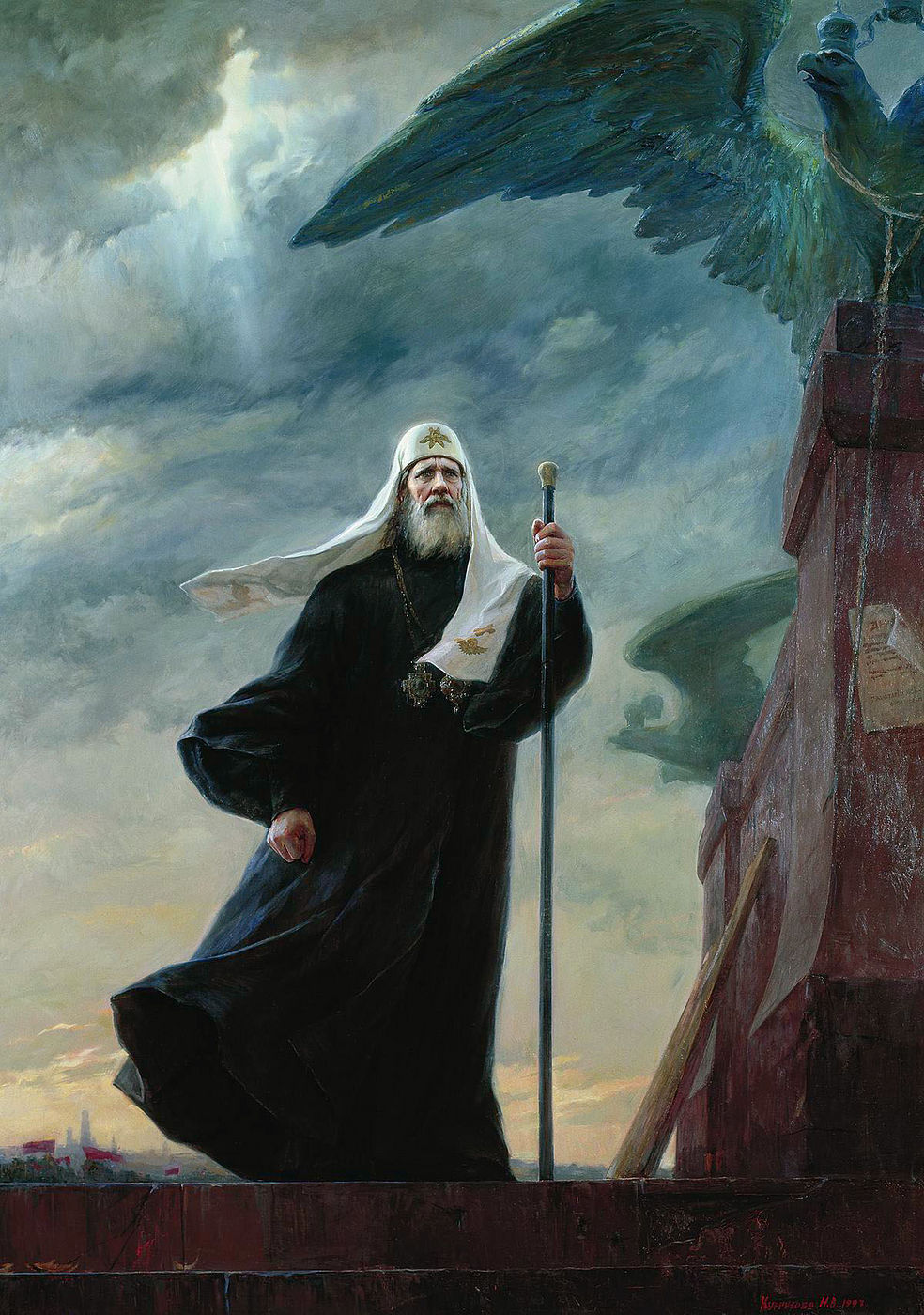
March 25, 2021 (Holy Calendar), New Hieromartyr Tikhon, Patriarch of Moscow and All Russia
As the winds of many storms gathered strength, and the light of reason failed, with Christ-haters flooding in with their destructive wrath, one courageous man stood fast and sent his beloved Church out in to a wilderness taking with it a kind of ark of covenant: the Mysteries and Hierarchs of the Holy Catholic and Apostolic Church. Issuing the now legendary Ukase No. 362, November 7, 1920 (Holy Calendar), Patriarch Tikhon granted the Russian Orthodox Church authority to go on despite the carnage of revolution and civil war in its ancestral lands. It would be this "Russian Church Abroad / ROCOR" that would become the true Russian Church reunited to the Moscow Patriarchate on May 4, 2007 (Holy Calendar). The Bolsheviks would kill roughly 100,000 Orthodox priests and destroy monasteries, churches, and icons in their benighted fury.
The Russian Orthodox Church knows what it is to face a hostile culture. It knows what is acceptable to the Christian mind and soul and what is not. And she will never bow down to placate the enemies of Christ. When humanity makes its last stand, we at the Hermitage are confident of one Church that will stand fast, come what may. Her history has prepared her for such a time as this.
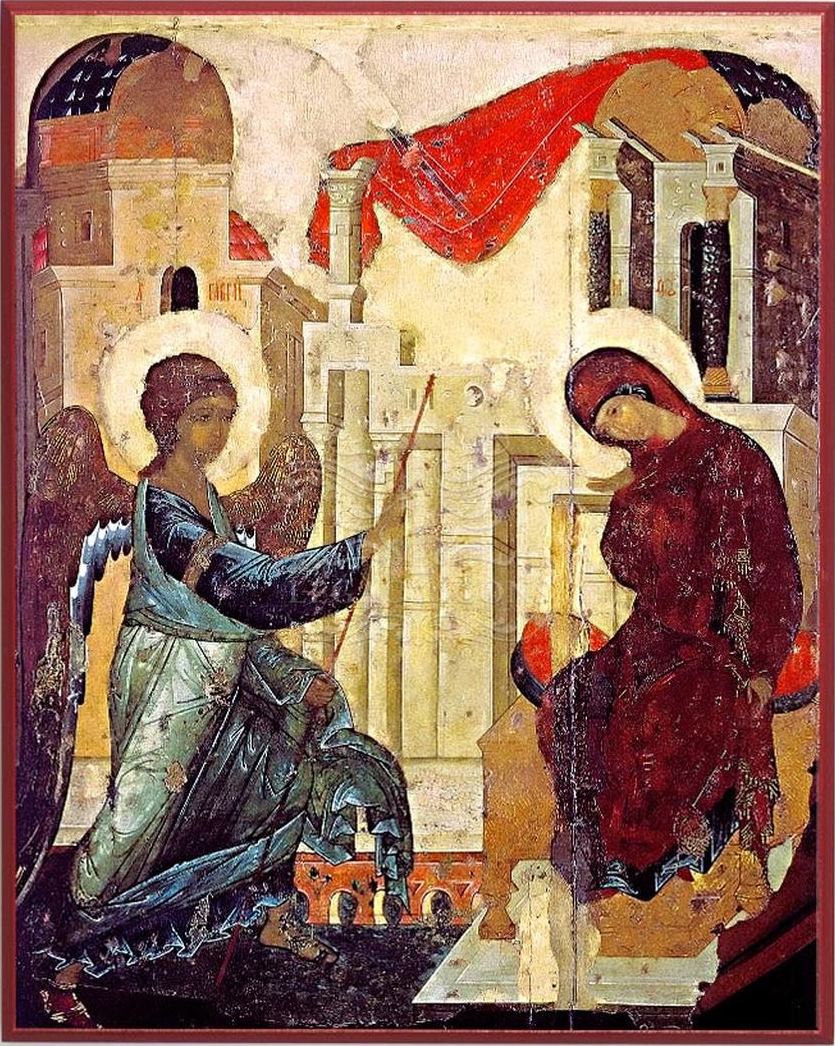
We enter a great mystery hearing the word spoken by an angel. For we stand near to the sublime: God's self-imposed incapacity to control the world, which He has pledged "to the children of men" (Ps 115:16), in tension with His love for the world and desire for its wholeness. He is the Creator, outside of His art; we are the creatures within it. We are characters in God's beloved masterwork, yet we live and move and have our being. Indeed, He calls us to be His sons and daughters. This real life and meaningful motion can be done only by adding that most potent and dangerous element to our nature: freedom, intermixed with His Divine Nature. In this we go to the deepest places of the Creation, into its nerves, sinews, joints, and soul. God calls us, but we must respond. This is the heart and soul of the human lifeworld He created: our response. Yet can freedom hear a word spoken by an angel. Let us today offer prayers of thanksgiving for the twelve-year-old ears who heard this word and for the faithfulness and resolve to become God's daughter and a woman after His own heart. As she is our Mother, she expects each of us to do no less.
![]()
Each Lent we begin our journey to the door of a tomb. Yes, it is His tomb, but also it is our own tomb, whose only meaning is the Cross: His Cross, which redeems us, but also our own cross, where we must face the intersection of exacting justice and fitting mercy.
The Son of God hung on the Great Compass of the world. Upon it we see the four cardinal points (in Greek): "A" "D" "A" "M". For the Cross guides the universal journey of mankind towards the only destination that can be called Life. Here is the New Adam, Who has ransomed the Old. Here is our Savior, arms outstretched, embracing all the world, every soul who has died and every soul yet to be born. On either side of Him are our crosses. On His right is the "cross fulfilled," embraced by the thief who has deemed it fitting and just, whose contrite heart is broken before God, adoring Him. On His left is the "cross denied," despised by the thief whose moment of accusation and judgment has yielded only bitter resentment and insolence. Which one is ours? The lowly path or the haughty one? Either way, we practice our cross every day. And the one we choose will be the door to our destination in the end.
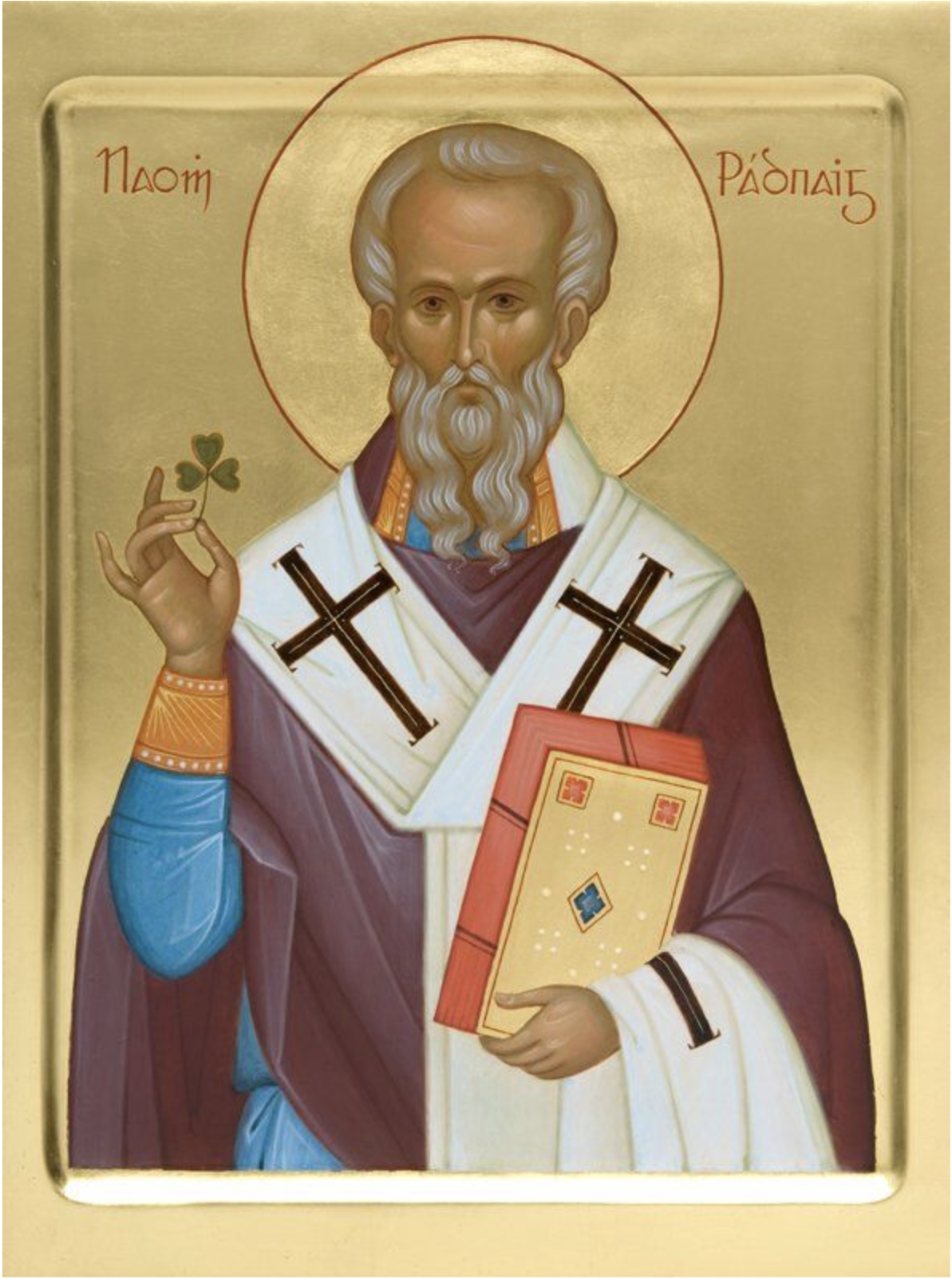
March 17, 2021 (Holy Calendar), St. Patrick of Ireland
Patrick of Ireland, March 17 (Holy Calendar). His name was Maewyn, the son of a wealthy family of Roman Britain, Patricians of the Third Class. A contemporary of St. Augustine, Maewyn's Christianity was well established in the Roman Empire. Though he was the grandson of a priest of the Roman Patriarchate and the son of a deacon, his family "had gone away from God and did not keep his commandments. We would not listen to our priests, who advised us about how we could be saved… My sins then prevented me from really taking in what I read" (Confession of St. Patrick). But his life of ease and privilege vanished in an afternoon as raiders from benighted Ireland ransacked his father's villa and took Maewyn as part of the booty — a slave whom the brigands named "Patricius" (Patrician), meaning, "Who has your father's wealth and the upper-hand now?" That he would retain the name "Patric" for the rest of his life tells us that this "calamity" was a breakthrough for him. The bad vapors of worldly life had lifted, and he saw the world clearly for the first time. God would use this awakened soul mightily, aiding him with supernatural assistance when he needed it. And Patric waded willingly into the same darkness that had destroyed his family's prosperity. Centuries earlier the first Christians had migrated to Ireland's west coast boldly entering this rocky and forbidding island. Roman Christianity coming to Ireland across the Irish Sea and Eastern Christianity migrating from the shores of the Black Sea through the Straits of Gibraltar into western Ireland and thence to Scotland — this would be Ireland's destiny: the light of Christ brandished by bold spirits whom God loved and trusted and prospered with the only wealth worthy of the name. We who live in the present darkness that has "gone away from God" should see our own image in Patric's boldness. No matter how marginalized we might feel, we are always at the center of life, always have the upper-hand, so long as we live and labor under the Hand of God. Pray for us, St. Patrick, for we long to be light-bearers of the light you continue to bear!
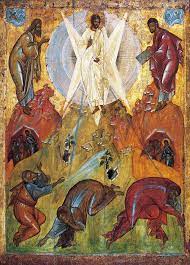
We must love God with all our heart and soul and mind and strength. How does one fulfill this greatest of commands? We do it by turning off our minds, turning off our animal desires, and by permitting our souls the free and open spaces where the Spirit is heard in purity and silence. We celebrate the triumph of this freedom over the mind's tyranny. Anyone who has fallen into true love knows this pure and free space. And it is manifested in its fullness through our pure and transcendent love for God, Who is Love. But what are the words of love fitting for God? They are simply this: "Lord Jesus Christ, Son of God, have mercy on me." Today we commemorate the victory of this prayer over the vast and intricate machines of Scholasticism, which threatened to overpower Orthodoxy during the thirteenth and fourteenth centuries. And we celebrate the victor, St. Gregory Palamas, who so ably turned back the assault.
![]()
This year let us celebrate the Triumph of Orthodoxy in the broadest sense. The Scriptures have been protected and preserved for us. Theology has been guarded and vouchsafed for future generations. Our spiritual life and worship spaces have been secured. The Gate of Heaven has been rightly reverenced and worshiped and opened, therefore, to us. All of this, the most precious of treasures, has been defended and carried safely through fierce storms, through the streets of burning cities, through war-torn landscapes and prison-camps, and, most impressively, through a materialist culture of arrogance and skepticism and the outsized egos of powerful men .... and the great herd of powerless men fearing ridicule. Let us give thanks for Orthodoxy and for the holy men and women who proceeded us — in many, many cases giving their lives for the purity and fidelity of our Christian faith.
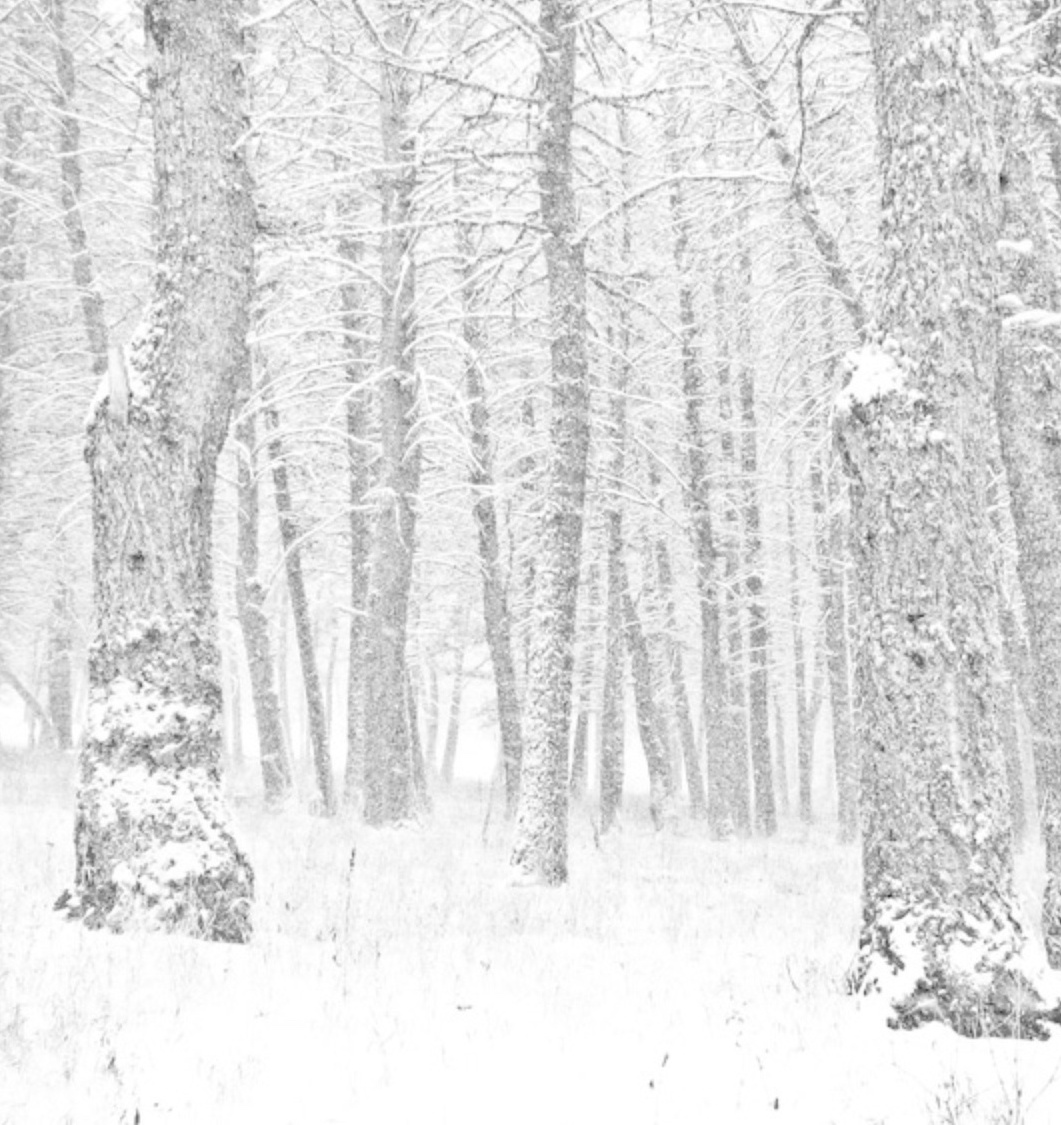
Clean Monday has something of Spring Cleaning in it. Let us throw open the windows and banish every bad vapor! Let us look into the darkest corners where mold has taken root and cleanse it! Let us thrown the debris out of our lives that does us no credit! Let us look forward to new life and to Spring! And this especially, the celebration of Life (and not of death), has been among the greatest riches of Orthodoxy for us, refugees from the Western Church. Yet, as we begin Lent, we are wont to cover ourselves in sackcloth and ashes. Like the men of old, we are wont to pick up the skeletal head and look it in the face and confront ourselves: "Ashes thou art, O man, and to ashes thou shalt return." Please join the Hermitage at the beginning of our journey to a tomb and reflect on a world covered in ashes.
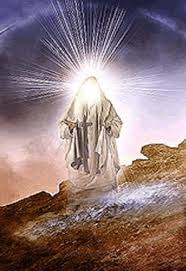
Forgiveness. It does not live in the past where the mind replays painful scenes and is affronted once more. It does not live in the future, for intentions to forgive have no effect. Like trust and love and faith, forgiveness is an "always now" thing. It is a participation in God's unfolding drama, where "open" wins out over "closed," where "free" wins out over "controlled," where "life" is victor over "death." Beginning with a voice crying in the wilderness, our faith is a bold declaration to be done with the past and to be liberated from our past mistakes. Let us declare a general amnesty and live now, where God is waiting for us.
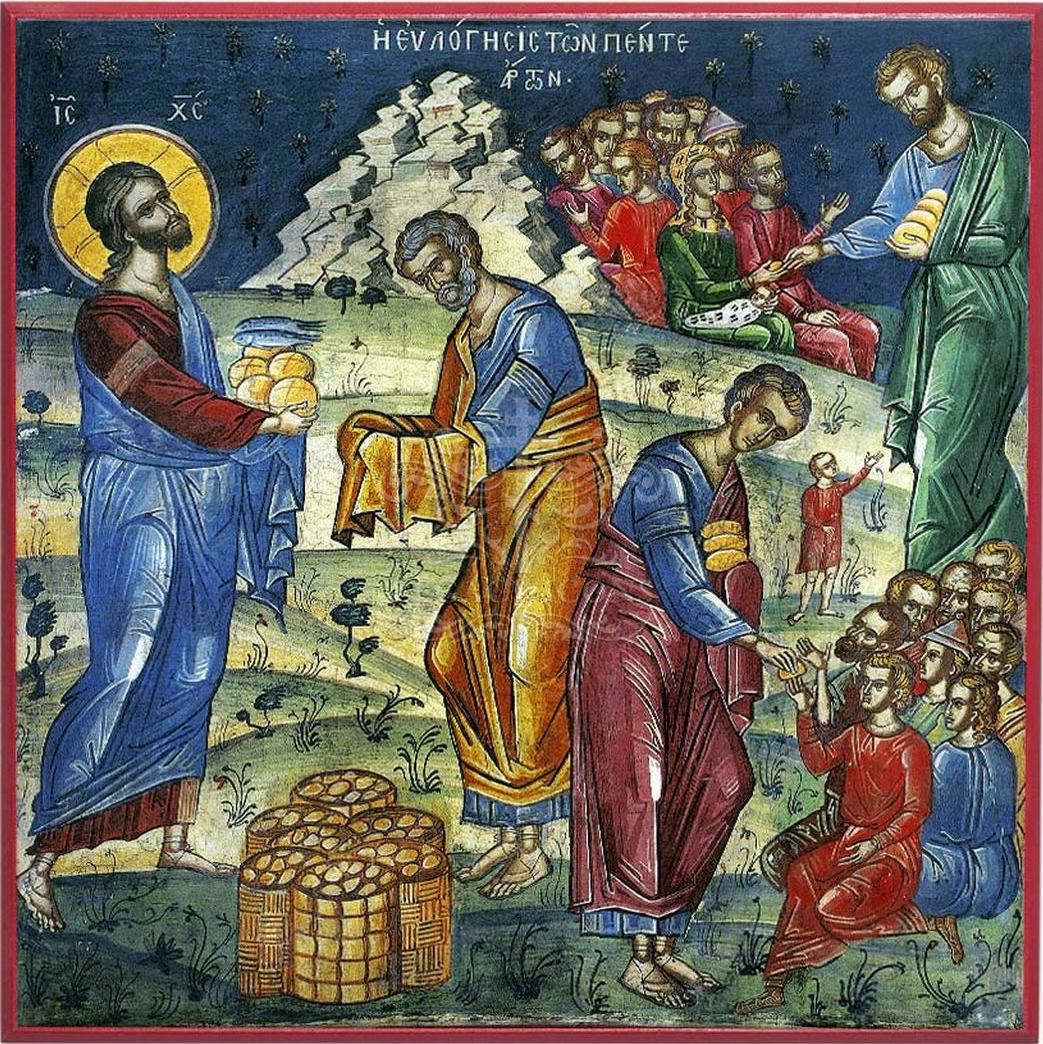
"Last Judgment" is a dangerous phrase, for many hear it to mean something that happens later, much later. But it is last in the sense of what our lives mean ultimately or "at last" — not so a when phrase as a what phrase. The Gospels, the Pauline Correspondence, the Catholic letters all teach that the Last Judgment is to be expected at any and every moment. It is happening now and always. And this is right, for it has to do with the state of our souls. It is closely linked to our deaths, from which we step into God's eternity. And in eternity, all Judgments have already occurred, for God sees all points of human time at once. Let us hear today's Gospel lesson, the famous Matthew 25, as instructions concerning the state of our souls. Who is our neighbor? What is expected of us? We must listen carefully, for His instructions are very precise, and many have got them wrong to their great hazard. Come, let us attend, for the Master speaks. And He speaks of the Last Things.
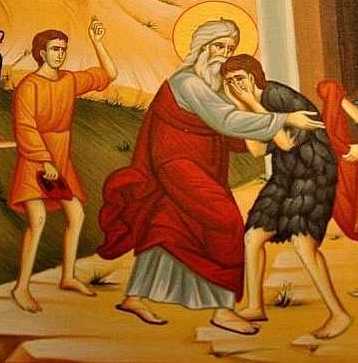
This morning we complete our meditations on riches and salvation set out for us by the Church. It is fitting that we conclude with the Parable of the Prodigal Son, for no parable is so complete, reaching to the furthest extremes of human experience. We face the great crossroads of worldly riches on the left or the Kingdom of Heaven on the right. Each way has its uttermost destination and final end. In this morning's parable a man traverses both, and the Master leaves us on a razor's edge. It may very well be the case that we make our bed in Hell, yet He is there, even there, in His great mercy (Ps 139:8). Still, at the last we could hear His flinty words, spoken so often in the Gospels, "You have had your reward."
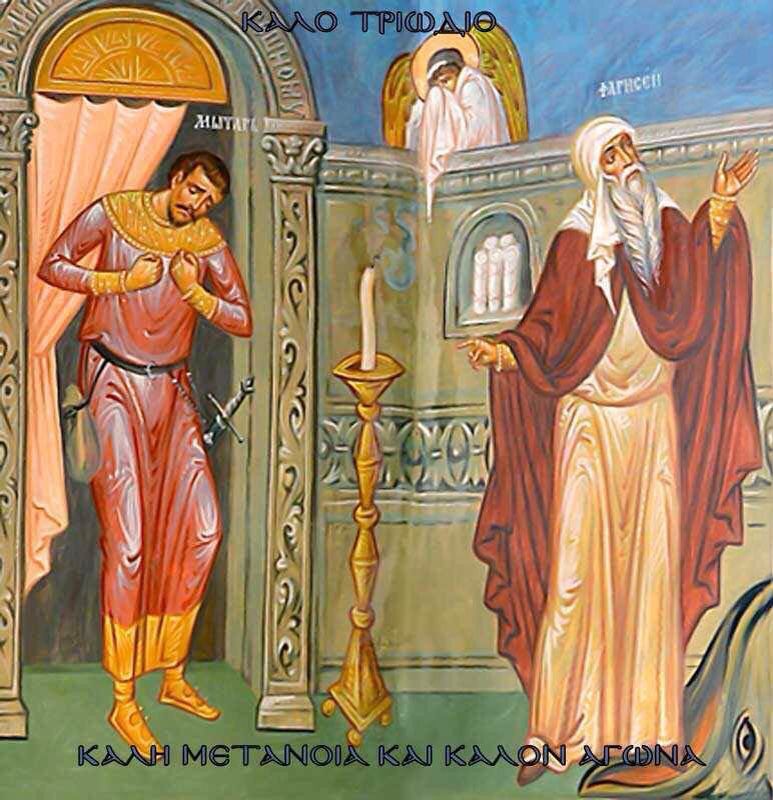
Gaining a clear picture of first-century Jerusalem has been arduous requiring many labors and centuries of slow progress. Evidences are few with each new discovery apt to overturn what we think we know. Who is the Publican? Where does he stand, say, beside Sadducees or Roman Tribunes? Today's Gospel lesson addresses a theme that St. Luke saw as being primary: the salvation of the rich & influential. What does Jesus mean when He says it is easier for a camel to walk through the eye of a needle than for a rich man to be saved? Giving to charity in and of itself will not matter. Going to Church in itself will not help. How many have faced this question in fear and trembling from the time the Disciples asked it: "Who then can be saved?"
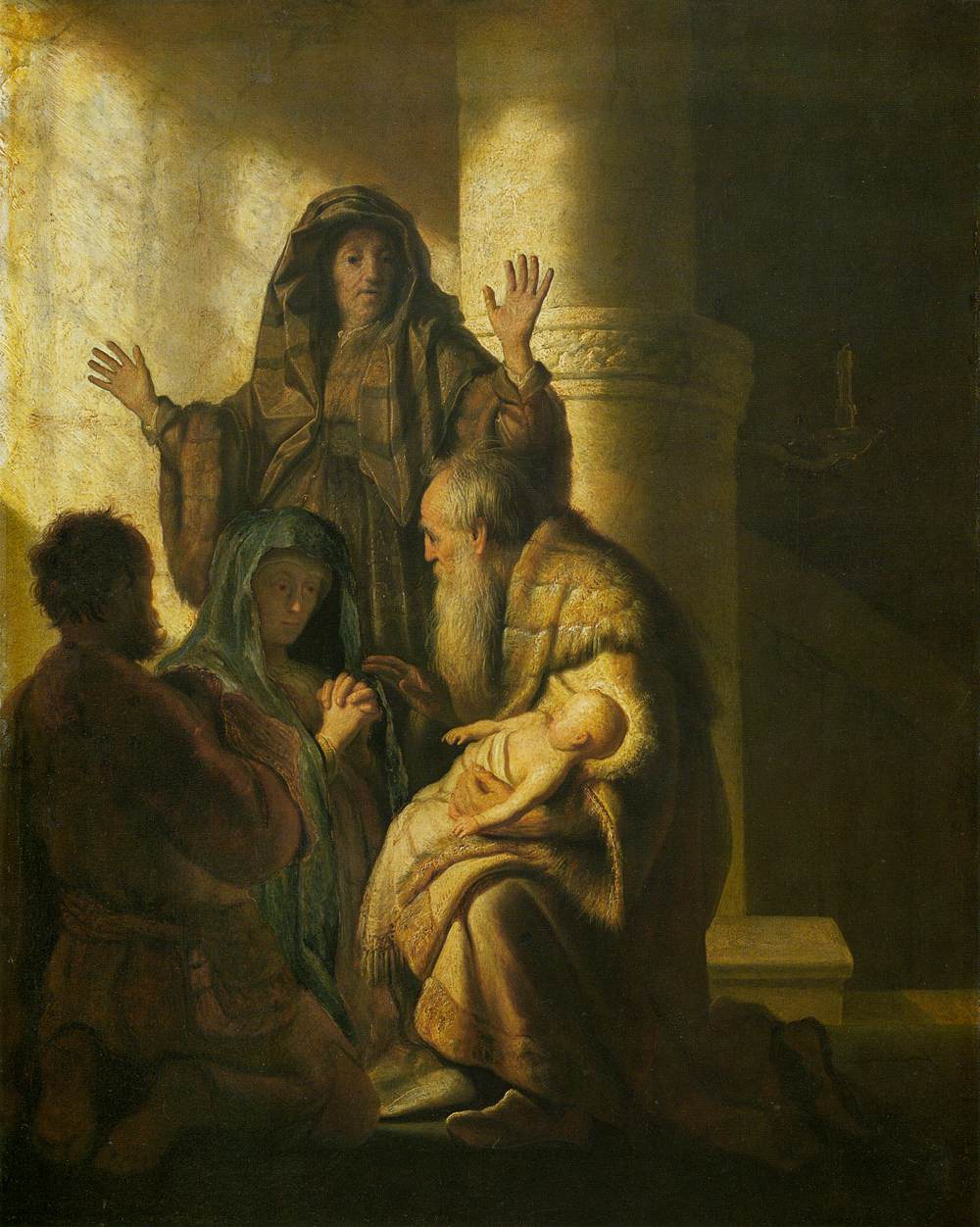
February 3, 2021 (Holy Calendar), Ss. Simeon & Anna, God-seers
Descend into silence for weeks or months, and you will become exquisitely sensitive to chattering smalltalk or to the blare of television. Spend years among holy people, and filthy language, off-color jokes, and self-promotion will assault your soul. Imagine, then, the goodness of Jesus the God-man — perfectly holy and devoid of personal sin — and you will appreciate His suffering in a world of jostling egoism, deceit, and depravity. He sent before Him heralds of goodness — men and women who sought holiness and attained it. In their clarified vision they were able to see Him. St. John the Forerunner saw Him in the fulness of adulthood. And Ss. Simeon & Anna saw Him in His luminous nascence — the purest among humans in His newborn purity. Let us offer some small period of reverent silence and contemplation today in venerating goodness in the persons of these Elders and Prophets.
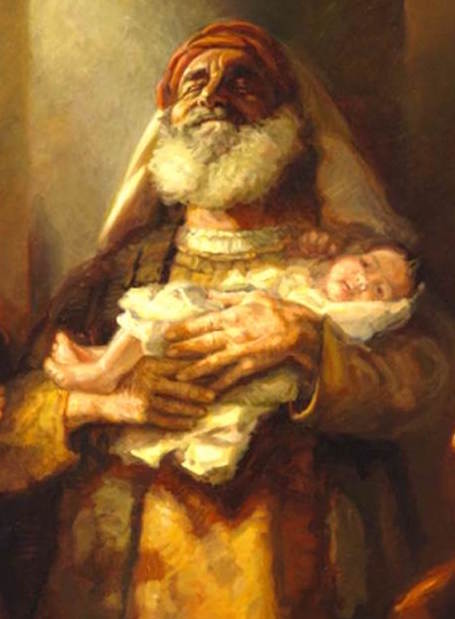
When God's Son, not two months old, is placed in the arms of St. Simeon, what the God-inspired prophet sees with unerring clarity is that the abyss separating Heaven from Earth has become closed. God's distant and holy mountain is made low in an act of breathtaking humility. And the low places have been exalted. God is born among us, and the Truth has now entered the world .... and the Way and the Life. And this, St. Simeon declares, "Is a Sign of Contradiction," which the world will resist. The world cannot bear to hear the Truth, is apt to riot and burn and loot at the sound of it. And Heaven rebelled — with legions of angels falling to earth. The world rebelled — murdering the Heir and Prince. Hell redoubled the bars and chains on its doors. He is the Sign Spoken Against. And now is the time of our lives, for we have been chosen to stand with Him.
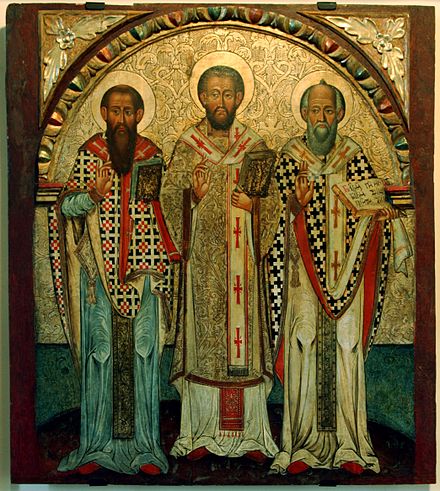
January 30, 2021 (Holy Calendar), The Three Great Hierarchs
Today's feast — commemorating St. Basil the Great, St. John Chrysostom, and St. Gregory the Theologian — is the feast that brokered a peace. During the schismatic eleventh century (which saw the Roman Church break off from the Mother Church to establish its own Communion) debates burned out of control concerning "Who is greatest?" — a patently un-Christian question, as the Master clearly taught (Lu 22:24-26). To settle these disputes, a feast was established on January 30 venerating three of the greatest hierarchs, saying, in effect, "You're all #1." We live at a time when Christians are hated by the world around them, by and large. They look to their brethren as refugees seeking a home or a friend but are not received .... even within the same Church. "He came unto His own, but His own received Him not" (Jn 1:11). When will hatreds cease? When? When, as the Elders teach, the heart becomes humble enough to cry out in sobbing gratitude for the undeserved love of God and of neighbor. "Love one another! By this you will be known as my disciples."
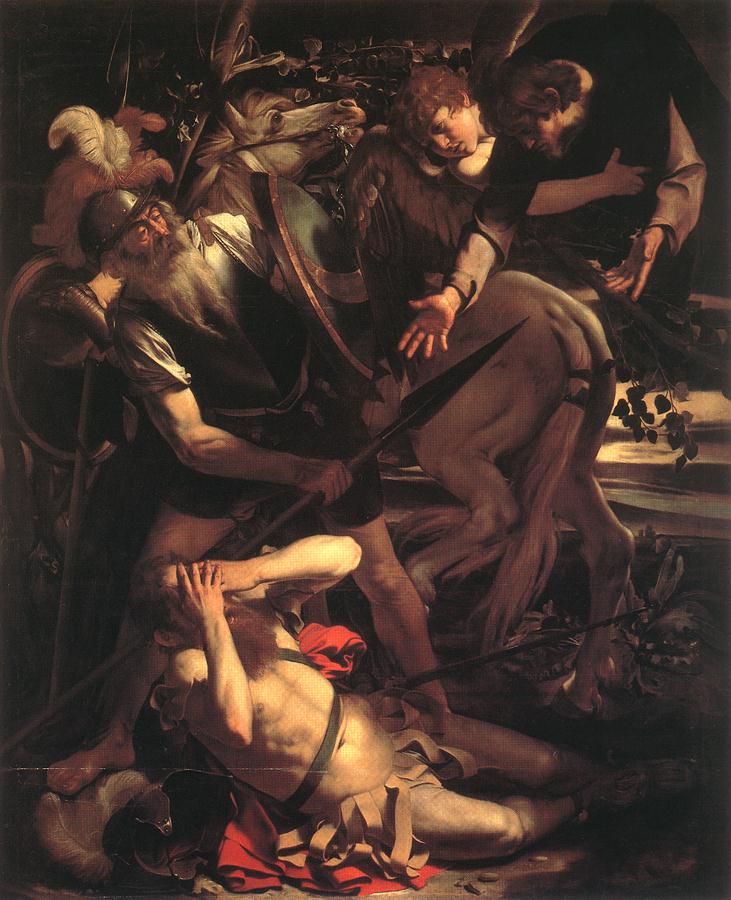
These "comfortable words" we have known so well and have heard so often:
|
This is a true saying and worthy for all men to be received:
That Christ Jesus came into the world to save sinners. |
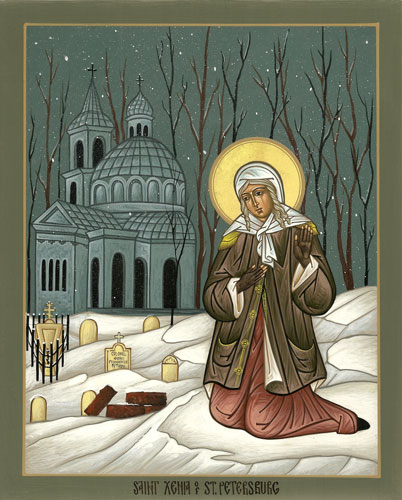
January 24, 2021 (Holy Calendar), St. Xenia of St. Petersburg (Born c.1719-30 A.D.)
St. Xenia of St. Petersburg (January 24, Holy Calendar). Her life shines out to us across the ages as "Faithfulness." At the death of her husband, Colonel Andrey Fyodorovich Petrov, she saw that nothing mattered in this world except faithfulness. So, following the Lord's injunction (Mk 10:21), she gave all she had to the poor and put on her husband's uniform — the badge of sacrifice, loyalty, and honor — living as Christ's fool in the streets of St. Petersburg for 45 years. Hers was a living monument to the greatest Dominical teaching: "For greater love hath no one than this, than to lay down one's life for one's friends" (Jn 15:13). Pray for us, St. Xenia, for surely we must be faint of heart — looking upon your life and comparing our own.
![]()
Our faith is about family. God is our only true and abiding Father. The First-born, our Brother, is Jesus — the Heir, the Prince, united in nature to the Father. We may believe we are already familiar with these things, for what is more common, more near to us throughout our lives, than family? But this is a most royal family, far above and beyond what anyone on Earth has ever known. Perhaps it is this familiar aspect, nonetheless, that has emboldened people to imagine a vain thing (Ps 2:1) hobbling the faith worldwide. People imagined that Jesus is not much more than a Brother — a man and no God. But do we not always diminish ourselves when we seek to make God too familiar? Young Christians today are taught that Jesus is their pal, their buddy, the one who "has their back" .... and then go on to live lesser lives that friends might tolerate, but God would never accept. "Do you imagine that I am just like you?" (Ps 50:21), God asks. No. Our lives depend upon the opposite principle: We are to become just like Him.
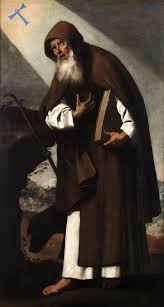
If the great rock of the Gospels is the crystalline truth that Jesus of Nazareth
is the Son of the Living God (Mt 16:16-18),
then the great rock of our faith is St. Anthony the Great
(St. Anthony of the Desert).
For in a chaotic world, always dominated by elemental spirits (Gal 4:3),
St. Anthony's connection to the crystalline truth was absolute, seamless, and unshakable.
He was, in effect, a living instance of God's reality in a broken world.
It was to St. Anthony where the Patriarch of Alexandria, St. Athanasius, sought refuge
when the world threw over God's truth in favor of the culture icon, Arius.
It would be Athanasius' biography of St. Anthony that stands as the first great
Life of a Christian
—
an instant classic of its time.
This simple, holy man did not seek the society of men and women but rather sought to live under Heaven's light as a solitary in the Egyptian desert. Other holy seekers sought him out, and he would not send them away, permitting a loosely knit cluster of hermitages to be built near his own. In this he is venerated today as the Father of Monasticism.
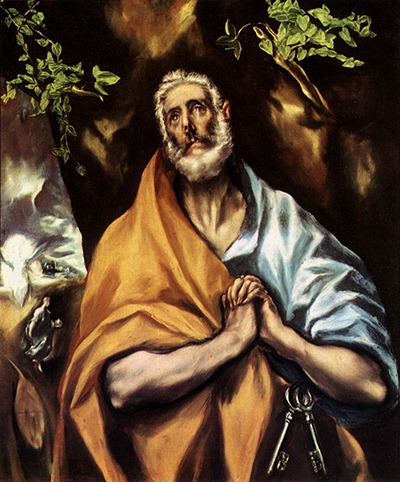
The Church has led us on a directed retreat — from our long season of expectation, to the Nativity itself, and thence to the Circumcision, Theophany/Baptism, to the calling of the Twelve, and on to the inauguration of the Lord's three-year ministry. The "Christmas effect" is to have always two views: the focus of our ordinary existence as it had been and a focus illuminated by the purest and brightest light imaginable. It is a blinding light in some ways. That is the immediate experience of it. Yet, it is soft and elevating, something like the atmosphere that our guardian angels know and with which they are familiars. Please join us in contemplating these faculties given us by God at Christmas. We will never again see things as we once did.
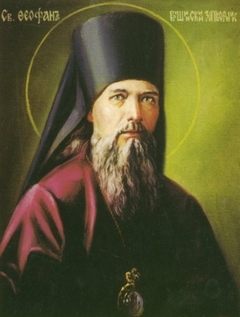
The only Orthodox text offered in my "Christian Mysticism"
course at Yale was The Spiritual Life and How to Be Attuned to It of St. Theophan the Recluse
—
a testimony to the importance accorded this nineteenth-century Russian Orthodox saint in the West.
His classic text was written after meeting a young woman at a ball in Moscow
and
listening to her incoherent thoughts concerning the grave and rigorous subject of God.
Browsing an article in Britain's The Guardian
(the self-styled "world's leading liberal voice"),
"'I Know Only One God, and That's Me,'"
I saw this phenomenon first hand:
the casual, unexamined way
in which people reject the most important of all subjects,
to which they have accorded only the slightest and unrigorous attention.
52% of all Britons proclaim no faith at all.
Astonishing!
Let us honor St. Theophan the Recluse, canonized in 1988,
with special devotion.
For he is a saint for our times.
May his keen spiritual insight and powerful mind
avert a group we may now call the majority (at least in Britain) from disaster.
Pray for us and move us, St. Theophan, for you see our situation clearly!
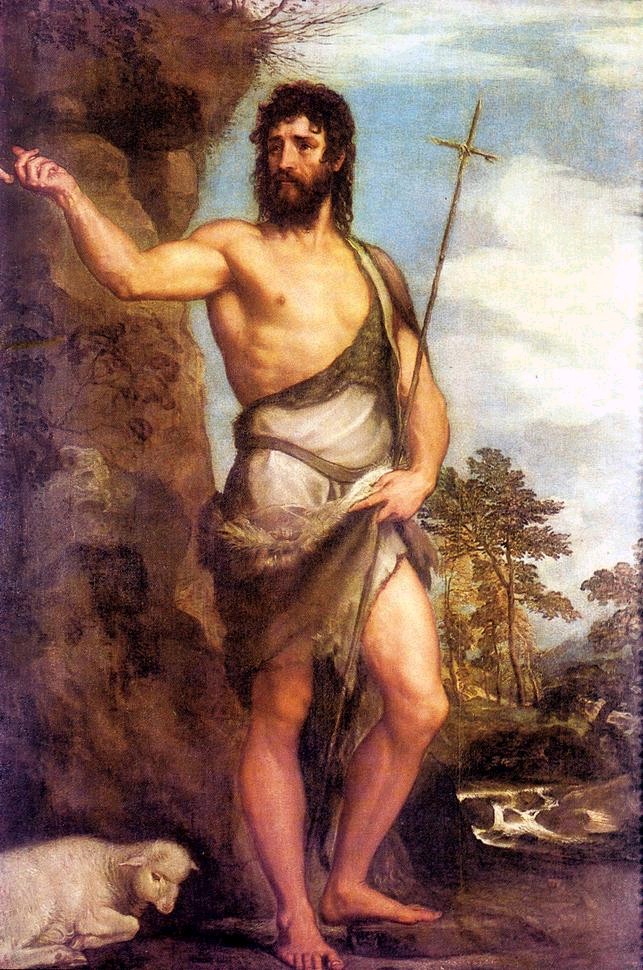
If God were to send a Forerunner, a human messenger, to announce a return to goodness and to union with Him, what would he look like? What appearance must he have, what tone must he sound in order to ring true? He would be a man from Eden. And he was. Just being near to him one could detect a faint fragrance, a strangely familiar scent, stored in the deepest recesses of our racial memory. It was a goodly scent pouring balm upon the spirit and enlivening the cells within. It was the sweet air of Eden, the fragrance of the morning of the Earth.
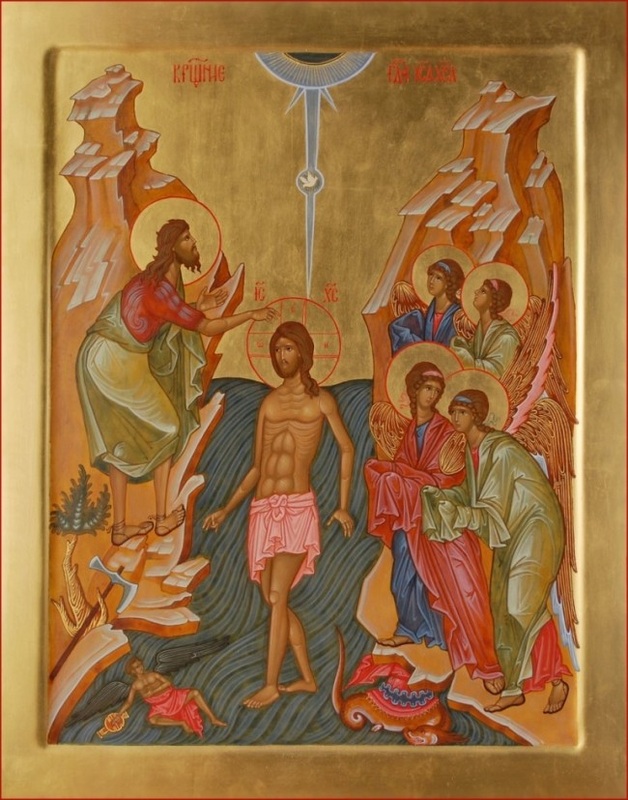
We rejoice, for He has hovered like a mysterious Dove over the dark and choatic waters preparing a place for us!
We rejoice, for when we had betrayed Him, He cleansed the world with many waters restoring us to Himself!
We rejoice, for the Dove that returned to Noah bearing a sprig of the New Creation now descends upon the Eternal Word bearing a sprig of the Kingdom of Heaven .... that we might say, He is with us, and we are with Him. For this is His good and constant will: to prepare a place, to prepare us, and to be with us, yea, until the end of the age.
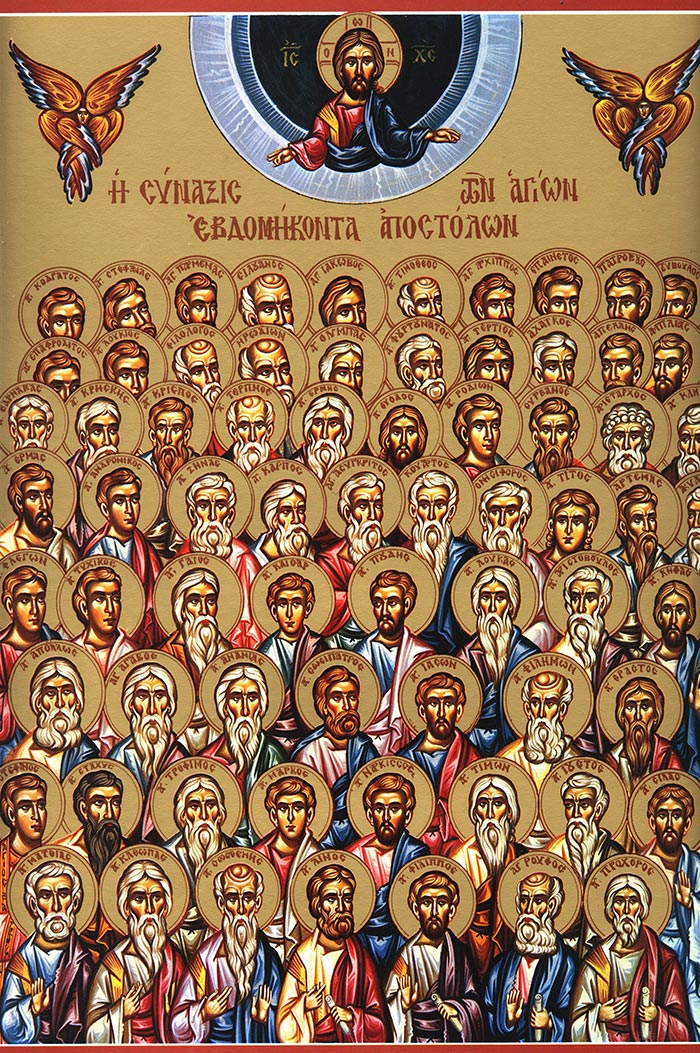
We humans are a restless race, restless in our minds and souls. We meet the one soul mate, sent by God, yet will not risk marriage. We are presented with holy vocation, yet refuse it. Is this not the picture of an unraveling, self-destructive world? And why? Because the "game of life" is played to keep options open. Our consumerist society teaches us to wait for a better offer. But this is a death game, for it teaches us to say "No" to life whenever is should appear in all its shining promise and perfection.
I wonder how often we have said "No" to the Lord of Life, to the source of all love and of all life. His call is always now. It is never later. It is never negotiated. And higher stakes have never been possible.

January 1, 2021 (Holy Calendar), Feast of the Circumcision the Holy Name / Feast of St. Basil
By ancient Hebrew tradition, the circumcision is the moment a male becomes "visible" to God: he receives a soul; he is named; he declares unity with God by valorizing his spiritual nature over his bodily nature, deprecating sexual pleasure. This last part is expressed by St. Paul:
|
In Him you were also circumcised with the circumcision made without hands,
by putting off the body of the sins of the flesh, by the circumcision of Christ, buried with Him in baptism, in which you also were raised with Him through faith in the working of God, who raised Him from the dead. (Col 2:11-12) |
Thus circumcision is seen as an initiation rite anticipating Baptism, our great high feast coming in five days. Today's feast also celebrates the Holy Name of Jesus and is a dual feast as the saint day of St. Basil the Great.
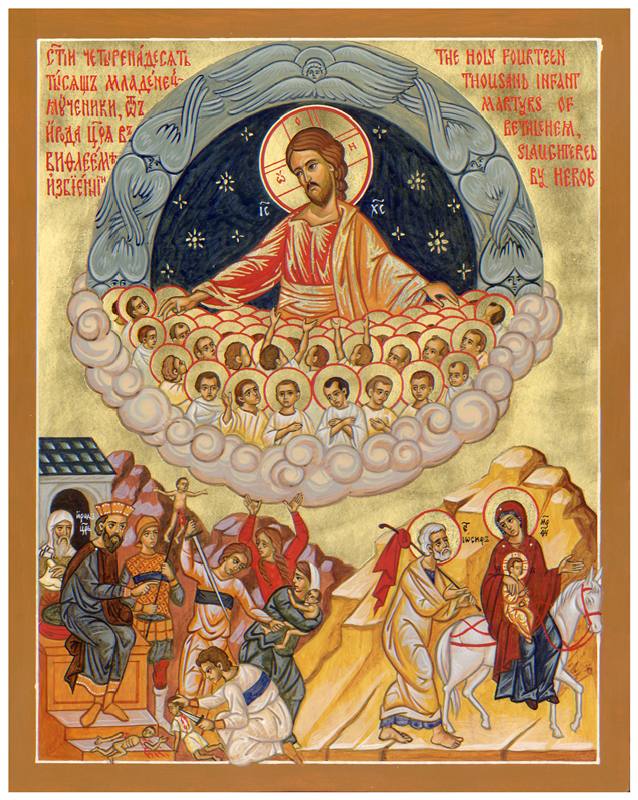
Feast of the Holy Innocents and Feast of St. Stephen (Lu 16:10-15,Acts 6:8-15; 7:1-5, 47-60, Mt 2:13-23). Among the deepest lessons I have learned in my long vocation through three communions and many dioceses is that holiness is dangerous. Little else can infuriate, enrage, make the blood boil more surely than holiness — pure, innocent, blameless, gentle, holiness. Our Sacred Scriptures teach this deep truth .... indeed, enshrine it as the Holy One is murdered and displayed on a hill outside Jerusalem. And what is the lesson? Surely it is not animal sacrifice (as the Pharisees believed), an objective offering to expiate sin. It is the "old religion" — of mystery, of personal transformation, of union with God, of Holiness. Please join the Hermitage as we enter these mysteries.
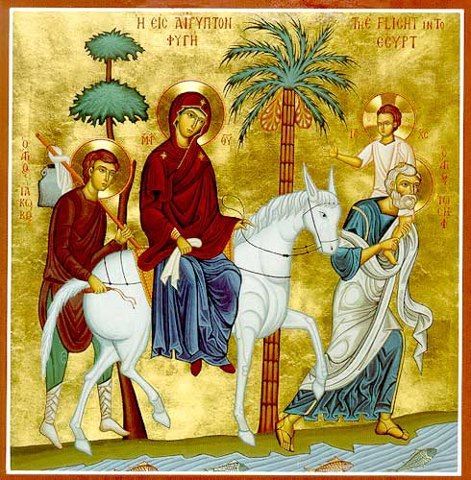
Do you trust God? Do you strive to understand Him and His ways in every situation of life? Do you make your major life decisions in accord with His will? Do you comport yourself in a way that will be pleasing to Him? Do you take peace, even in the face of a terminal diagnosis or the loss of material security, that all will be well in the end? Do you give thanks as age overtakes you knowing that the Kingdom cannot be far from here?
When the dove alights, do you receive it with thanksgiving though knowing that your little world will all be washed away? God's purposes for us require an open field, a clean slate, a new life. Can we say, "Yes," to the gifts that He brings?
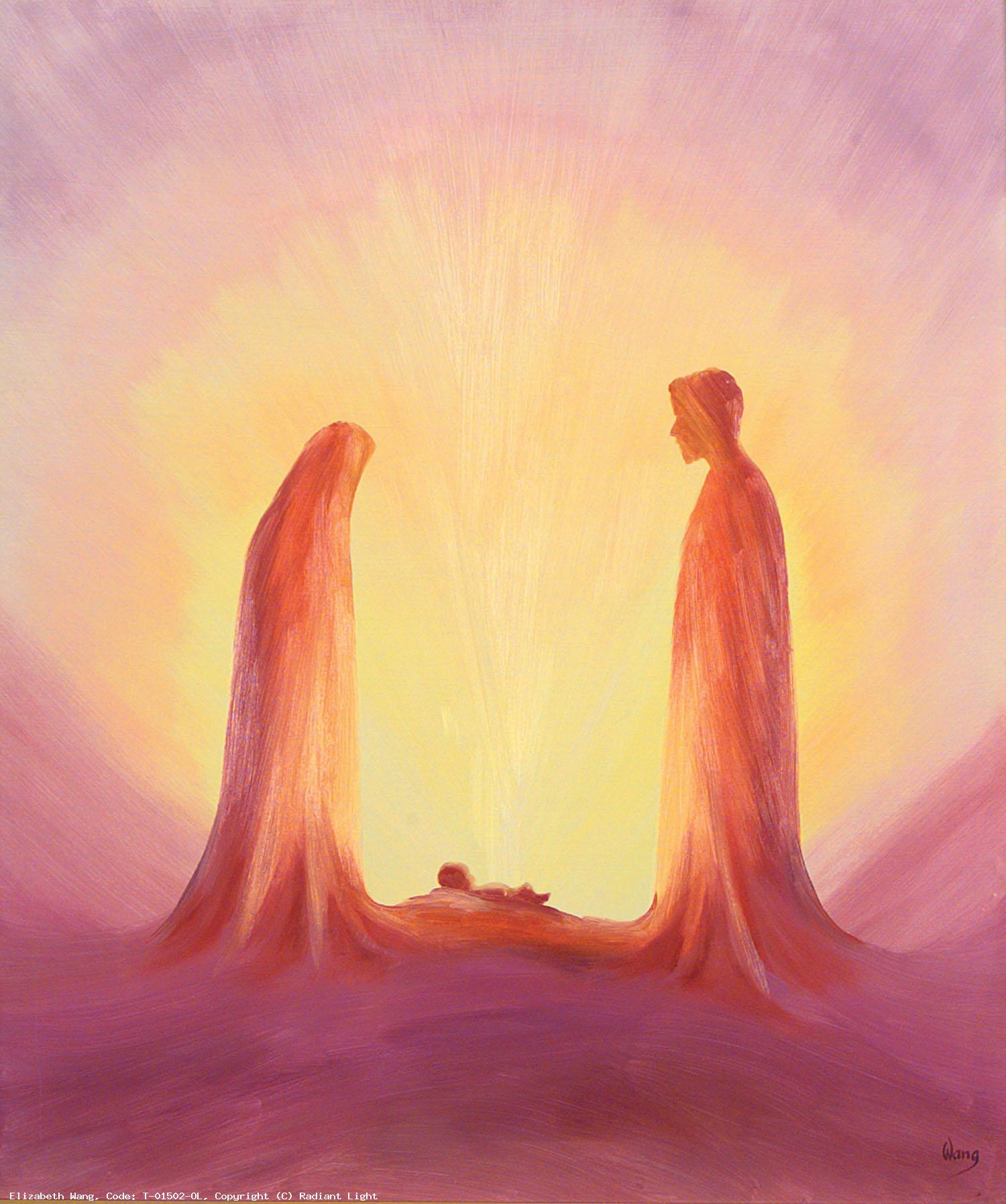
What a wondrous gift of living beauty surrounds us! Yet, when we reach out to embrace it, it recedes: the rainbow ends, the living air at dawn, the soft light that bathes meadows in moonlight. Without question we are surrounded by this beauty. It is real and here beckoning to us. Yet, it points to elsewhere. This is God's constant action among us: summoning us, calling us, pointing us away from the gritty world to this higher and better elsewhere. Without question, God calls us to be part of it, to enter into it. And He gives His angels charge over us encouraging our every good impulse for this elsewhere.
His touching our world at His birth (wrote St. Athanasius) so shocked the Creation that it reversed human destiny from eternal death to eternal life. He transformed us with His Life, not His death. Tonight, we kneel before the Lord of Life, this elsewhere coming now to us, no longer receding, but here and now and as real as His living breath. Tonight, and yet again, He touches the earth with His grace and touches us that we might follow Him and never again be parted from beauty and goodness and the only truth, which is the Kingdom of God.
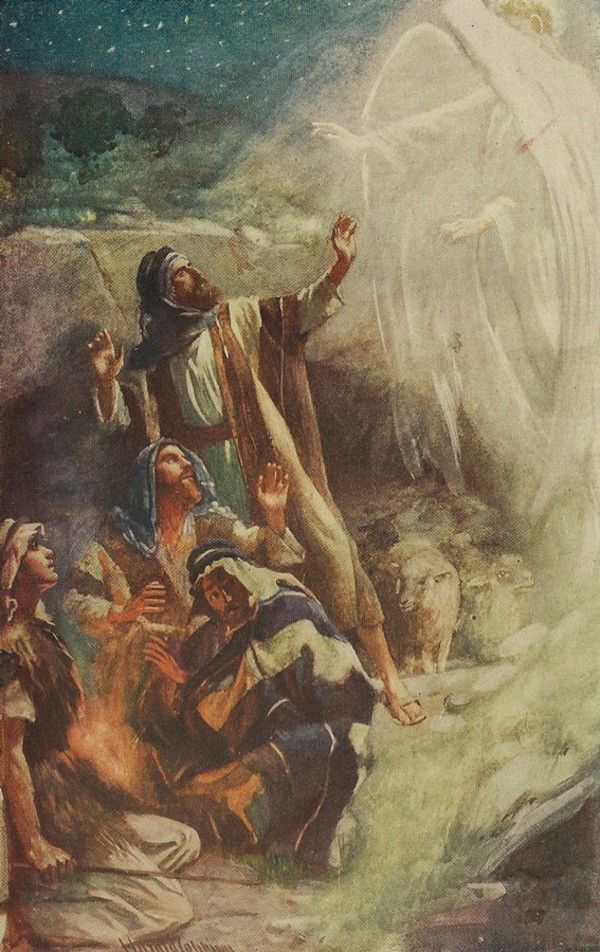
On the road to Bethlehem, we meet with a goodly assemblage of pilgrims dressed in the natural attire of Eden. They are exiles, refugees in goat skins and sheep skins who once wore the fine silk of city life. They seek the One Who alone might reopen their ancestral lands, their Garden home lost in the errors of their forebears. Join us as we together draw near to Bethlehem, where all the weary world will meet.
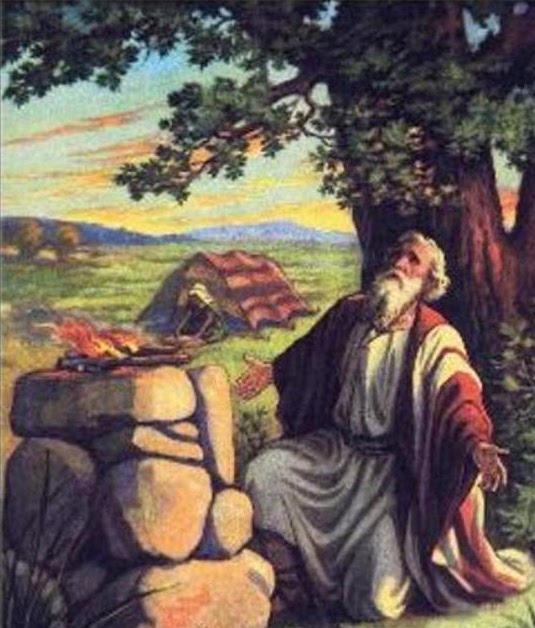
Are the Holy Forefathers — the Patriarchs Noah, Abraham, Isaac, Jacob, and others — so distant from us? Can we not say that their religion is truly our religion in the sense of ritual and spirituality? Remember, the mysterious Melchisedec offered bread and wine, whose nature we cannot claim to understand. If we are to believe that the Lord Jesus Christ is the Son of God, a creed that forms the core and foundation of our being, then we cannot believe that Jesus somehow represents a rupture from the Forefathers. We cannot accept that He was a kind of revolutionary bringing a new religion into the world. If He is God, as we know Him to be, then we must expect continuity between Jesus and the Patriarchs and, therefore, between our faith and the faith of our Forefathers. Certainly, this was St. Paul's position. But as we consider the antagonism between the Pharisees and Jesus as well as the Saduccees and Jesus, where then is the rupture? The answer may shock you. Let us draw near to the religion of the Patriarchs this morning and together make our way down a most illuminating road.
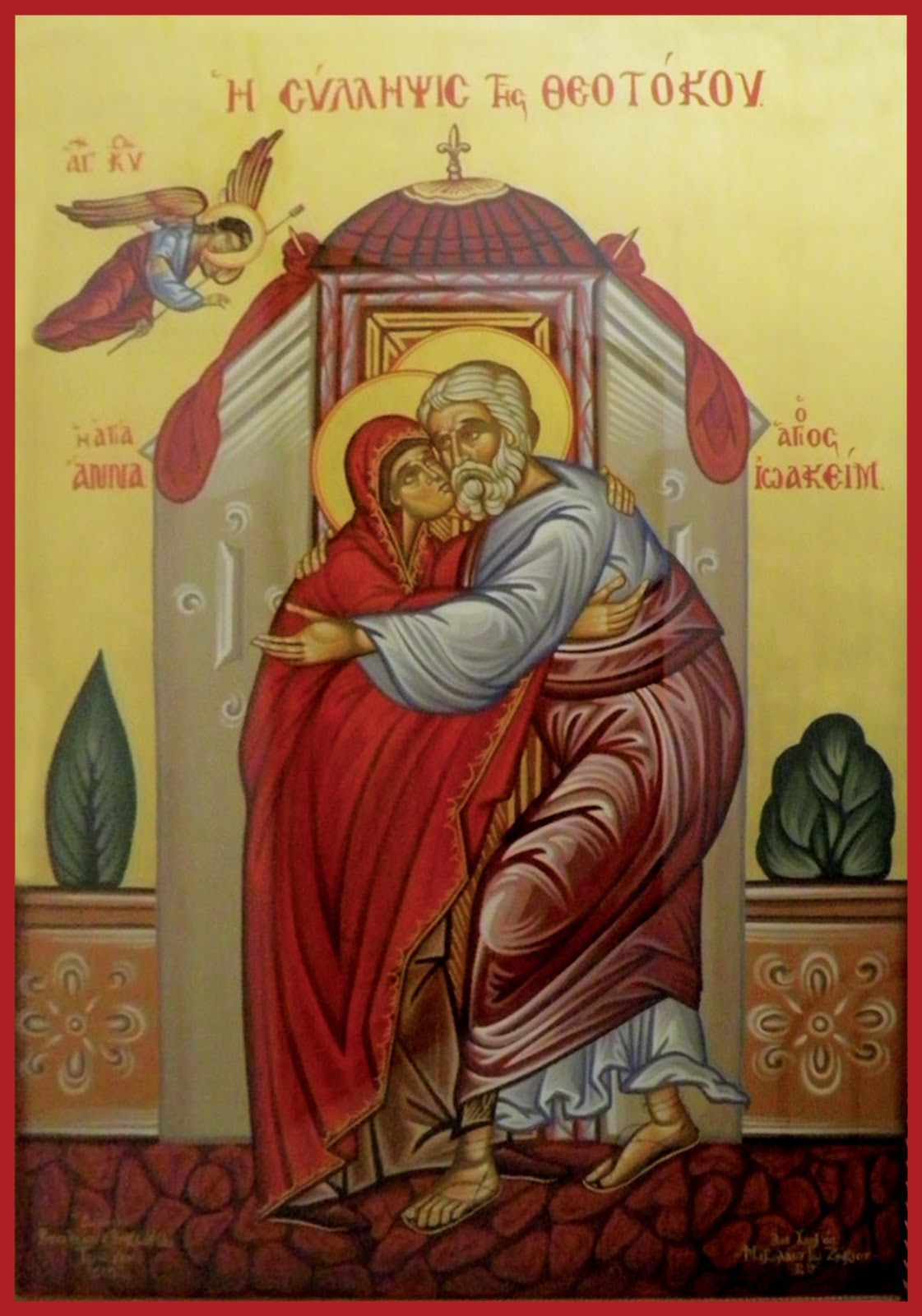
December 9, 2020 (Holy Calendar), Conception by St. Anne of the Most Holy Theotokos
Conception of the Most Holy Theotokos, December 9 (Holy Calendar). A seed is planted in winter within Anne, who was barren. It is perfect and spotless. Roman Catholics do not err to call this conception immaculate. This is so for every life ever conceived in the world .... though the world be Fallen. Sadly, most of us let the Fallen world enter in to our most intimate and holy places. But not so, the Most Holy Ever-Virgin Theotokos, born to be Second Eve, Who trampled (and tramples) the serpent's head. If Heaven be eternal, where timelines have no meaning, is not this the Queen of Heaven appearing invisibly in Nazareth? And does not she ascend to Heaven when her earthly days are done? Deep mysteries lie before us, seen as through a glass darkly — shadows of things to come, which once were, and are now.
From the depths of our winter, rejoice! Offer up prayers of thanksgiving and rejoice! For great tidings are nigh upon us. A brilliant light as of the First Day of Creation is soon to shine. And its first glimmers we behold today: a Most Holy Unborn Child Who is to be the Royal Bearer of all our Hope.
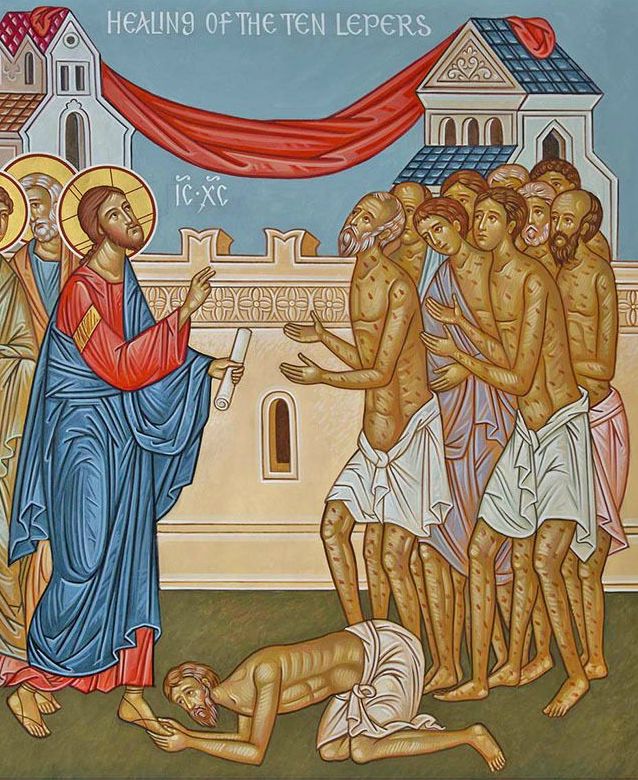
Ten lepers are healed by the Lord Jesus. One, a Samaritan, returns in a display that evinces his new life: both his outward appearance and his inward transformation. He is restored to intimacy with God signified by his embrace of the Lord's feet, the feet of One to Whom he, significantly, has offered the Jesus Prayer. The entire scene is one of conversion, even transfiguration. Strangely, nine do not return. All are Judeans. But not a single one? And all Judeans? Something is being expressed here, something important. And we are moved to cast our minds back upon other Samaritans who also were contrasted with Judeans. There is a great deal of scholarship being done during the present (exciting) period that suggests the difference has to do with the religion practiced in the Temple at Mt. Gerazim versus religion of the Temple at Mt. Zion — an active religion of theosis vs. a passive one centered on sacrifice. This is no dry academic subject but rather fresh insights that illumine the birth of Christianity and our lives today. Taste and see!
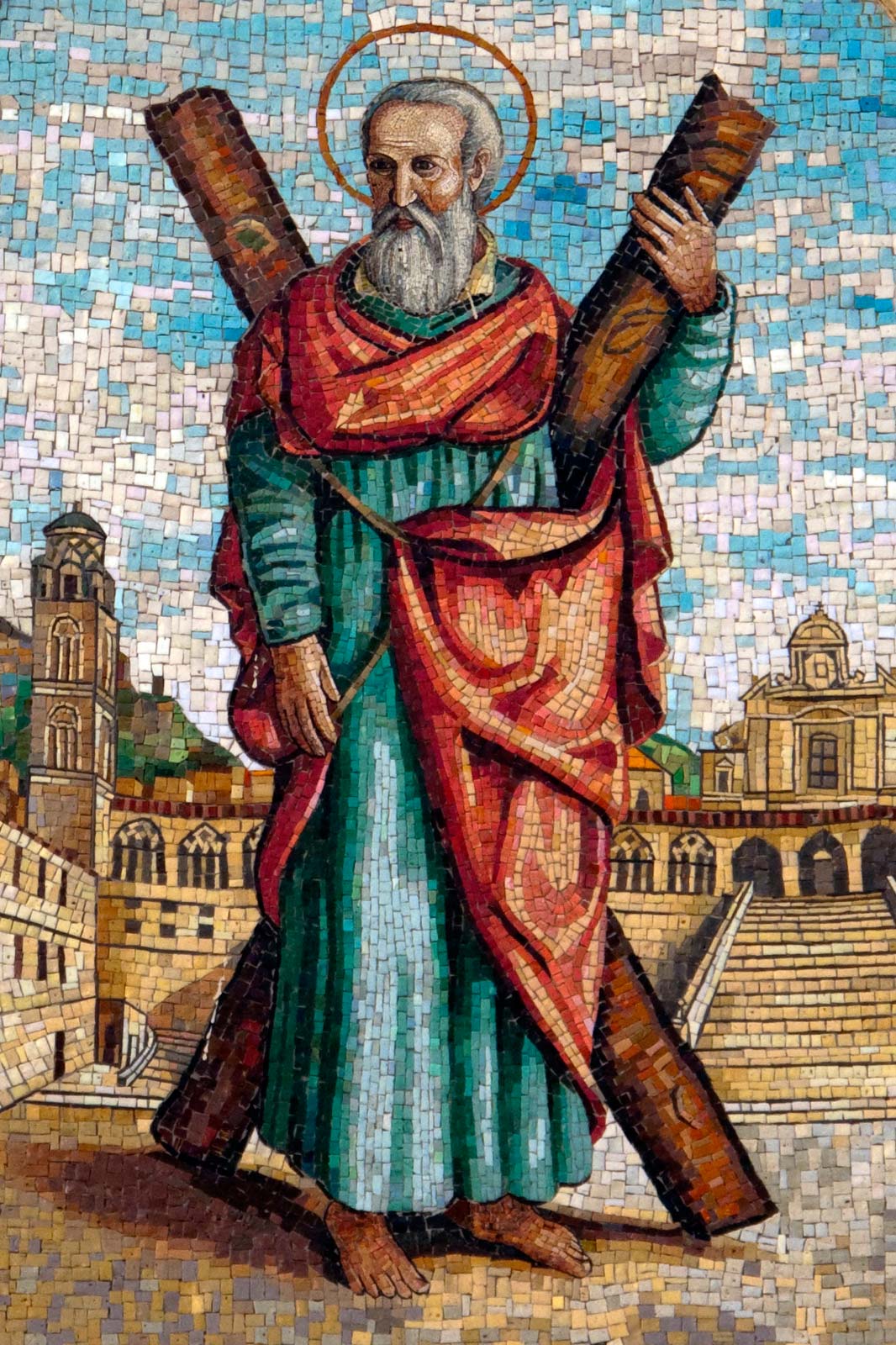
He is the Proto-Clete, "the First Called," and we might add, "the Most Humble," for we scarcely see or hear him in the Gospel accounts. There are no Letters, 1 Andrew, 2 Andrew, and so on. Yet no Apostolic ministry has been so consequential as St. Andrew's in the protection and preservation of the spiritual tradition we call Christianity. There is a hidden story here, one that explains how St. Andrew's Cross might fly over Western countries, eventually all over the global British Empire. For he was the first among The Twelve whose apostolate reached the British Isles and therefore to all English-speaking peoples. Today, his apostolic touch is felt everywhere, from the Caucuses westward across Europe to the Americas and thence across the Pacific enlivening even priestly ordination at our lowly Hermitage in rural Polynesia. He is our great Apostolic Patron. And we are humbled to be counted among those who observe his Feast with greatest reverence and honor.
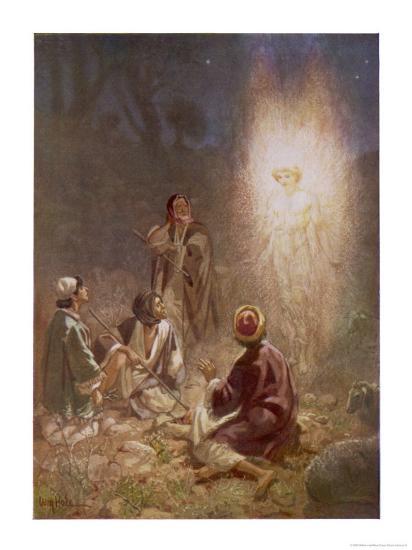
What is Advent like? Is it a season where small gifts begin to appear, perhaps hidden under little calendar flaps, in anticipation of the most joyful and most merry gift-giving of all? Or is it like a slow advance toward God's Holy Mountain, a time for careful self-preparation and quiet reflection? Is it a time for receiving God's unsurpassed gift? Or is it a time for offering ourselves in grateful emulation of it? The difference between these conceptions of Advent (called the Nativity Fast in the East) will reveal much about the Orthodox Church to Christians formed in the West, as the vowed religious at the Hermitage were. We invite you to join us as we continue in our journey to understand not simply two different sets of customs but rather the Christian faith and life. We offer our hearts in this, praying that our readers might find their way to the life-changing riches that we have discovered these past two years. In a sense we now see what we already knew and with Jacob might say, "Surely the Lord was in this place, and we did not know it."
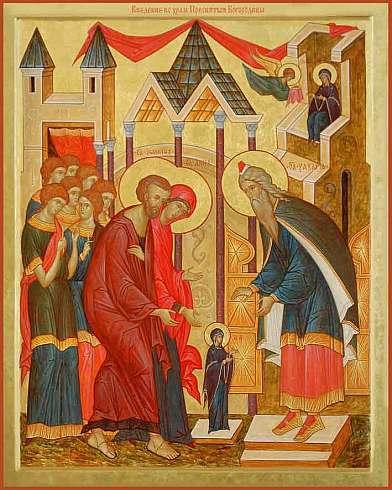
November 21, 2020 (Holy Calendar), Entrance of Most Holy Theotokos into the Temple
What person born into the world is distant from blessing so great that it nearly bursts the heart with fulness of joy? Each of us is born into a birthright to such happiness. Yet, so many of us go on in emptiness because we have tried to fill our spiritual and emotional lives with ourselves. Is not this the counsel of self-help books these past two generations ..... when all along the path to fulfillment lay in the opposite direction? Ss. Anna and Joachim had reached such emptiness. She, being childless, would never be fulfilled as a mother and proper wife (by the canons of ancient Israel). He would be shunned, cut off from his lifeworld, for lack of family. The spiritual meaning of their lives was that of a barren wasteland where nothing can prosper. The change came with devotion, each separately choosing prayer and fasting and nearness to God. Then, in the midst of their desert the fairest flower bloomed -- the Lily of the Valley, the Rose of Sharon. They would revere the holiness of this child named Mary and continue in their faithfulness by consecrating their joy to God. Today, we mark the day when they presented their daughter, the Most Holy Theotokos, to the place where men and women meet with God, the Temple. Here, the heart bursts with greatest joy. For she is to become the Temple, in Whom the Temple will be born, freeing each of us to also become the Holy Temple of Meeting. Which Temple is which? Which is the greater, and which is the lesser? It does not matter. For once we all have embraced God as our All, then All is in all.
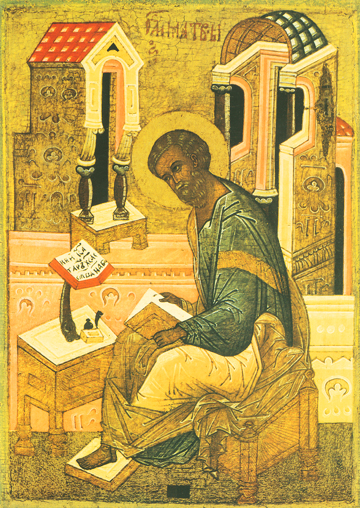
So often the story of Levi-Matthew is depicted as the hated Roman collaborator
who repented and reconciled to his people.
But this simplistic formula is not open to us.
For the call of Levi-Matthew,
as the Lord Jesus makes clear in his citation of Hosea,
is not about faithful Jews vs. Roman occupiers.
The story begins to open to us when we see the analogy that lies at the heart of our subject
signified by the name Levi:
![]()
24th Sunday After Pentecost (Mt 16:1-8, Eph 2:14-22, Lu 8:41-56). We read in our Epistle lesson this morning that Jesus "has broken down the middle wall of separation" (Eph 2:14). First century Jews hearing this would instantly think of the Tabernacle in the Sinai wilderness with its veil in the middle, understood to be a Garden wall separating the faithful from Eden. For the Holy of Holies in their minds signified Eden. At stake here is an understanding of salvation in its aspect of sanctification, which in turn calls us to understand the purpose of the Temple as it was seen by the spiritual school of Judea, not the Pharisees or the Sadducees. We cannot really understand our own lives of worship, our church buildings, and our salvation until we come to the terms with these elements of our Christian faith.
![]()
Michaelmas (Mt 28:16-20, Eph 2:4-10, Lu 8:26-39). The bodiless powers are not so distant. For they are us, and we are them: different states of the same Divine Creation. On Michaelmas, consider what great estate and authority awaits us — not in the distant future but here and now. In our Gospel lesson, we read,
|
And He said to them, "I saw Satan fall like lightning
from heaven.
Behold, I give you the authority ..." |
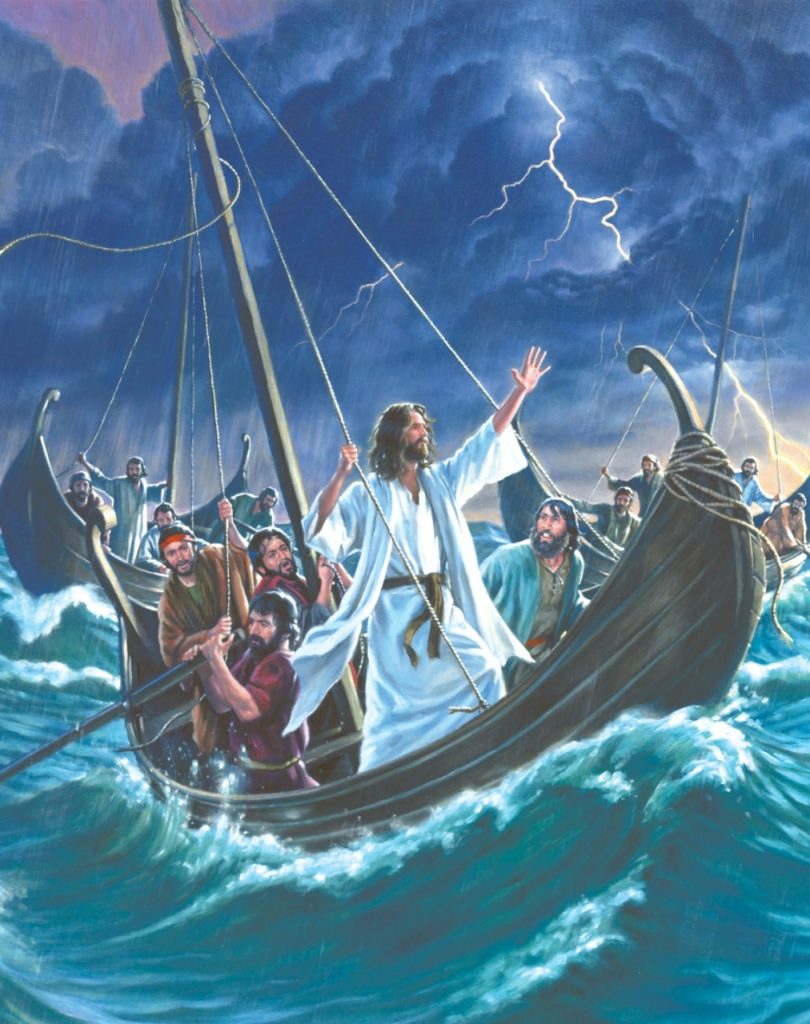
23rd Sunday After Pentecost (Mt 28:16-20, Eph 2:4-10, Lu 8:26-39). This morning's Gospel lesson calls us back to first things: the historical backdrop for the Bible, which is mostly the decline of the Twelve Tribes of Israel and their final descent in the New Testament, which is being composed as the last Two Tribes are dispersed, and the Promised Land is dismantled. In this morning's lesson, Jesus takes His Disciples, through a disruption in the elements, into a lost world, meeting one of the Ten Lost Tribes, Gad. And the Disciples, who have been chosen to govern the Twelve Tribes, are shown what they are up against. The lost Tribe of Gad is not so different from our own land and world. Their challenges eerily resemble our own. In the end, they reject God, Who has visited them from on high and Who has promised them liberation. We depart from the Gadarenes haunted by a basic question. Is this a mirror of our time and place? Are they us?
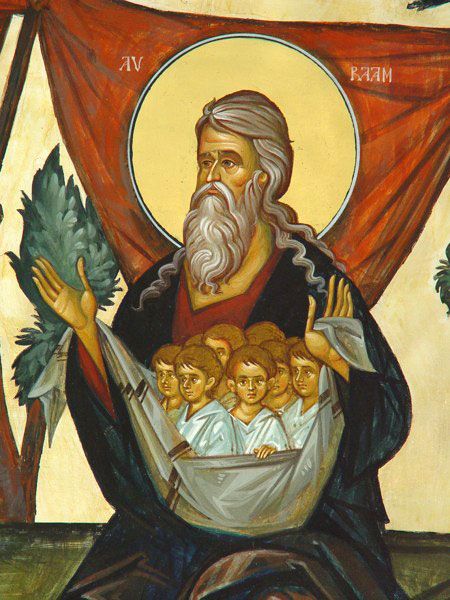
The "Bosom of Abraham" is mentioned only once in all of Sacred Scripture, not in the Torah, not in the Prophets, but once, in the Holy Gospel According to St. Luke, which is our Gospel lesson this morning. In the Christian tradition we also find it in the writings of Hippolytus, disciple of the Apostolic Father, Polycarp. It is a destination inevitably linked to a path — the path away from the city, signifying the glories of the world. Yes, the parable in St. Luke's Gospel also features a begging leper — among the poor and starving so close to God's heart. But the master theme, our treatment of the diseased and poor, is by way of two men of the city: Abraham, who departed from Ur of the Chaldees and then shunned Sodom and Gomorrah, and a rich man who cultivated city life — two different paths in life and the two kingdoms to which these paths led. Please join us down these pathways as we seek the inner meaning that the Lord Jesus intended for us.
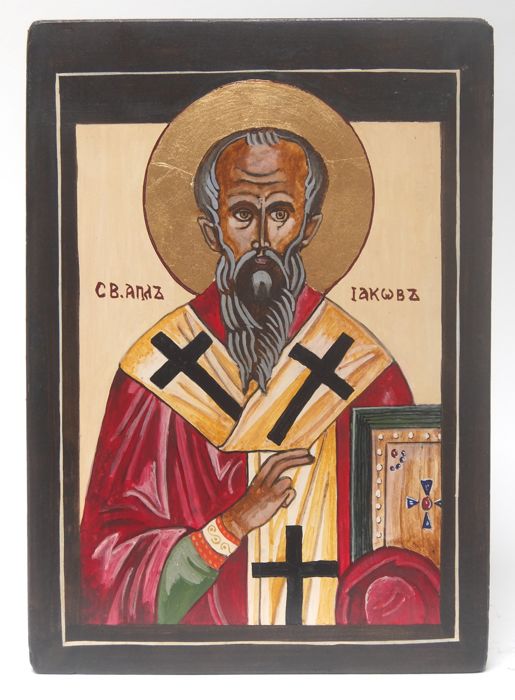
October 23 (Holy Calendar). St. James the Just, Brother of the Lord. We know from his Protoevangelion (treated as Scripture by the Early Church) that the Holy Family truly was holy. James journeyed to Egypt with father, Joseph the Espoused, and his step-mother, the Most Holy Theotokos, raised as a consecrated virgin in the Temple. He was himself consecrated as a Nazarite, as St. John the Forerunner had been, dedicated to God in every aspect of his person and life. On his feast day, we celebrate the One Church, for as the Patriarch of Jerusalem, James set a cornerstone of Five Patriarchates — Jerusalem, Alexandria, Antioch, Constantinople, and Rome. Following St. Paul's three-year retreat into Arabia and then Damascus following his encounter with the Ascended Christ, he avoided contact with all other humans seeking the household of St. Peter and saw only him and the brother of the Lord. In this, we behold the Apostle to the Nations meeting with (by tradition) the first Bishop of Rome and the Bishop of Jerusalem, bounding the world and the Church. St. James the Just is our Patriarch, therefore — all who continue to honor the Church of Five Patriarchates. Pray for us, O Holy Patriarch, for your example of purity and wisdom and perfect devotion, and your injunctions to service, are our only lifelines in the practice of our faith.
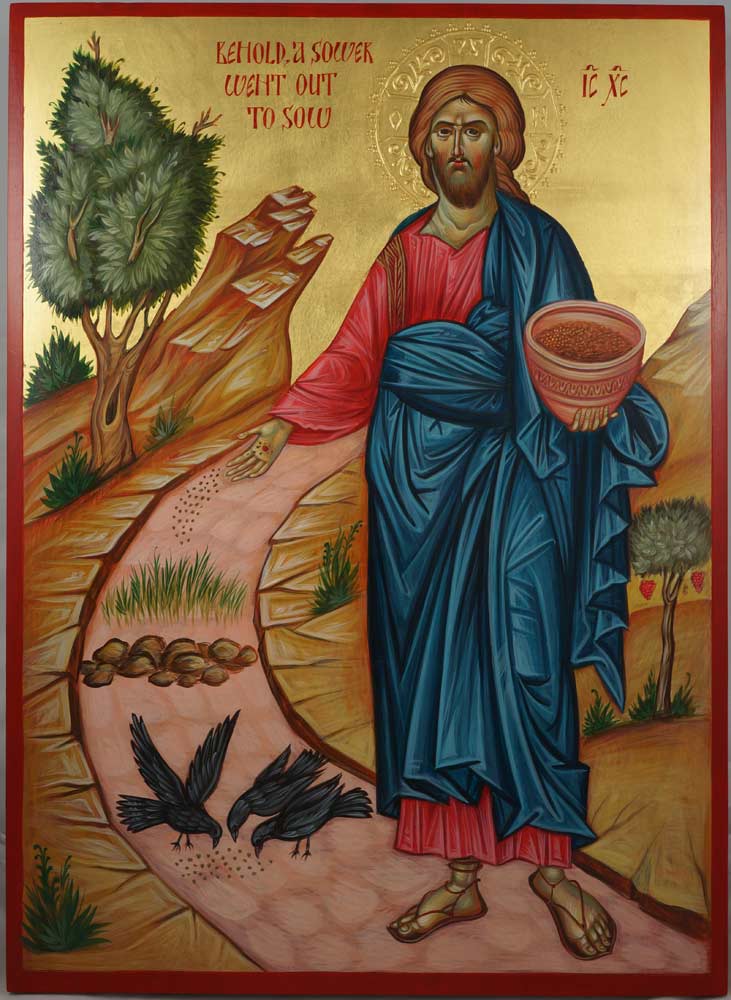
Upon reading our Gospel lesson, a Sister of Hermitage said, "The parables are given so that we NOT understand?! This doesn't seem right!" And here, embracing this truth, we take important steps in our pilgrimage to God. We are invited into a life of discernment — of diligence, of digging and finding and learning and growing. Maturation is long process, but the end of the journey is Heaven. When Jesus says, "The Word of God," what do we think? Surely, it has nothing to do with the Bible. What we call "the Bible" did not exist until the fourth century. And Christians grounding themselves in "the Word"? Bibles that anyone could afford, much less write in, would not appear for nearly two thousand years. There were no Gospels in the year 33 A.D. .... or 43 or 53, not as we understand the term. The word Scripture would have meant the Torah and the Prophets only. And what Jesus means when He says "the Good News" is very different from what is claimed for that phrase in Christian mass media today. Beware the simple parable. It may not be what we think. And the flinty Jesus awaits half-hearted seekers: "that seeing they may not see / and hearing they may not understand." We must be careful where we tread, for God's holy mountain draws near.
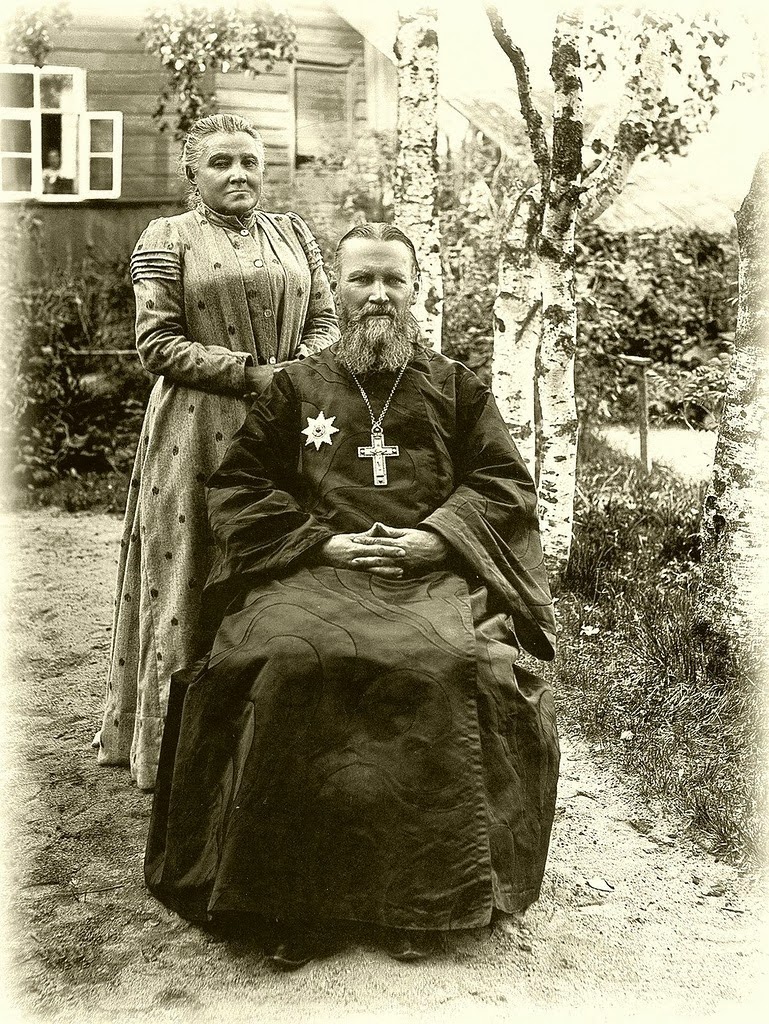
We at the Hermitage, so fulfilled in our lives as vowed religious, are apt to say, "How wonderful that St. John of Kronstadt was granted both religious life and the consolation of the special friendship of marriage, a virginal marriage." In this setting he progressed, by the grace of God, to the state of life called Saint and Wonderworker. We would say this, but in our journey from the Western Church to Orthodoxy (now in a Western Rite Community), we have grown to learn that this is a genius of Orthodoxy — each family and home is a religious house, each having icons and incense and tapers. It is rightly taught that you do not bring your personal orisons to Church but offer them in your own sacred devotional space. Every life is a religious life. Our bishops are not corporate executives but holy men. Our priests, many married, lead communities in theosis, the transformation of mind, body, and soul in Christ. St. John of Kronstadt, married yet a monk (we might say), is our exemplar and pastoral leader. Pray for us, St. John and Matuska Elizabeth, for we yearn to join you in your kind of holiness, leaving the madness behind us.
![]()
He was so different from the other Evangelists — the Jewish tax collector, Levi; the bright young man so attached to St. Peter, Mark; and the sleeping genius, the Beloved Disciple, John. Luke was passionate and creative — the first icon painter, boldly depicting the Most Holy Mother of God. Read his Gospel, and you will find a manner of presentation more like that of Homer than the (Ur) Holy Gospel According to St. Mark. Consider his depiction of Pentecost vs. the Giving of the Holy Spirit related by St. John. Luke painted on the big canvas, depicting nearly "operatic" stage sets and recording something like "arias" proceeding from the mouths St. Elizabeth, St. Simeon, St. Peter, and the Most Holy Theotokos. Through St. Luke, the Holy Spirit shone through with entirely new artforms .... which would not become current till fifteen more centuries had passed. How rich is our conception of the Early Church through His bold and creative spirit! Pray for us, St. Luke, that we too might be bold, for boldness is so desperately in need today!
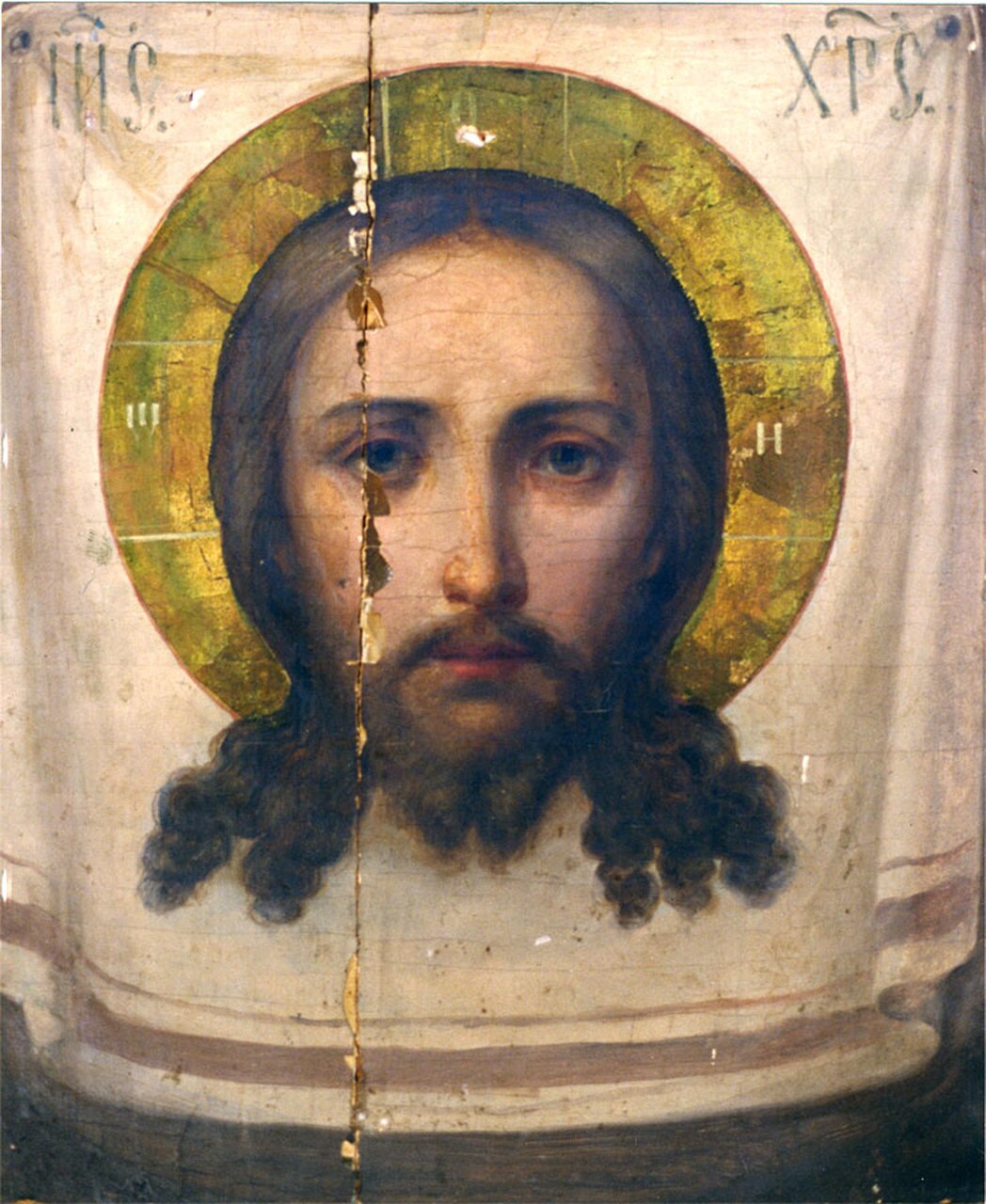
Who can say what makes the physical heart quake from spiritual love? Who can say what brings a woman to ignore the laws of personal survival, laying down her life for her children? In matters that lift us far above the gritty world, where is the line separating the physical from the spiritual? Could a scientist .... or an emperor draw it? Where is the boundary? Let us draw near to Heaven through our Holy Icons. St. Luke did not hesitate to make an icon of the Mother of God. Generations of Christians have witnessed their wonderworking powers, dripping with myrrh as dew upon the windows that look on to Heaven. Bow down. Reverence them. Kiss them with a quaking heart. And never doubt that there is mirth Heaven for such as these.
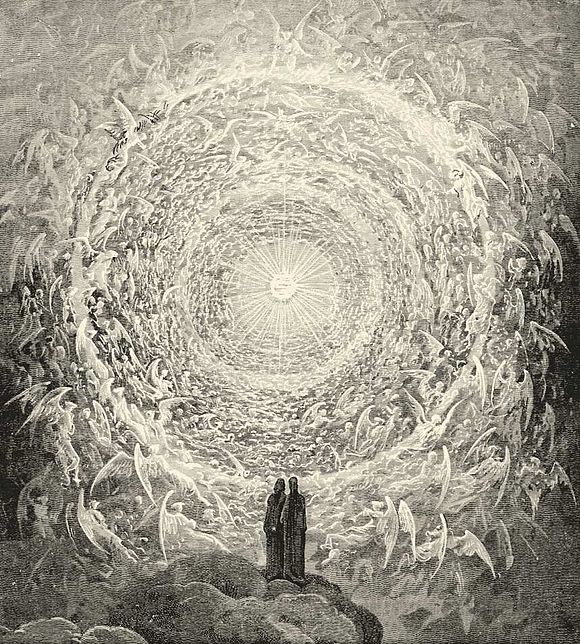
The Son of God sits in the Temple listening to the learned doctors who have loved His Word and devoted their lives to it. He reveals little insights they have missed, whose truth they see instantly. The year is 12 A.D. Where might we go on that day to read of these things? Nowhere. For scrolls could not be repositories for God's secrets. Only the human person might be sacred enough to hold such matter, attested by St. Paul (1 Cor 3:16) and St. Peter (1 Pet 2:5). But the calamity of 70 A.D. — the Temple razed, Jerusalem destroyed, the Jewish people dispersed — changed that calculus. Suddenly, the enterprise of religious life lay in preserving the holy teachings in a series of documents that would be known simply as Talmud. This great rupture of the Jewish lifeworld has made it possible for us to know these secrets and to take our place silently off to one side in the Temple as Jesus had.
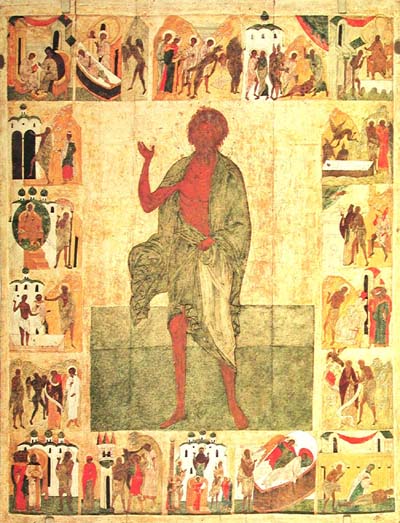
October 2, 2020 (Holy Calendar), Synaxis, Protoction of our Most Holy Lady the Theotokos and Ever-Virgin Mary
St. Andrew the Fool-for-Christ (d. 936) feigned madness under the direction of St. Anastasia offering the world's rejection as an ascetic oblation. He would remove his mask of insanity in the company of his spiritual father or his disciple revealing a rock-solid mind and steady spirit. Like his Master, St. Andrew the Fool proved the dog-pack mentality of fallen human nature by being reviled, spitted on, and beaten. Even the beggars to whom he gave his coins despised him. And here is "dog-pack think": the weakest ones exalt and glory over those in whom they detect even greater weakness. In this, St. Andrew the Fool-for-Christ touched an essence of Divinity. He touched the heart of Christ Who, possessing Almighty Power, stripped Himself of Kingly prerogatives in the narrow straits of a helpless beggar nailed to a Cross. And he touched the heart the Most Holy Theotokos, Who emptied herself of worldly honor that She might be reviled and pierced .... yet filling herself with God. A world awaits us — of goodness and purity and right. It begins with taking our place under Her mantle of protection, lifted up before God by her prayers, and guided unfailingly to the shining place whereof this world is but a pale reflection.
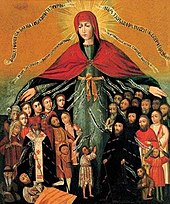
October 1, 2020 (Holy Calendar), Protection of our Most Holy Lady the Theotokos and Ever-Virgin Mary
St. Andrew the Fool would be granted the Divine vision of the Most Holy Theotokos, the Ever-Virgin Mary, surrounded by ranks of angels and saints kneeling before the Altar in the Church of Blachernae (Constantinople), where her first-class relics — her robe, part of her belt, and her all-important mantle — had been transferred from Palestine half-a-millennium earlier. "Today the Virgin stands in the midst of the Church, and with choirs of Saints she invisibly prays to God for us." She asks Her Son to accept the prayers of those petitioning for Her protection. And beneath her mantle are the faithful souls who seek her Motherly embrace. Meantime, Constantinople was surrounded by enemy troops (by some accounts, Muslims; by other accounts, pagans from Kievan Rus'). Her prayers protected the city that day, and they will protect us today, for we too are surrounded by dark armies — deceivers, accusers, and destroyers (cf. devil ← diabolos ← "who throws across"). Seek her prayers. Seek her protection. Seek to live under her mantle in this dangerous and uncertain world, where a roaring lion seeks someone to devour (1 Peter 5:8).
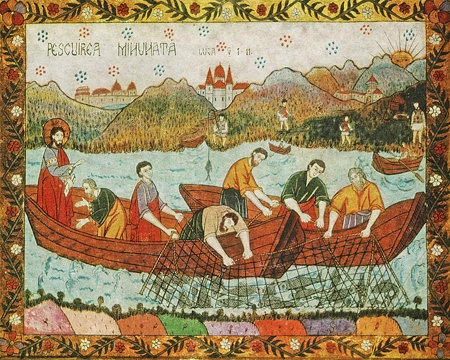
He has set His Image upon each of us and has inscribed a unique plan upon every soul. It may lie dormant for a time. Then it "goes off." It springs to life. It begins beating within us like a living heart. It has been wakened by His call. Our God is a calling God. He calls to us in the night. He writes messages to us upon the walls of our daily experience. He summons us to follow Him. What other life can there be? For does not every alternative amount to a living death?
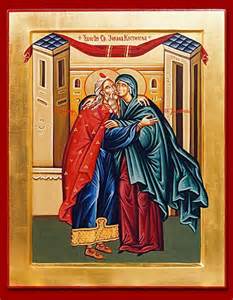
September 23, 2020 (Holy Calendar), Conception of St. John the Forerunner
Conception of St. John the Forerunner (September 23, Holy Calendar). Conceived in the winter of a woman called barren, whose father was disappointment and bitterness. Beyond their lives, the world contracted as the autumnal equinox signaled the death of summer. But a new summer solstice still lay ahead reaching its height at his nativity, who pointed forward to the winter solistice and the Nativity of the True Light on the darkest of all nights. Never forget: we live in the midst of a vast artwork Whose Creator "painted" the heavens and the earth whose intricately interwoven meanings inescapably point back to Himself and thence to us, whom He mysteriously loves so well.
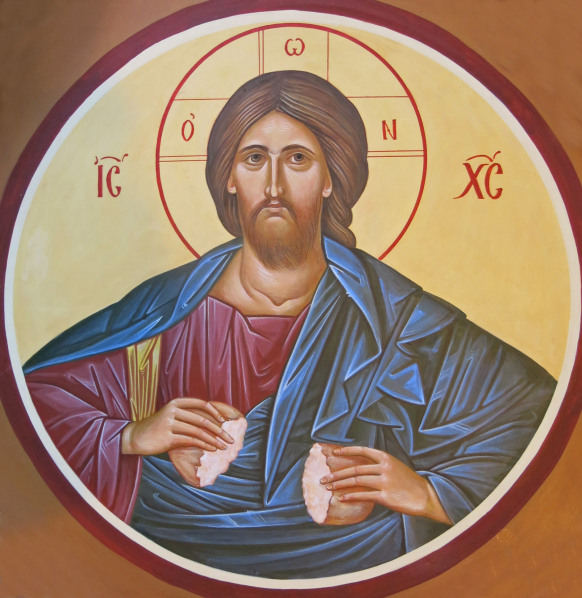
As we complete the eight days set aside to reflect on the Life-giving Cross, we ponder what sort of friendship God has offered us by this Sign — up-ending expectations, permitting the Temple to fall into rubble, abolishing ritual sacrifice. He has swept blood and death aside and has named us His sons and daughters. We are to be the Temple, saith the Lord. What should worship be following this Eighth Day of Creation? What should our sacred space look like? He has offered us His friendship. "Love one another!" is His command. And He has called us His family. The early Church responded by Breaking Bread according to His word. The veil between Heaven and earth has been lifted. And we meet with angels and archangels and all the company of Heaven. Here are our friends. This is our family.
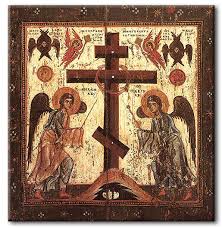
During the Church's latter history, the Holy Cross has become seen as a place of butchery. Christian homilies and hymns are preoccupied with our being soaked in the Blood of the Lamb. But this deathly and passive understanding of Christian life and worship would have been alien to the Apostles, to the first Christians, and to their spiritual descendants for the next thousand years. By contrast, the Cross was seen as the place of transformation par excellence continuous with the Incarnation of God, Who at His earthly Conception, flipped the telos (or blueprint) of our lifeworld from death to life. At His Transfiguration He appeared among the deathless ones, Elijah and Moses. Please join the Hermitage as we Exalt the Life-giving Cross and honor God's invitation to be His friends.
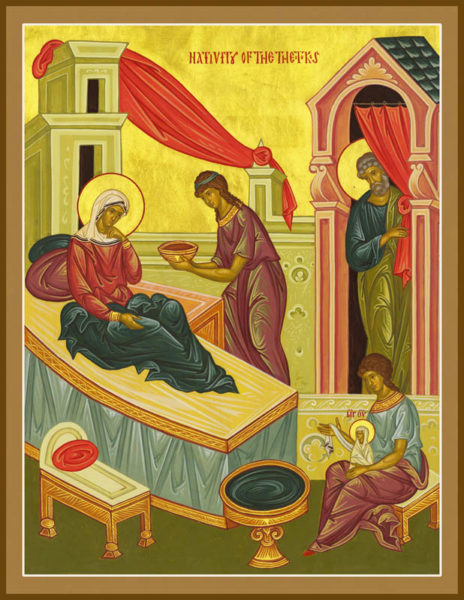
From the conception of a never-fading Virgin, from a birth immaculate as our own, a certain fragrance is detected. It is a familiar scent. We know it from the deepest recesses of our racial memory. Her birth has roused its long slumbering within us. It is the fragrance of the morning of the earth, of the utter east, of the pristine shore which will be warmed by the first life-giving beams of the new Sun. The world, long dead, begins to stir with expectancy. For in her birth a sign is given from above. Within her is renewed the hope of first Creation and the desire of the everlasting hills.
![]()
This week God calls us away from our routines and toils to remember our vocation, our literary vocation. "By the breath of His mouth He made the made the starry host" (Ps 33) and then wove a Sacred Story in which we are all characters, all arising from His pen yet free to act and move and say what we will. Mysteriously, the Advent of God is (among other imperative and holy things) about unlocking this Narrative, layer upon layer. Heed His call, for this is our vocation -- yours and ours and everyones. For to participate in this Story is to participate in God.